Like abandoned towns and gas stations, Route 66 reveals uncountably many motels left to decay, even motels in towns still living with motels still thriving: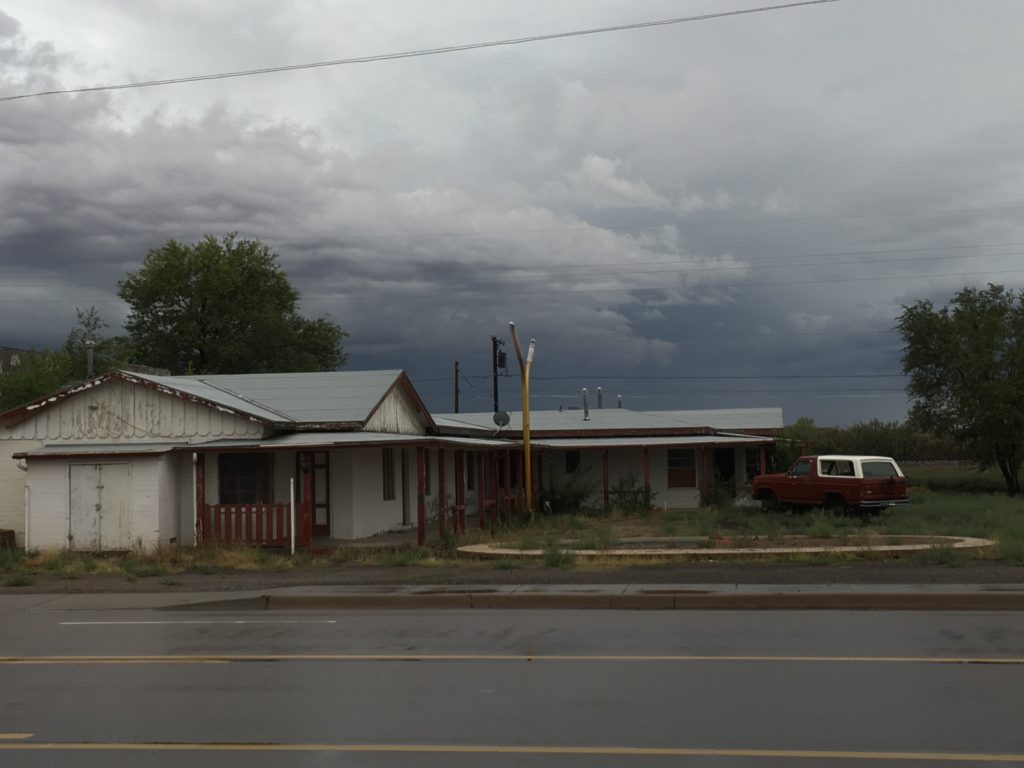
In Winslow, Arizona there is now a well-known resurrected motel, The Globetrotter. A German couple and their daughter sought a change in career (the dad had been in the trucking business in Germany). After a year off touring the world, they decided on settling in the Southwest and looked for an abandoned motel to refurbish and operate. Hence The Globetrotter below. About eight years ago, they spent about eight months restoring and enhancing their initial tranche of rooms. Now they are fully booked in season, and close down for January. The rooms are beautifully appointed and they serve a very traditional European hotel sit-down breakfast.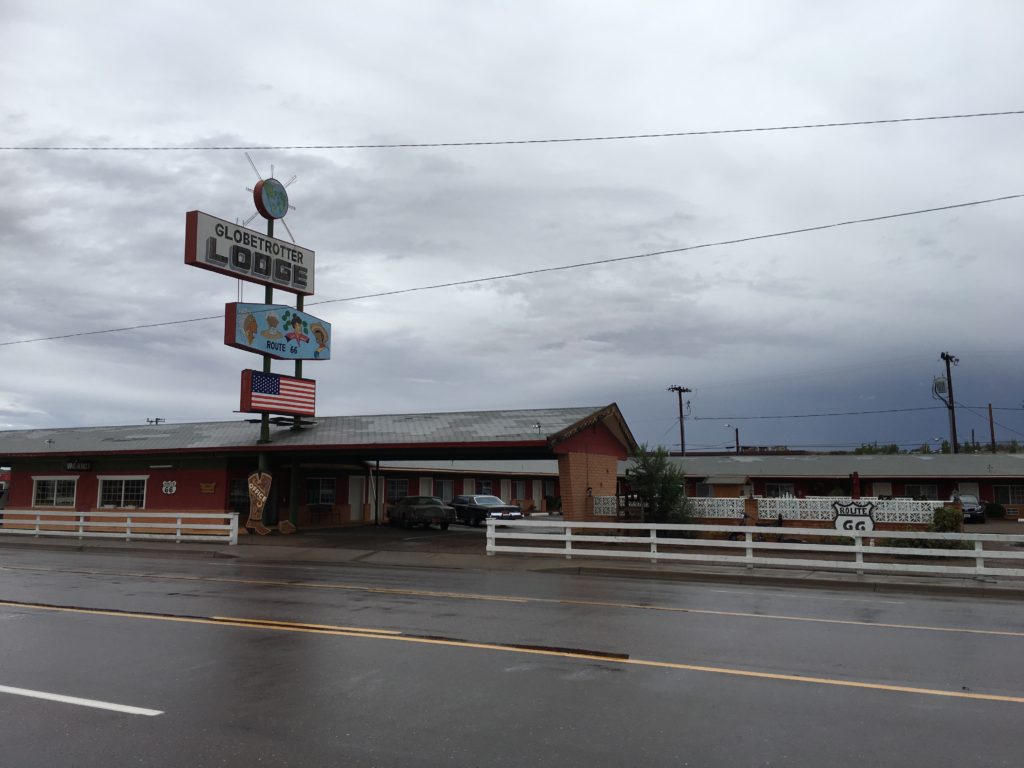
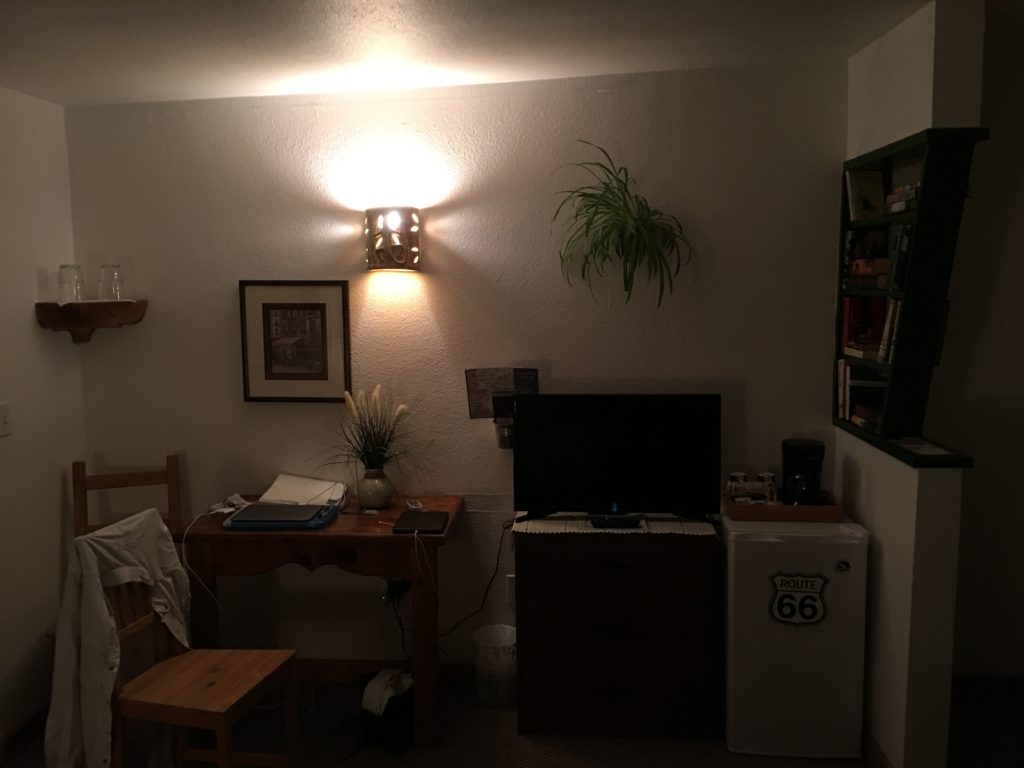
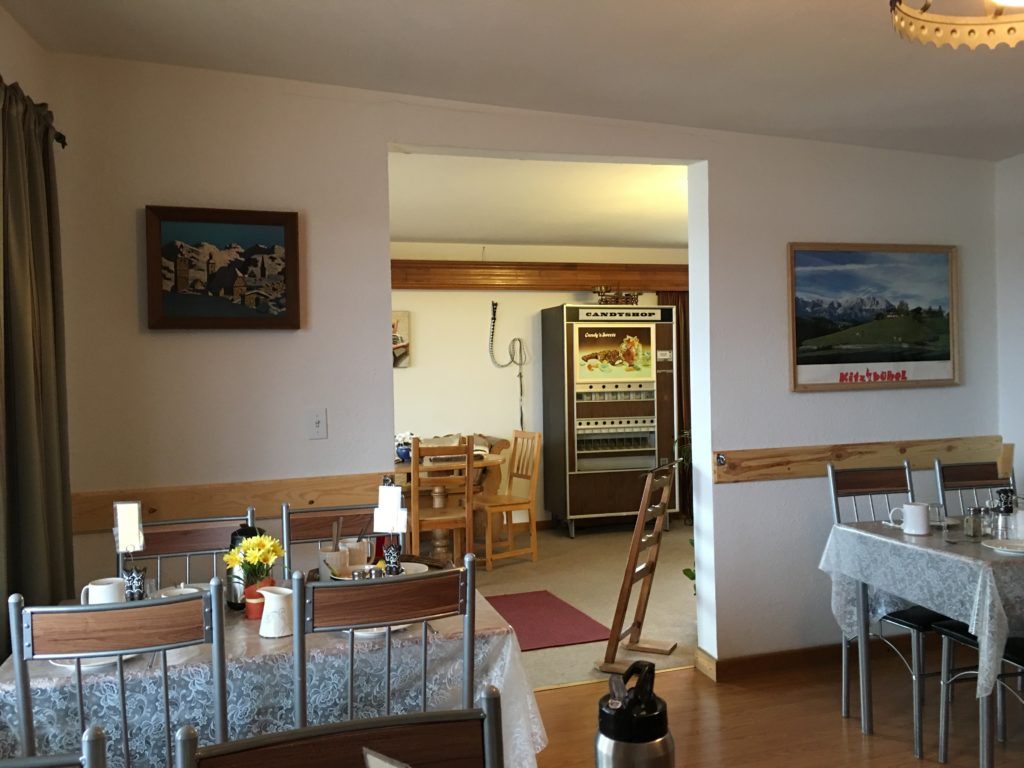
Winslow greeted me and Wadsworth with our second day of rain.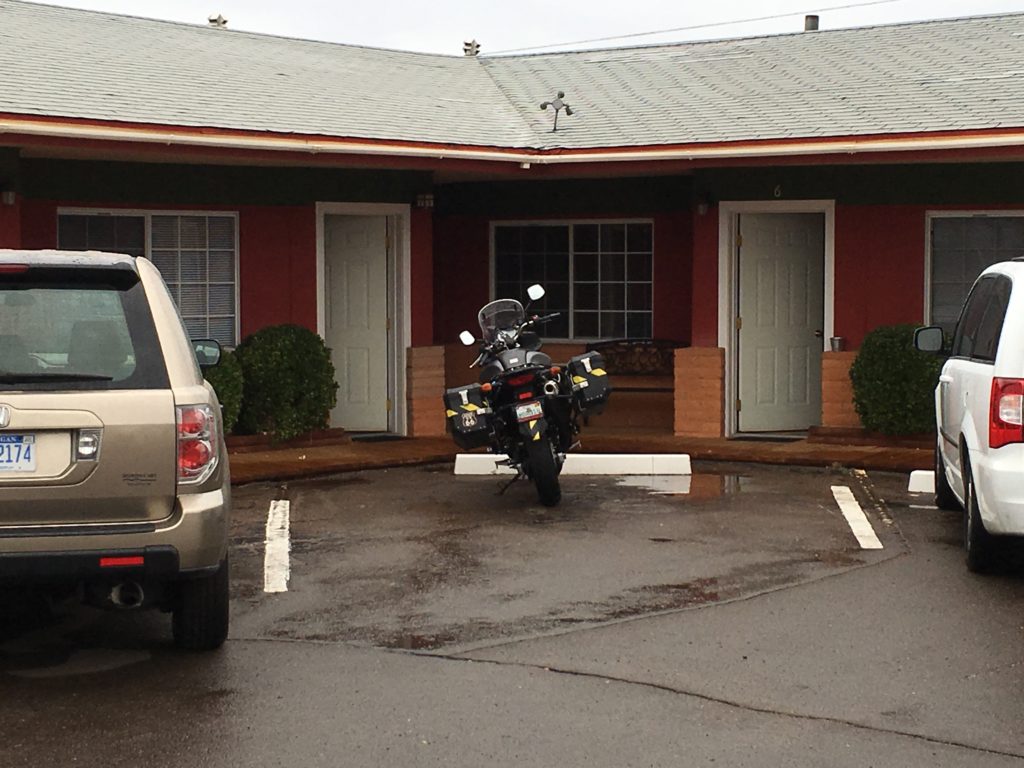
Another common sight are semi-vintage cars doing the Route in 70’s and 80’s boat like luxury.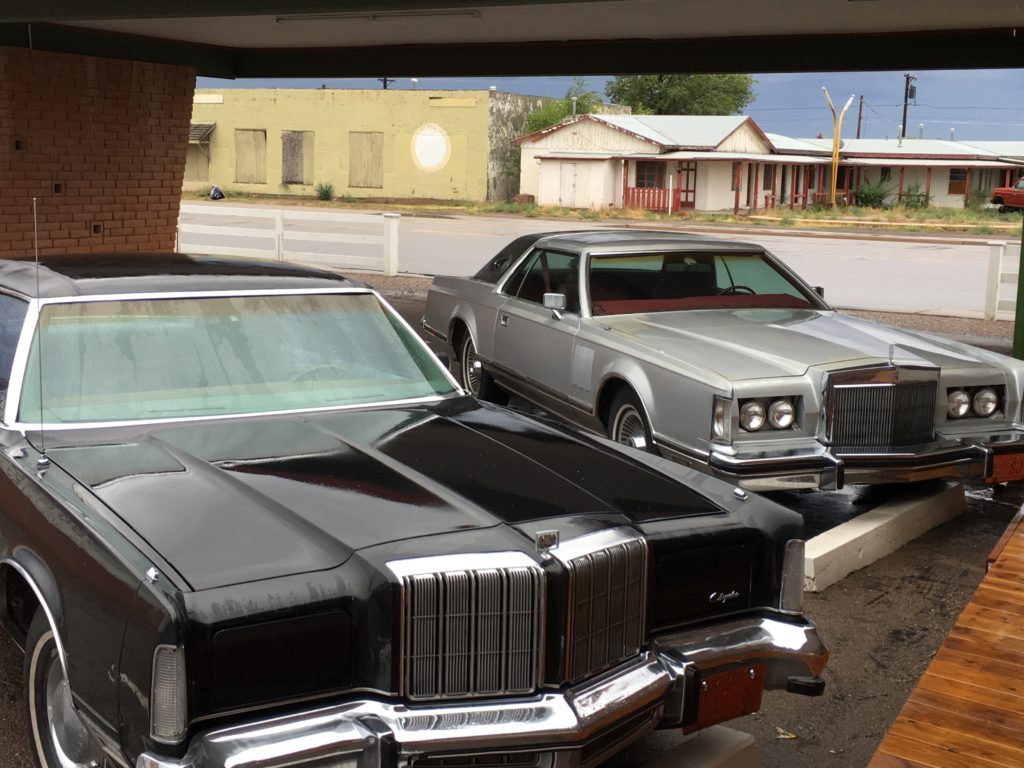
One also encounters a wonderful menagerie of travel trailers / campers: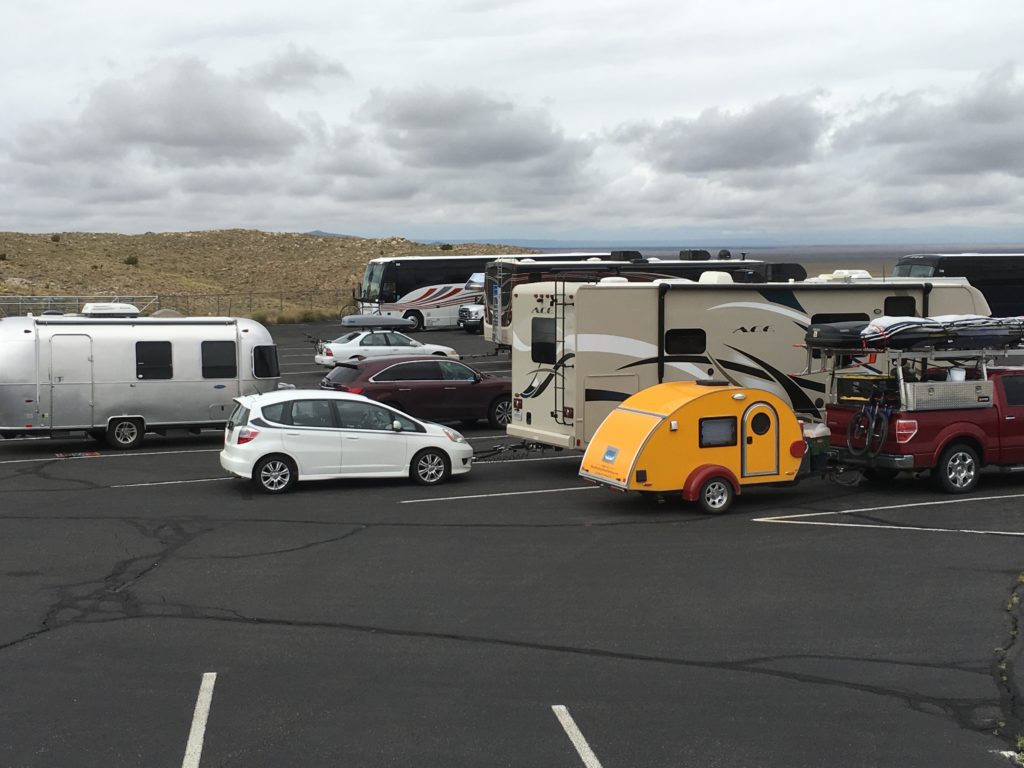
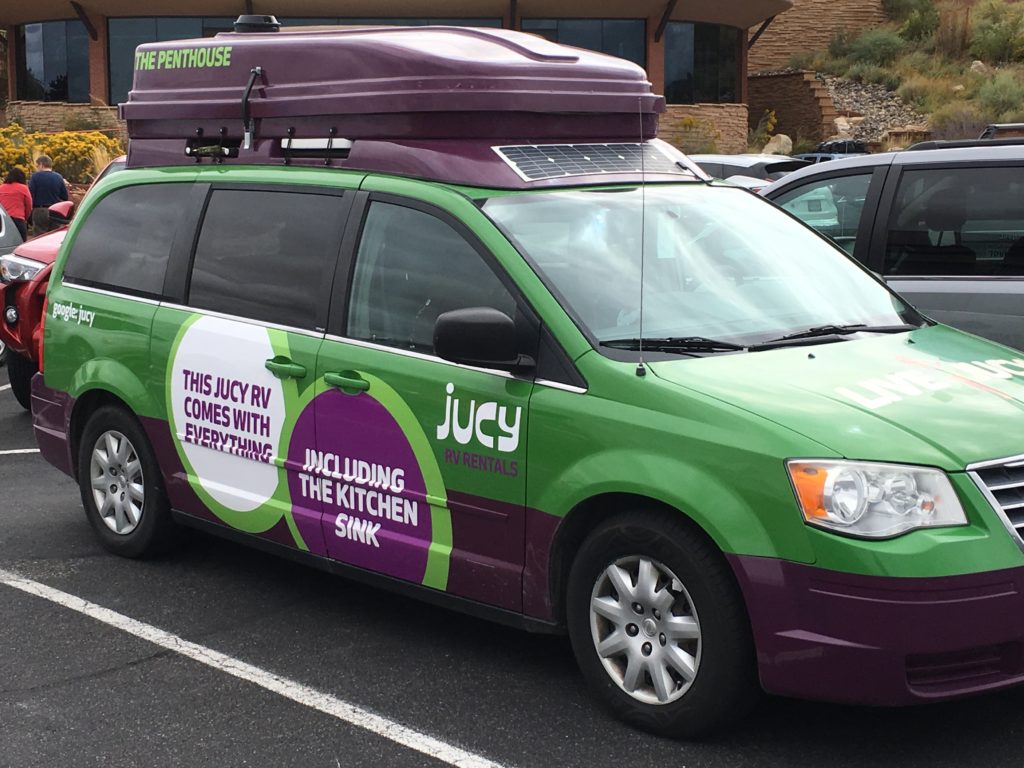
Even the smallest spots on the road have examples of places with an angle seeking customers: here, the Jackrabbit Inn.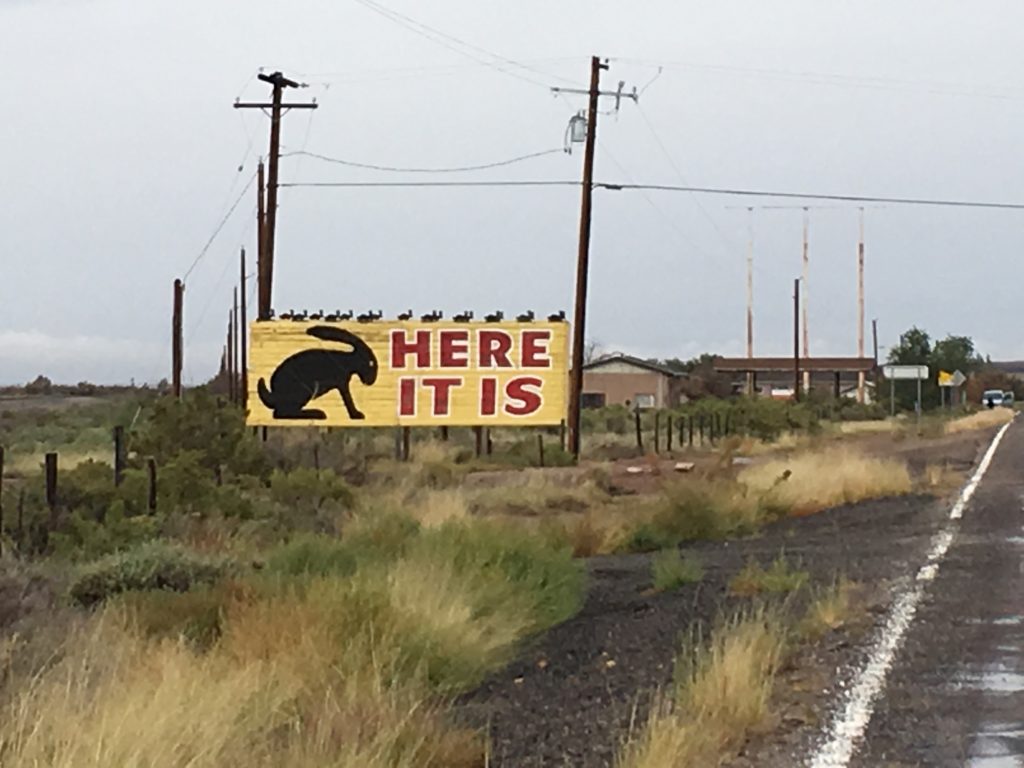
And there are some wonderful breakfasts to be had.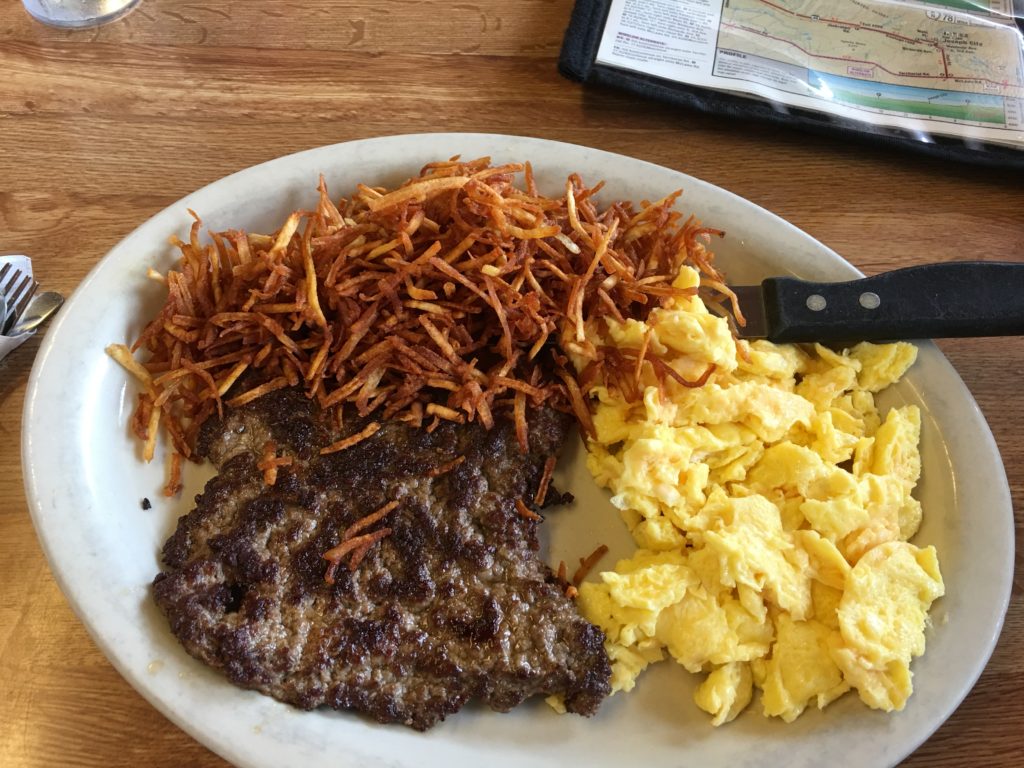
Eastern Arizona has a unique feature: the world’s most well-preserved meteor strike site (or so they say). Here on the approach to the crater one can easily see the uplifted terrain that surrounds the impact area, more than 100 feet above the otherwise flat-level terrain.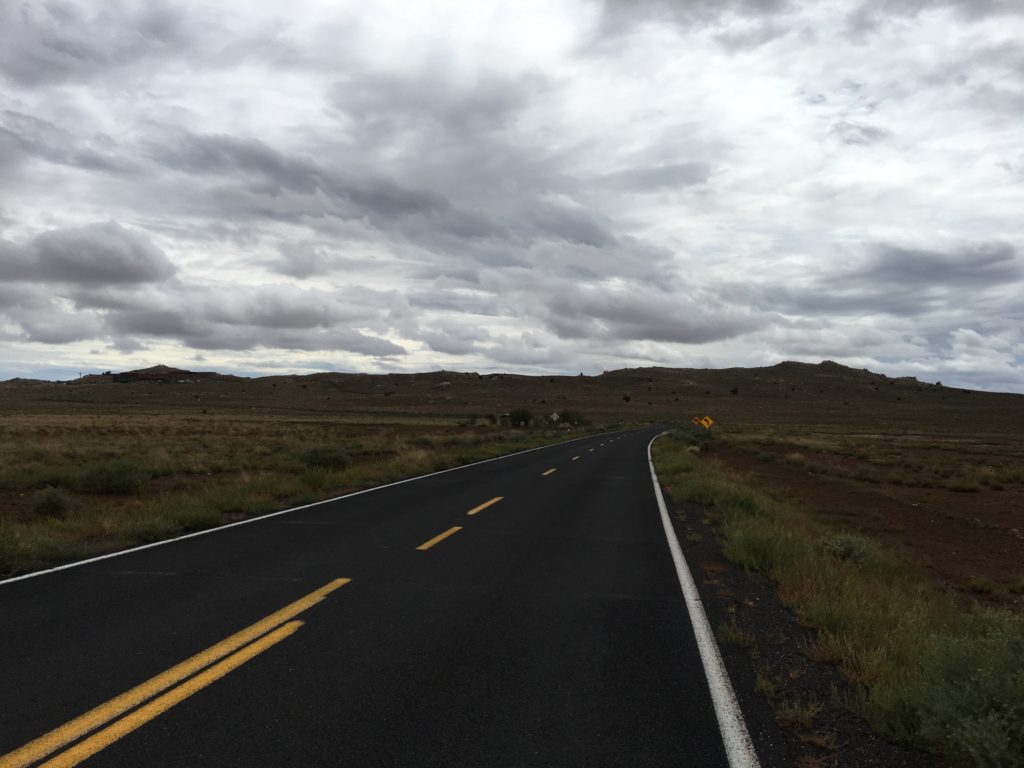
The crater itself is about a mile in diameter though it was formed by a meteorite only about 300 feet in diameter. It must have been an amazing impact.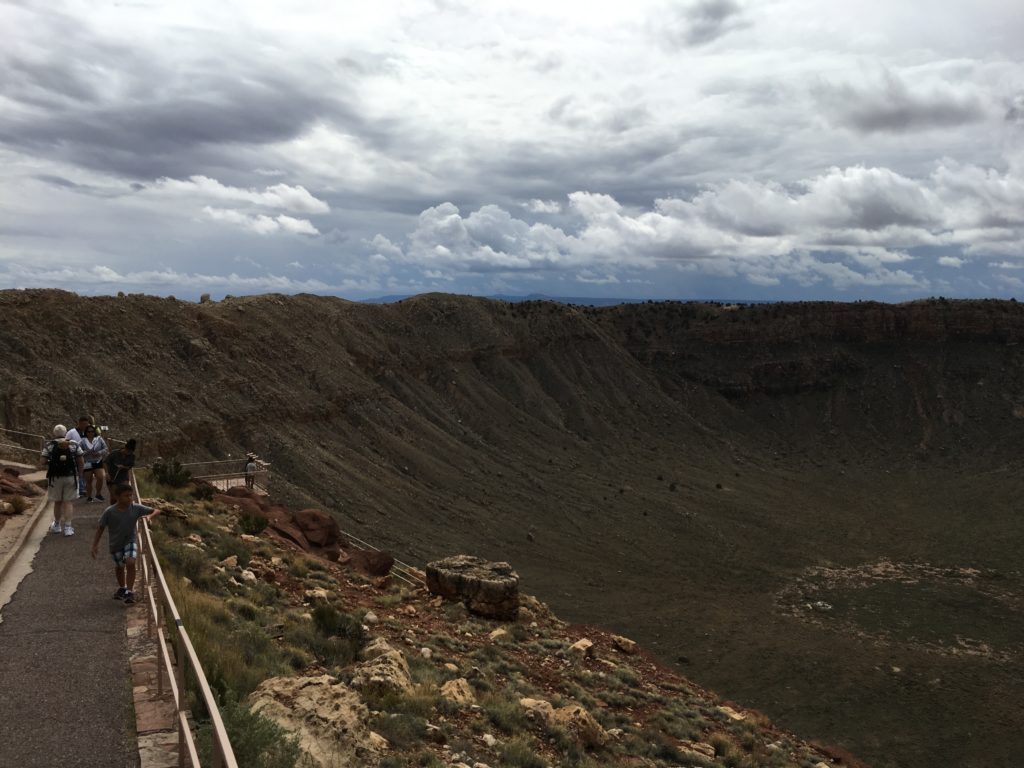
The bottom of the crater is somewhat moon like, and lead NASA to conduct some astronaut training here.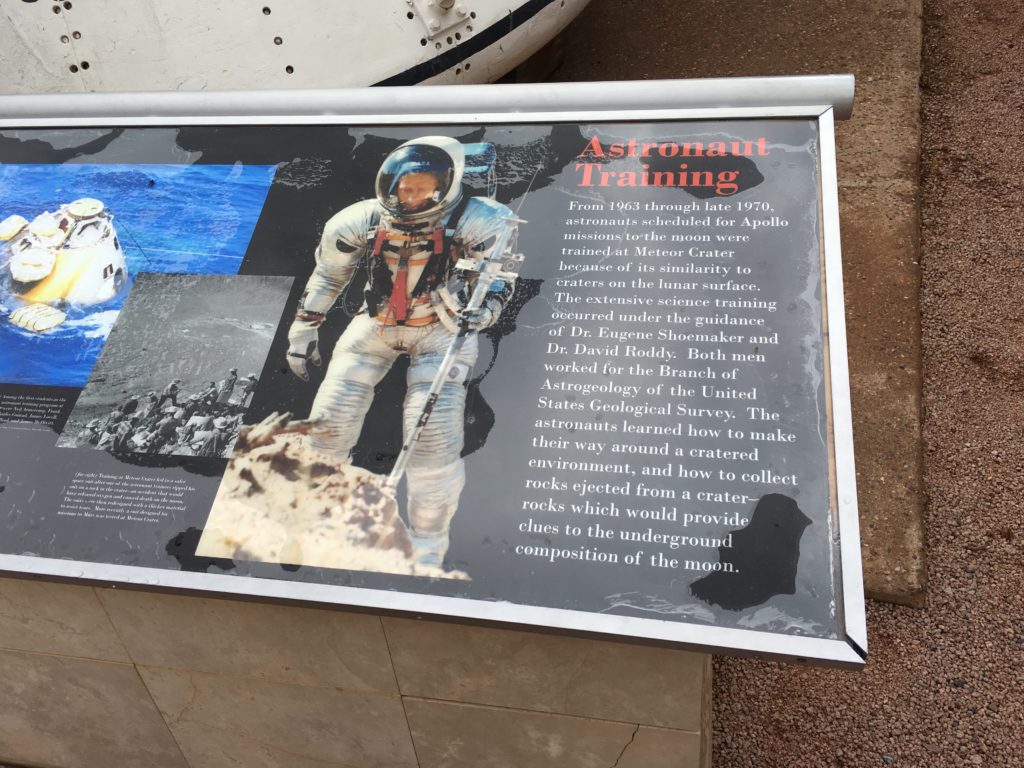
Below is one of the ground test capsules for Apollo. There was no direct association with the meteor crater as only the Lunar Lander, not the Apollo capsule itself, was designed to land on the moon. However, they have this on display to show the connection with the astronaut training that occurred.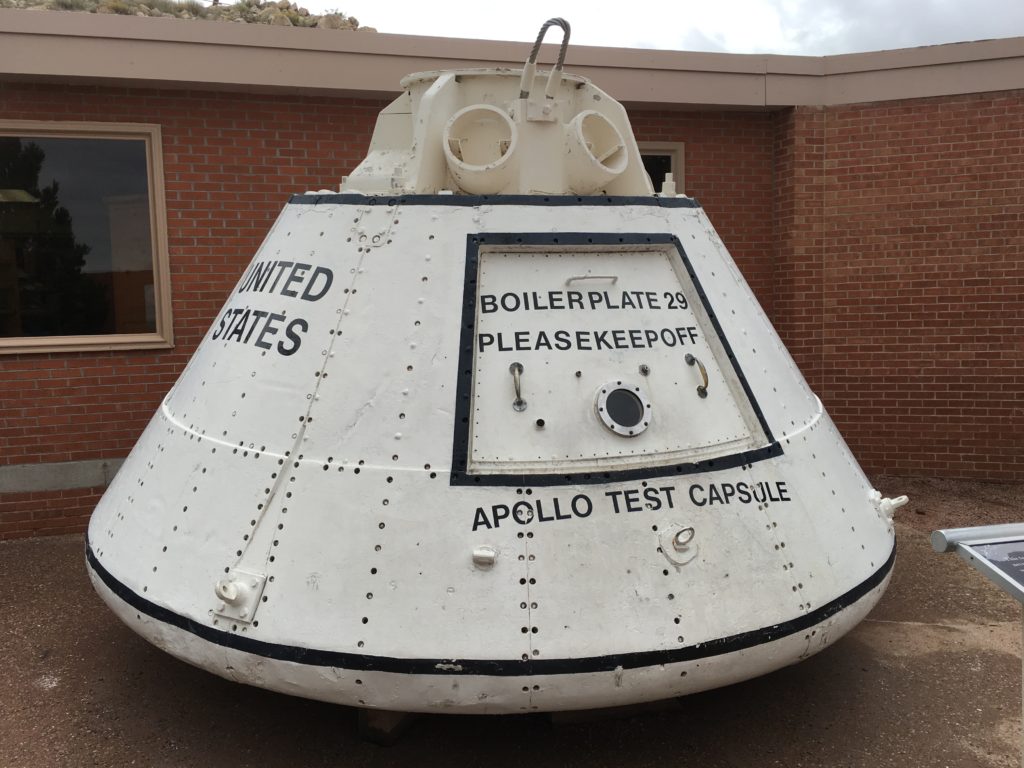
The view below is of the Arizona terrain surrounding the crater.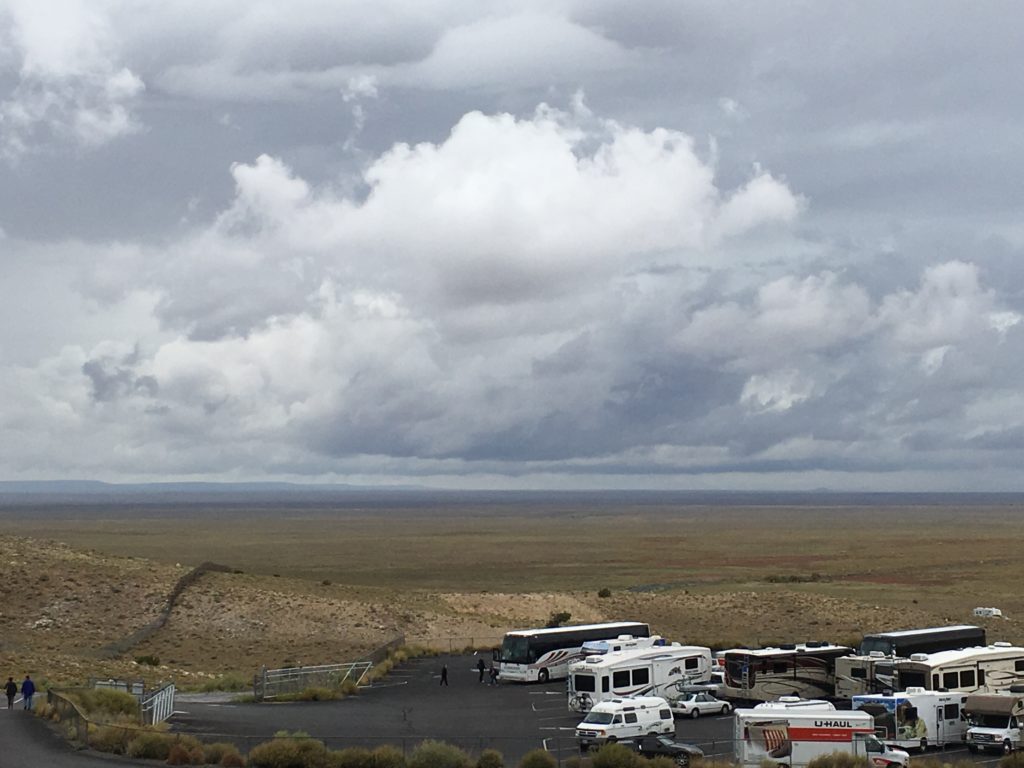
Northern Arizona is high (in elevation) and lush and can be quite cold. Here I met another pair of fellow travelers en route on two old VW Beetles (the blue one shown below):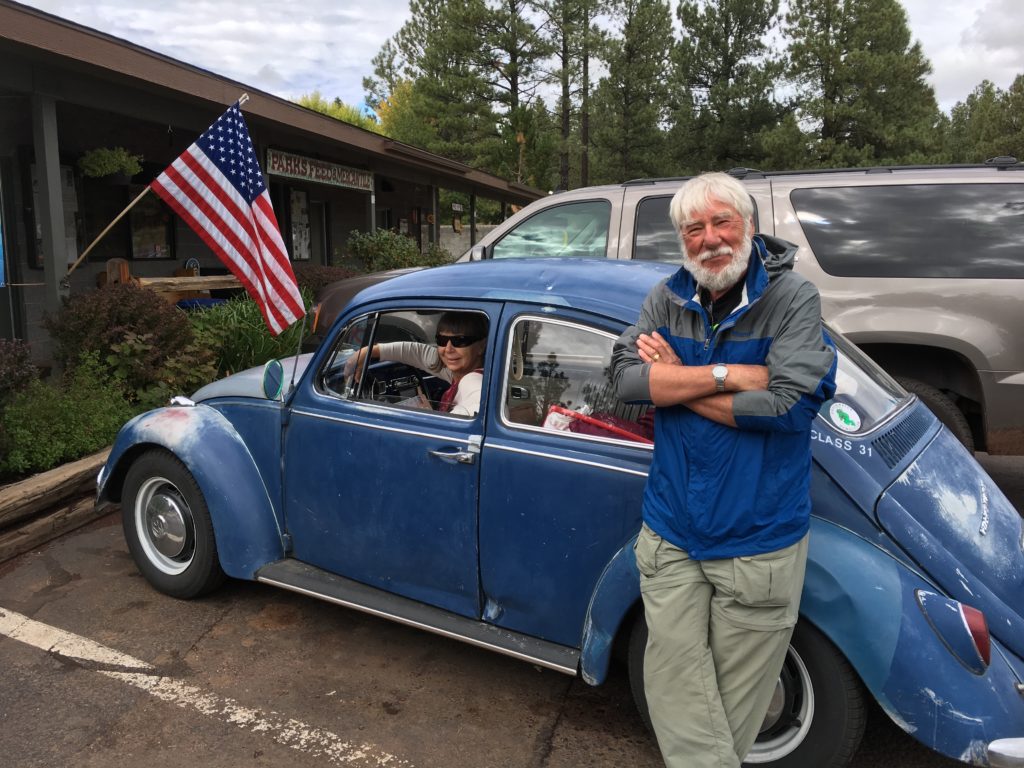
Some places when Route 66 ends, there is an alternative to rejoining the I-40 slab: here it was a well graded 30 mile section of forest service road.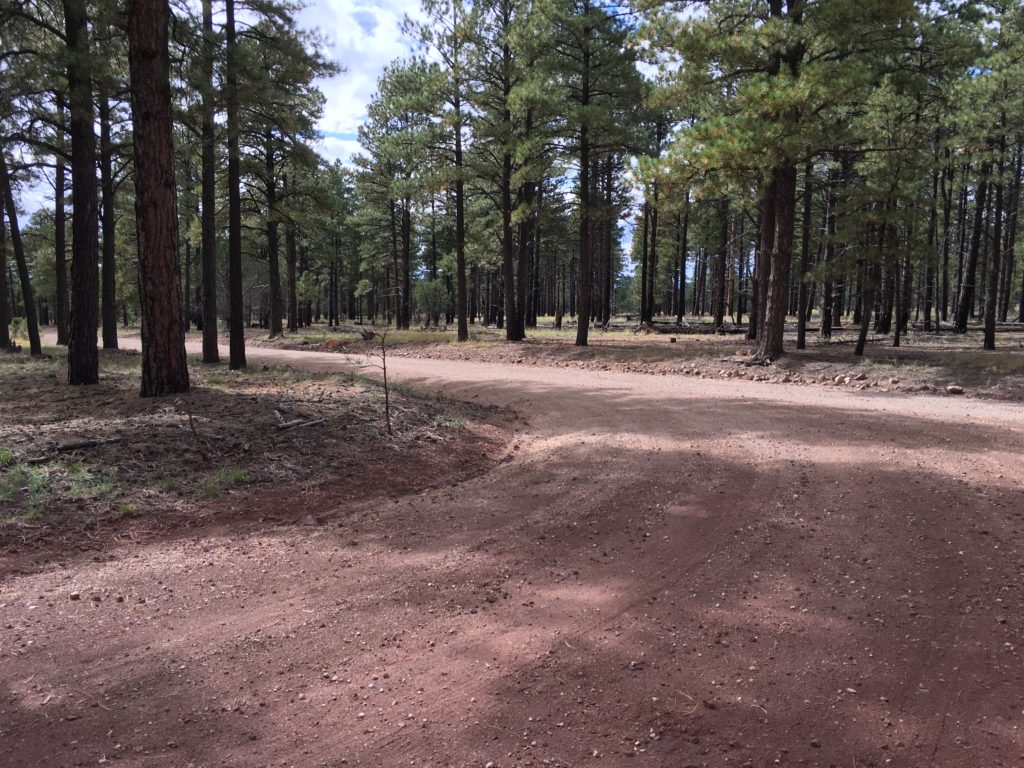
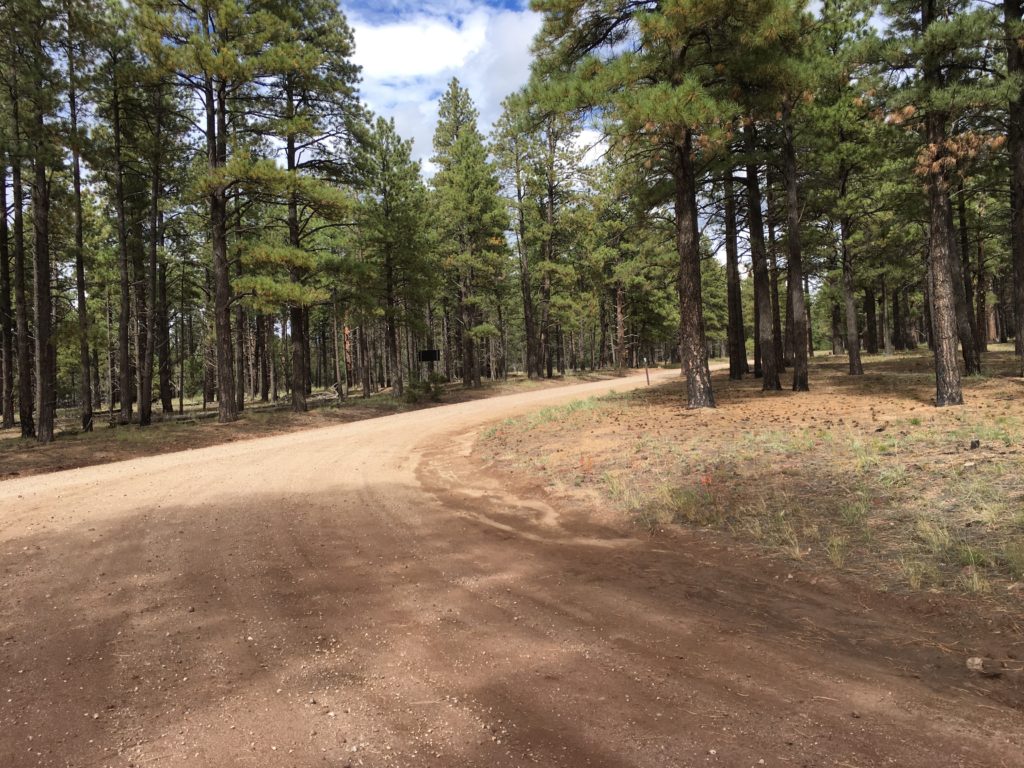
Williams, Arizona is proud of several things. First, it is the gateway, by train to the South Rim of the Grand Canyon (see train brochure below). And second, it was the last town on Route 66 that was bypassed by the Interstate; for both reasons it appears to be the most prosperous Route 66 historical town.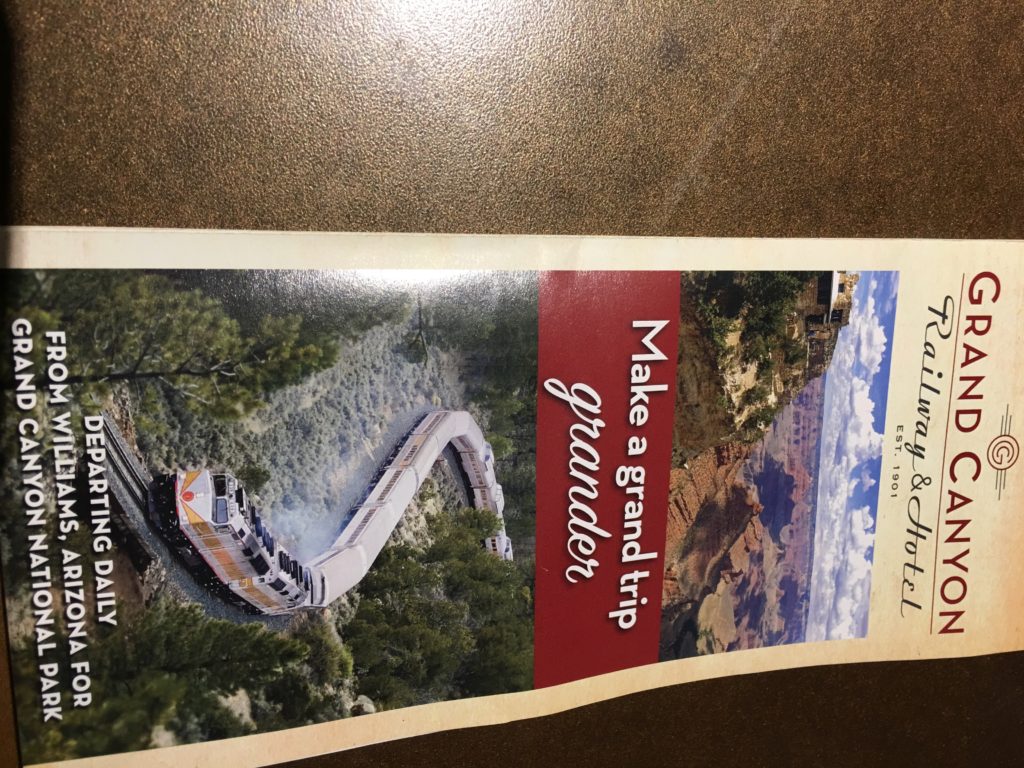
There are multiple package tours available for the train, including overnight stays at the Train Station Hotel in Williams, prepaid buffet meals, deluxe train cars, overnighting at the South Rim, etc. Included in all the packages is an early morning ‘gunfight’ (along with an end of day train ‘robbery’ by cowpokes that look striking similar to the ones that got plugged at the morning gunfight; it seems these tough guys have strong recuperative traits). 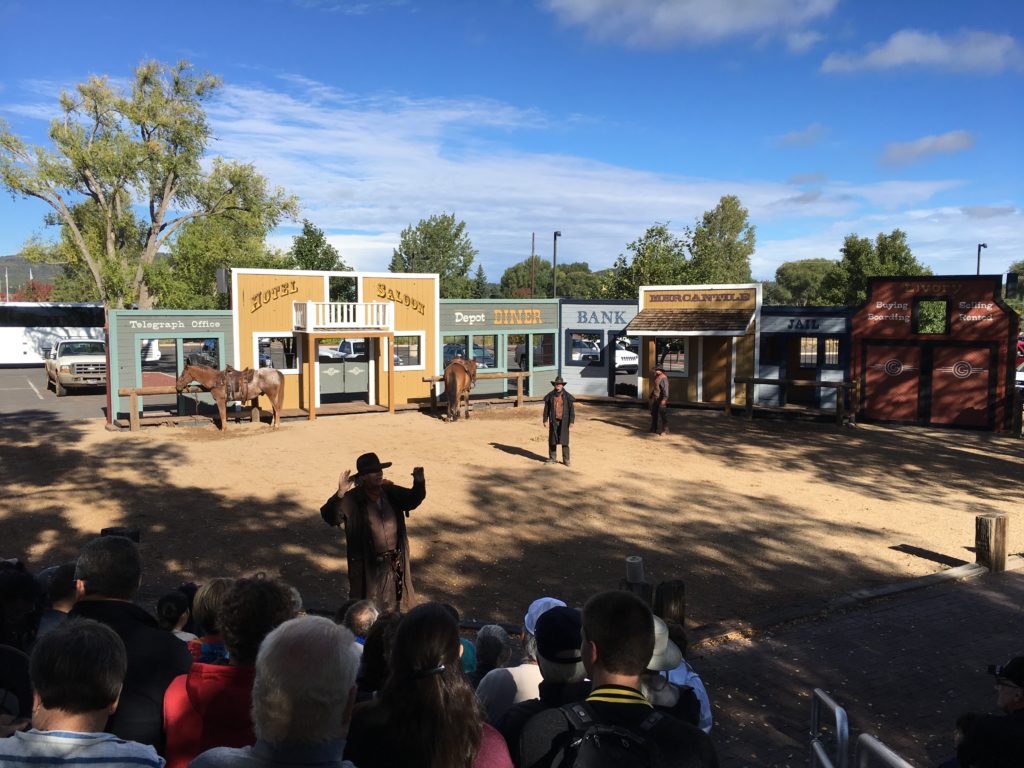
The train cars range from domed liners, to ultra first class luxury, to a 90 year old restored Pullman car, to, well, the more modest alternatives.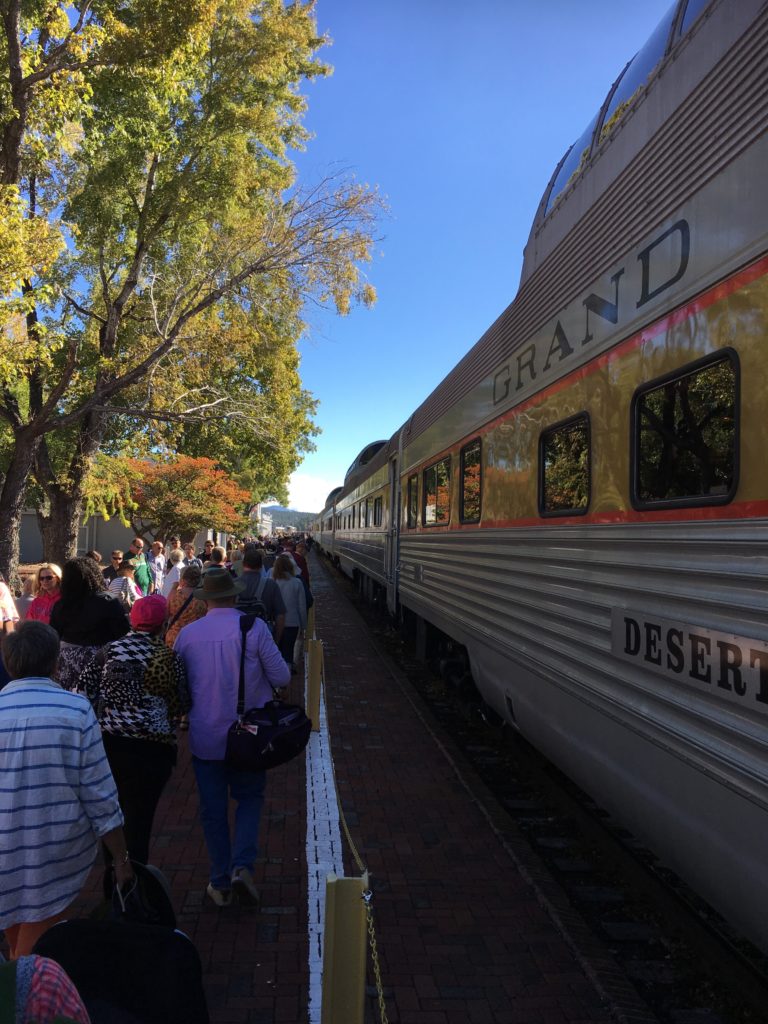
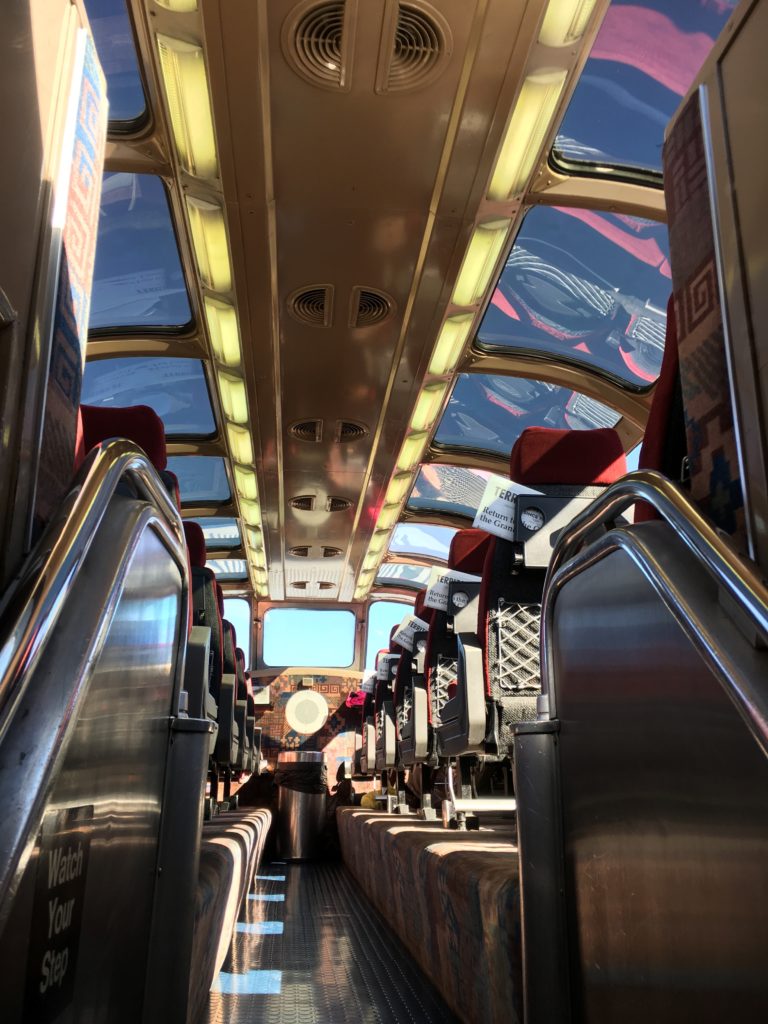
Restored 1920s Pullman coach: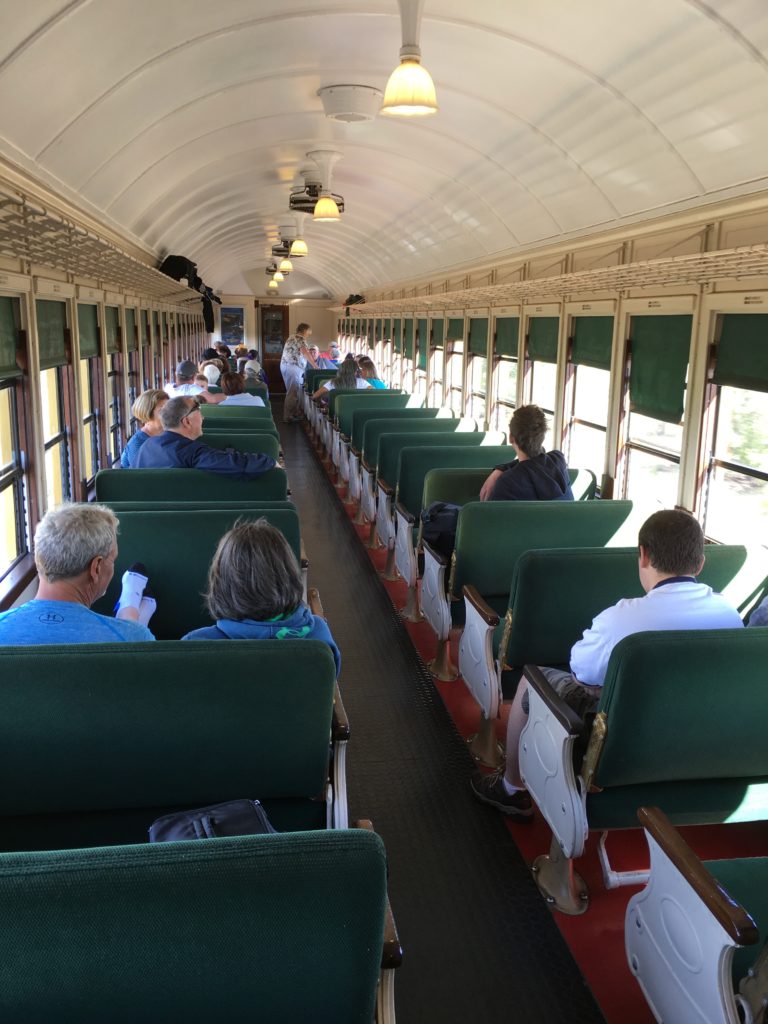
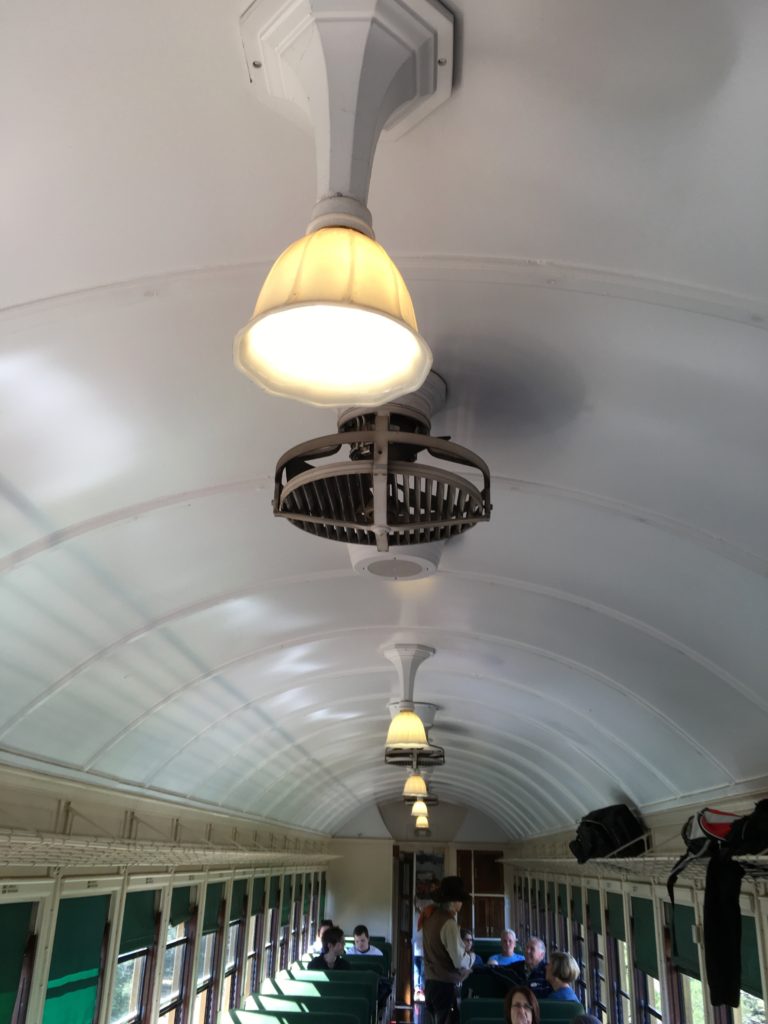
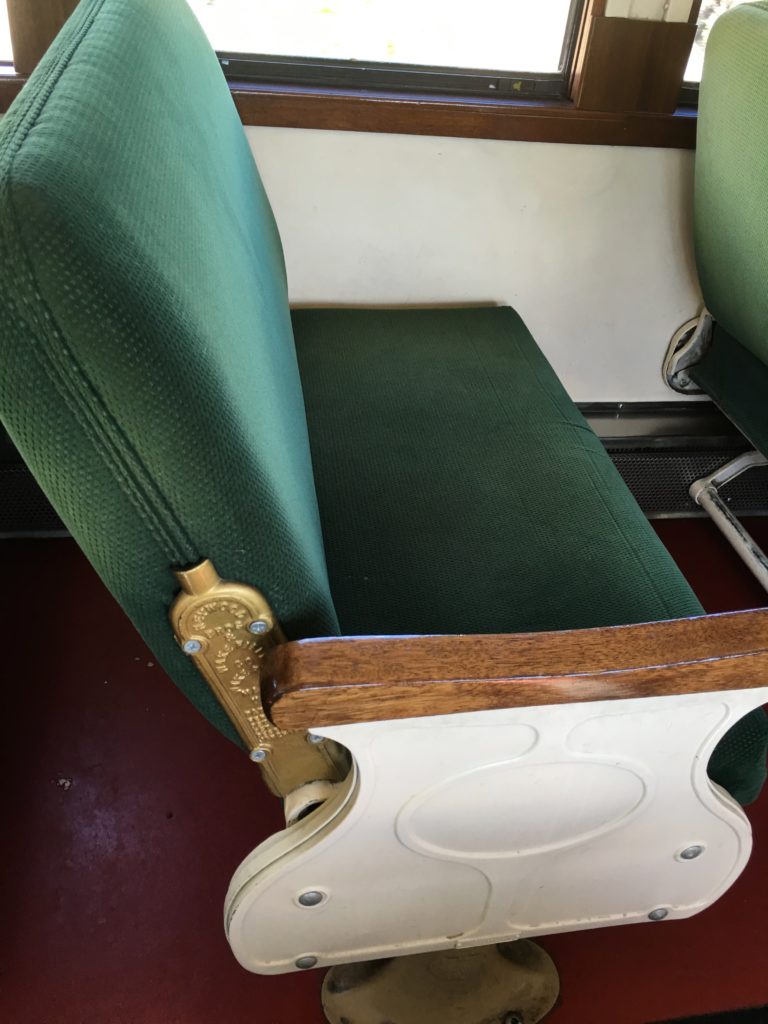
All the cars are visited by cowboy singers and in some cases songwriters of some pretty strange songs (think of dogs with opposed thumbs, which I am not making up: check out D.B. Rouse “The Sophisticated Singing Cowboy,” for which words #1 and #3 are true but I don’t think #2 and #4 are accurate). They are all talented performers and invited fun singalongs.
The scenery starts our barren but for cattle, some of whom wander onto the tracks and require train stops, to the higher elevations–the Colorado Plateau, though still in Arizona–with trees and vegetation.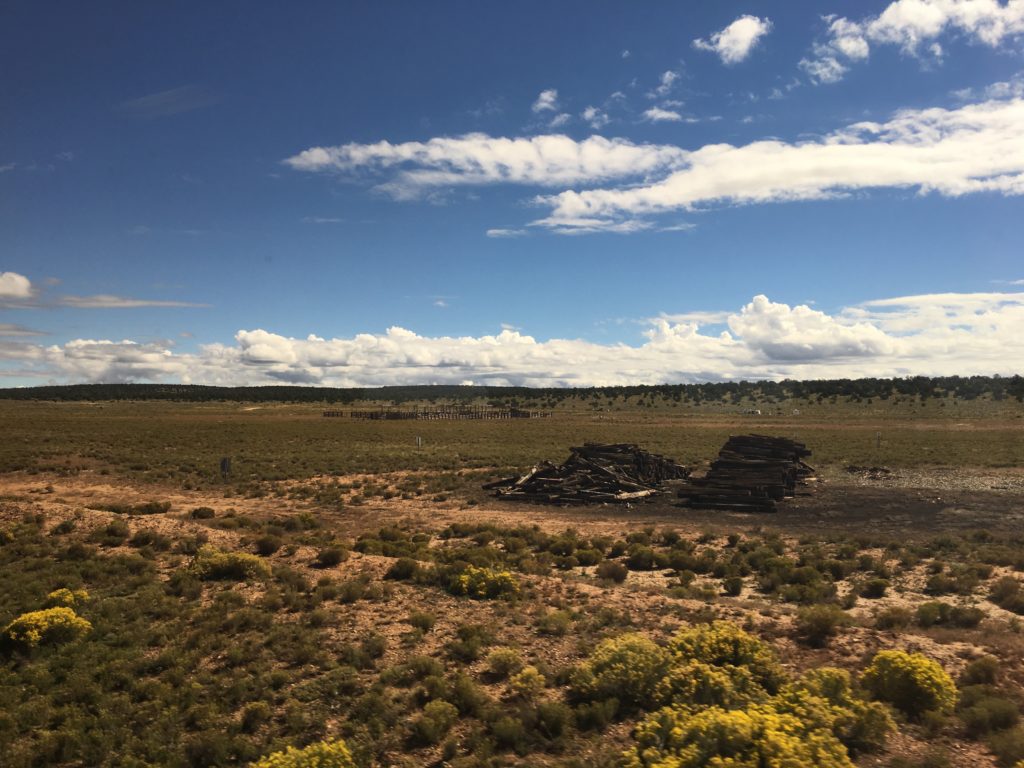
The prize at the end of the 2.5 hour ride is of course the magnificent, humbling Grand Canyon. Words and pictures cannot capture the experience of being dwarfed by something so old, so large, made by such powerful forces.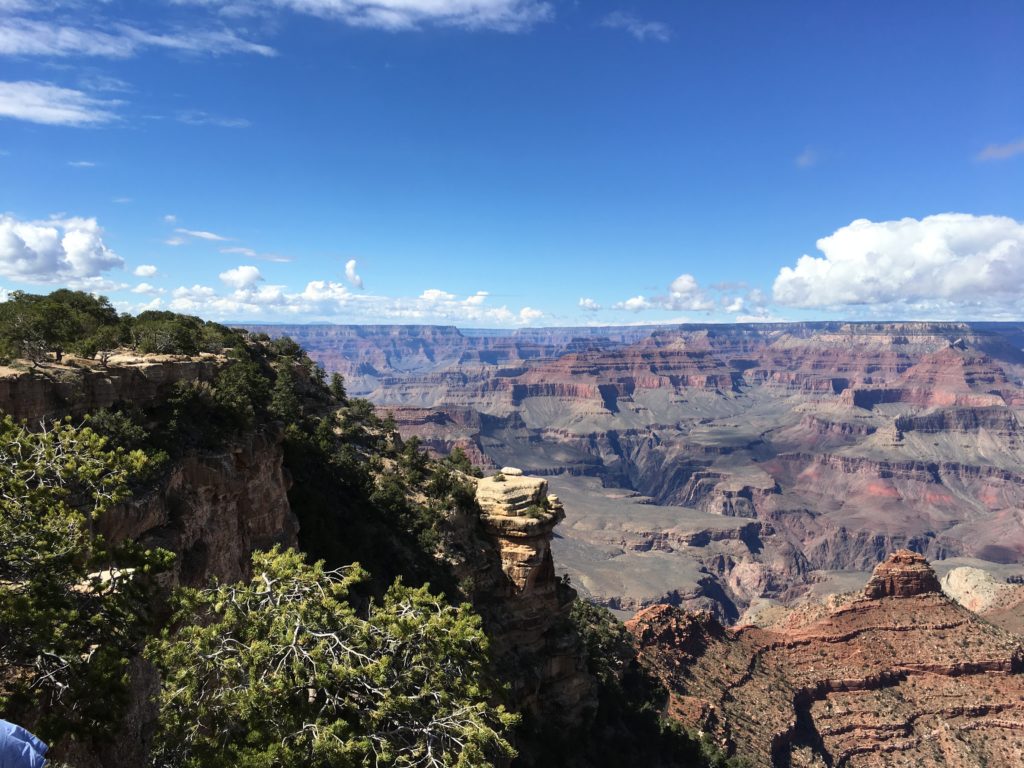
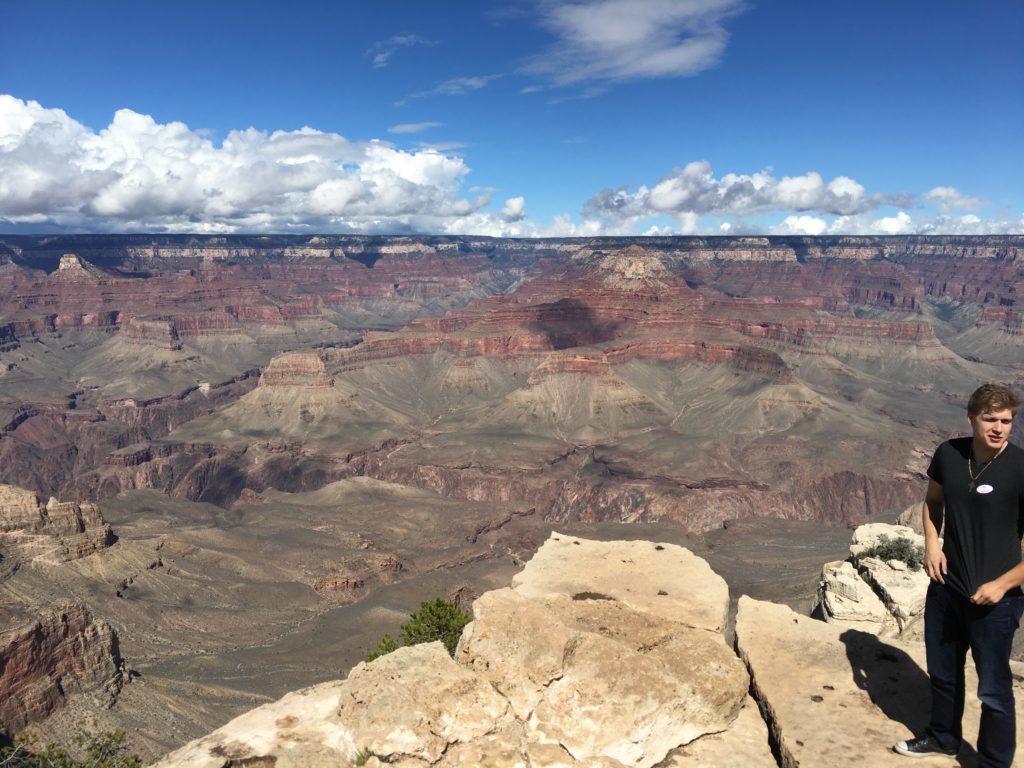
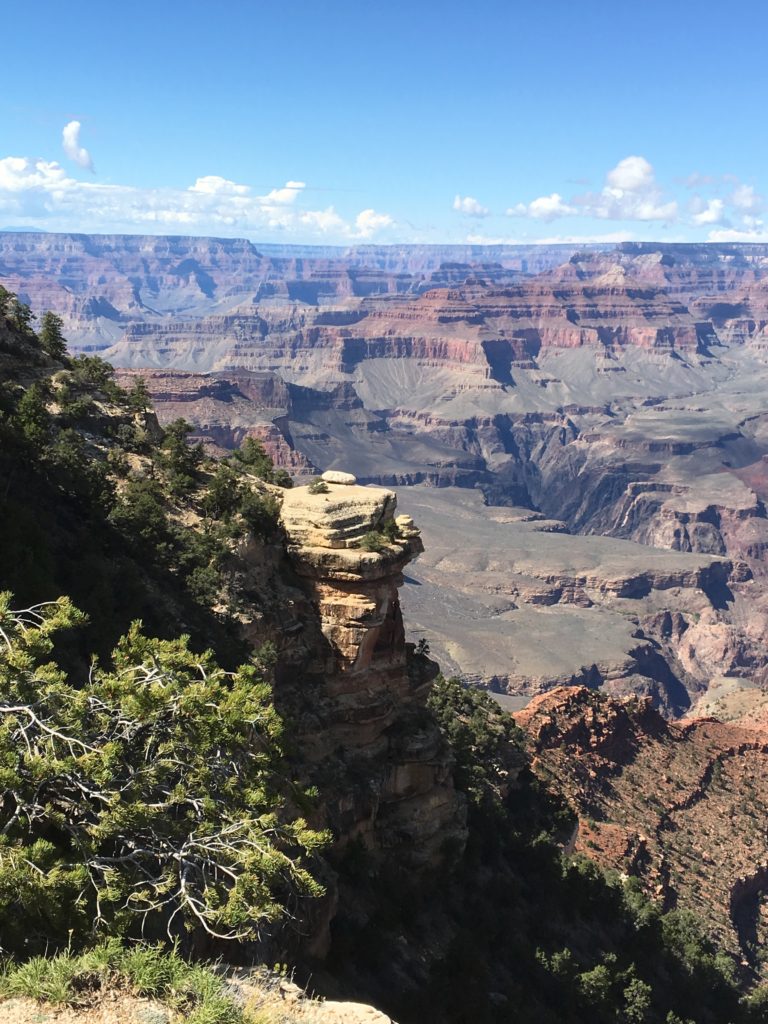
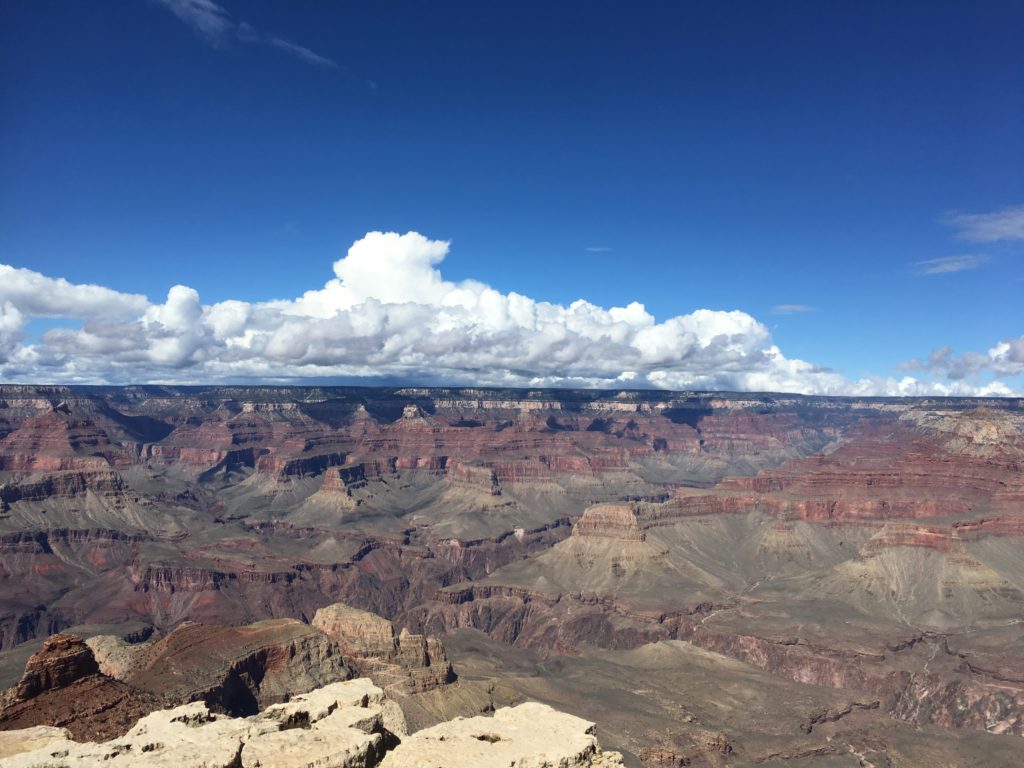
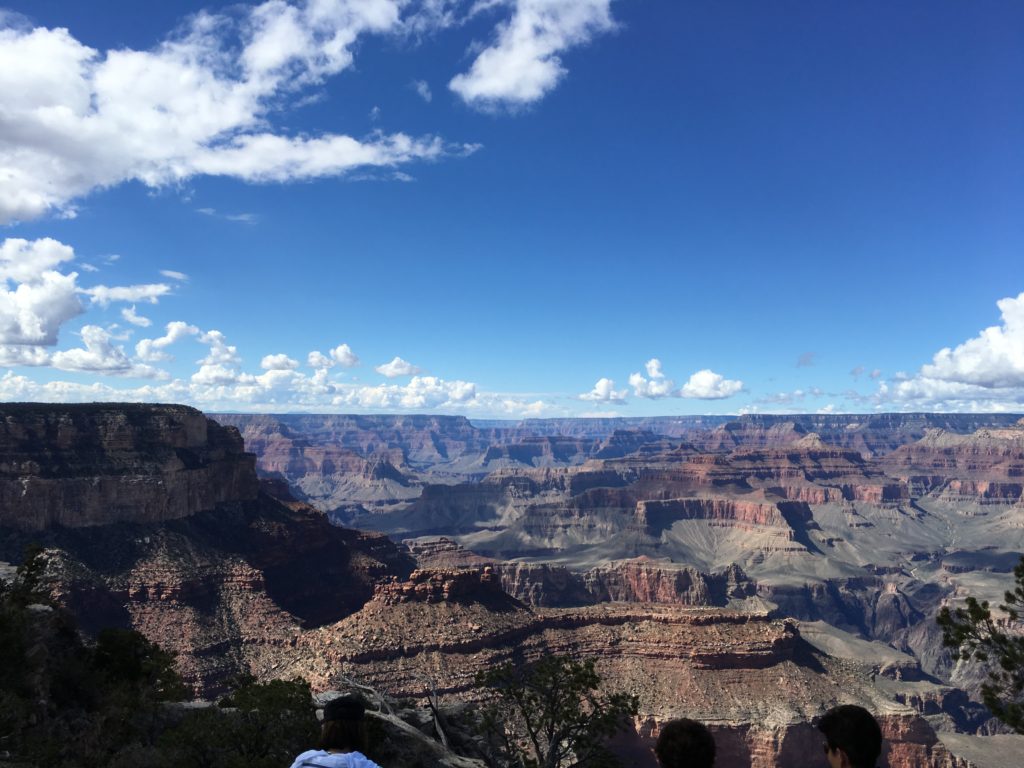
In the below picture the carving Colorado River can be seen, about one mile below the rim where I’m standing, and many miles north of where I am.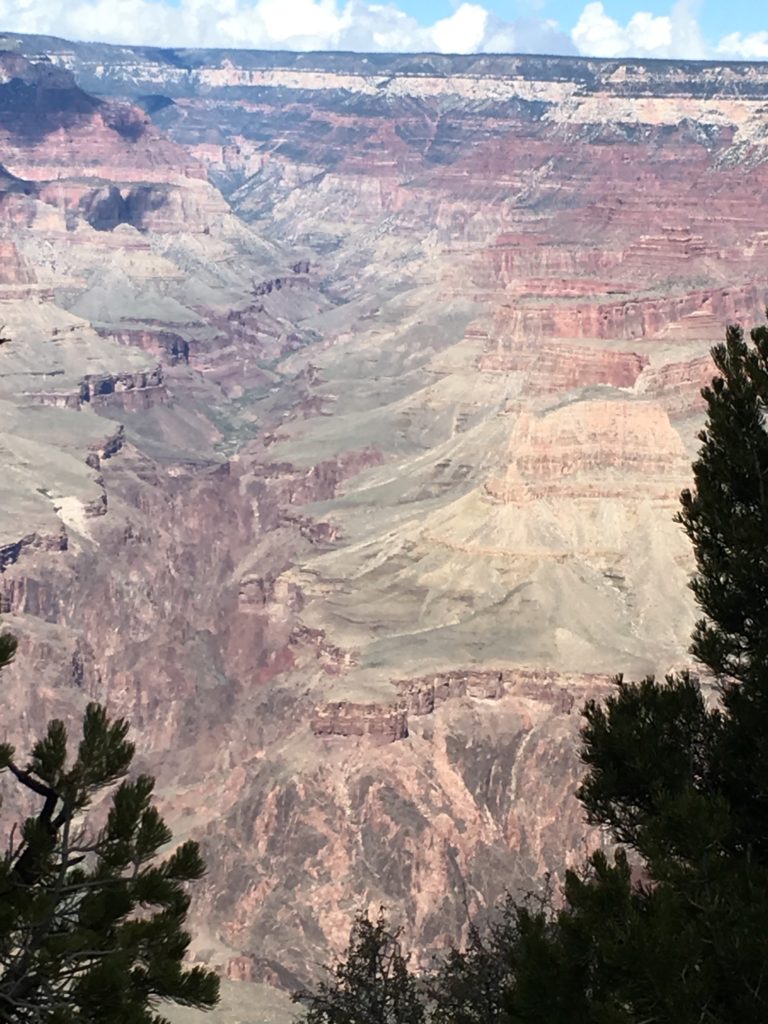
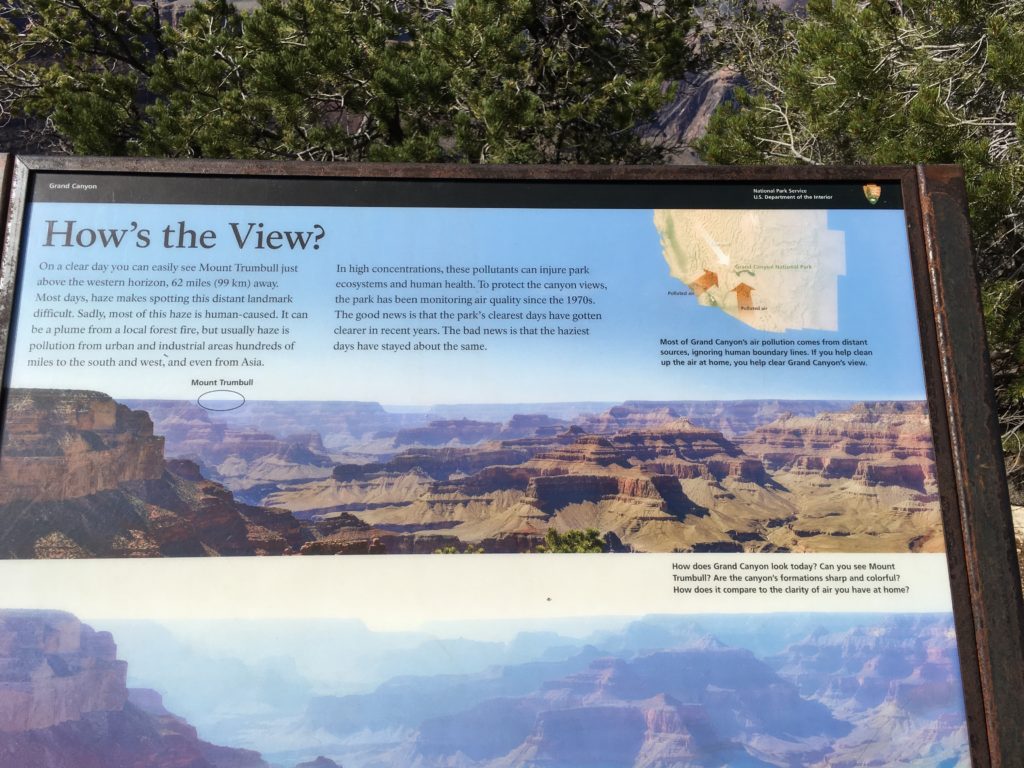
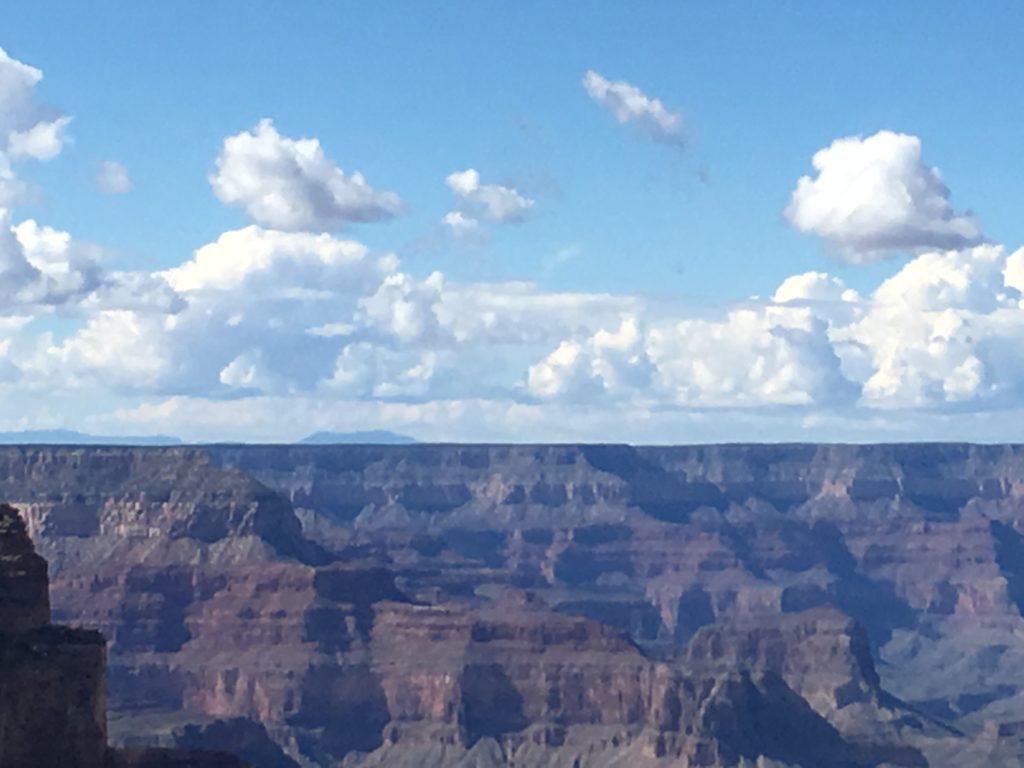
Additional video and pictures of the Grand Canyon are given here:
There are restaurants, hotels, shops, and museums scattered throughout the South Rim village. Below is a famous fireplace.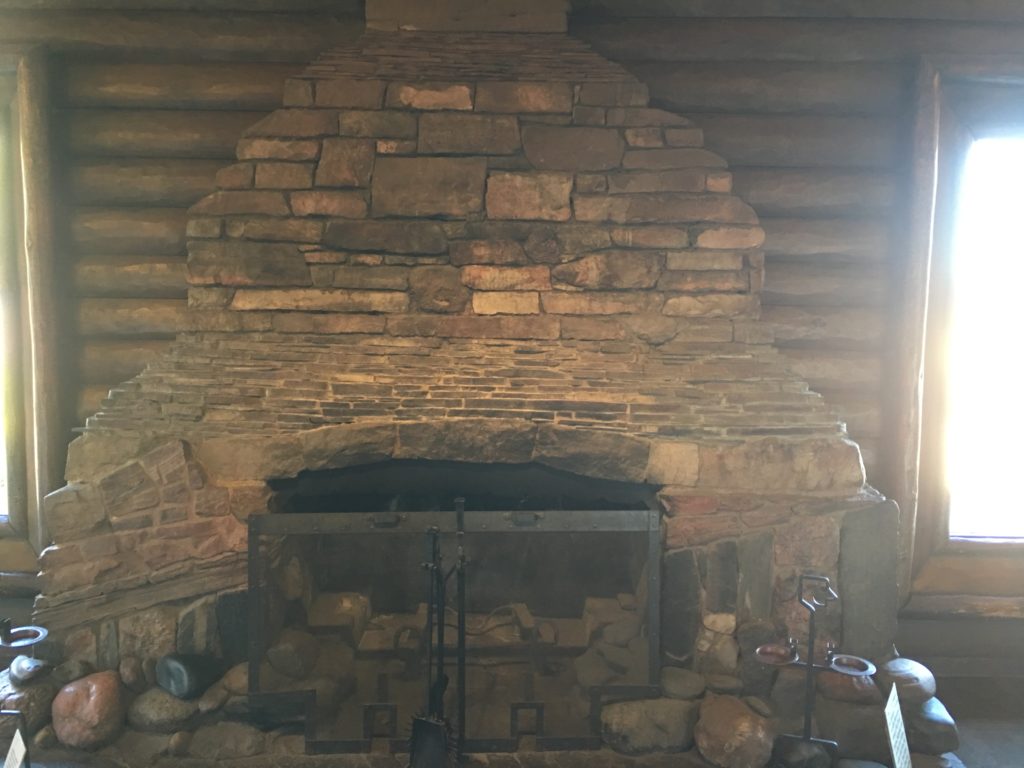
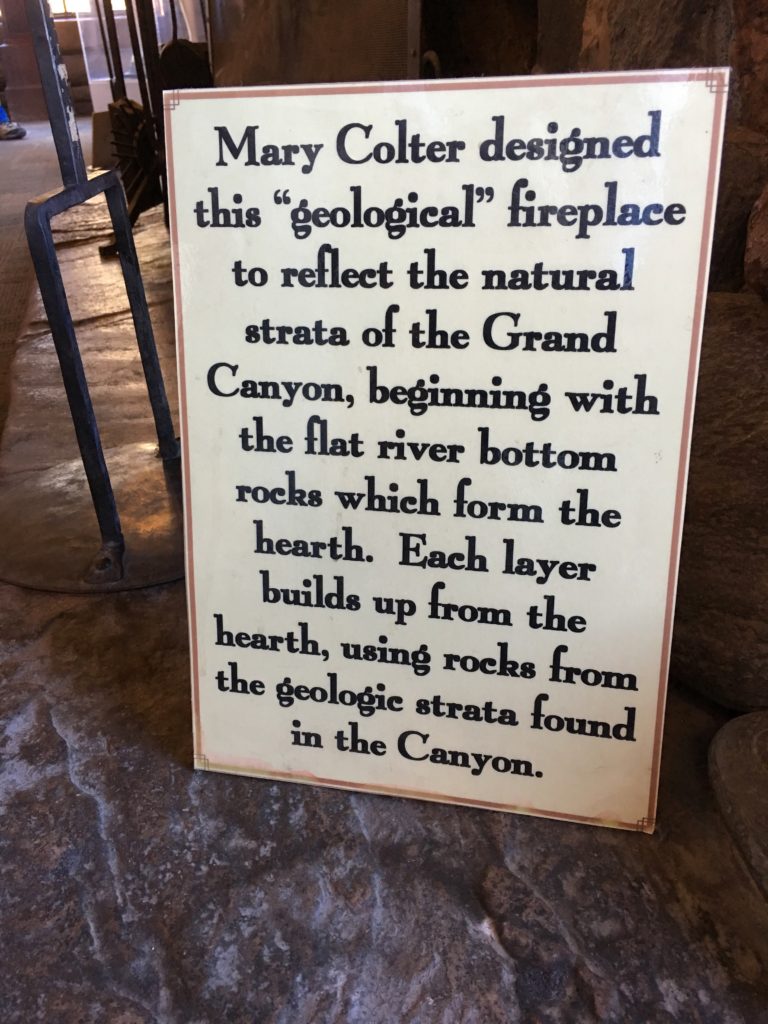
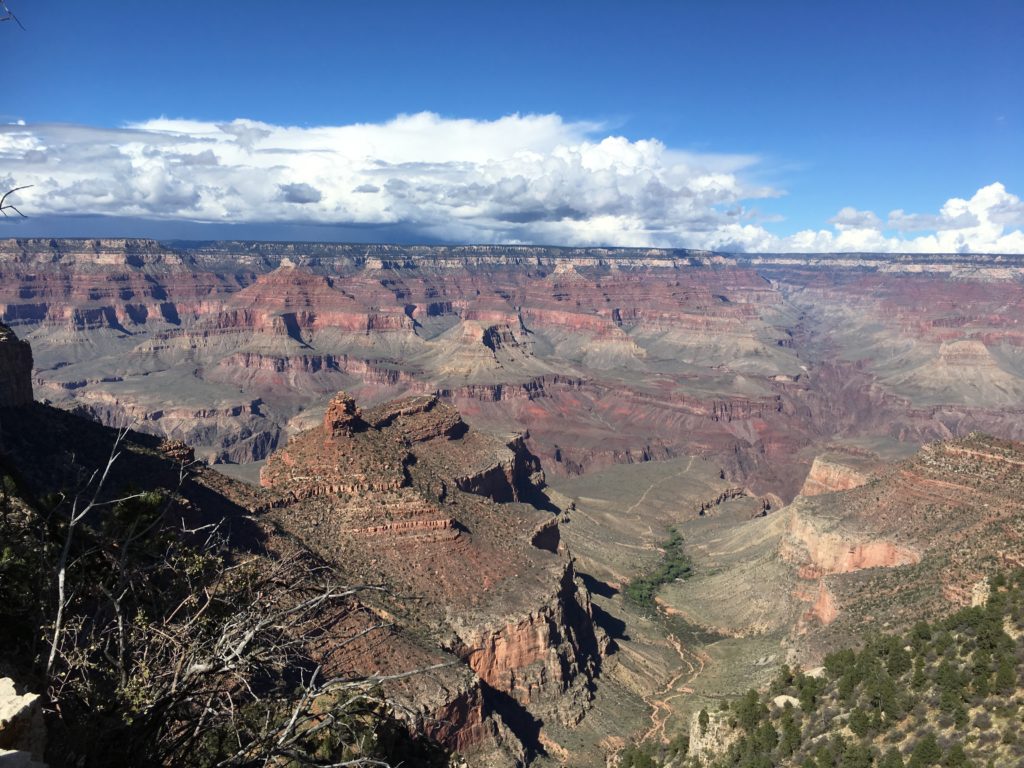
Elk are a common sight.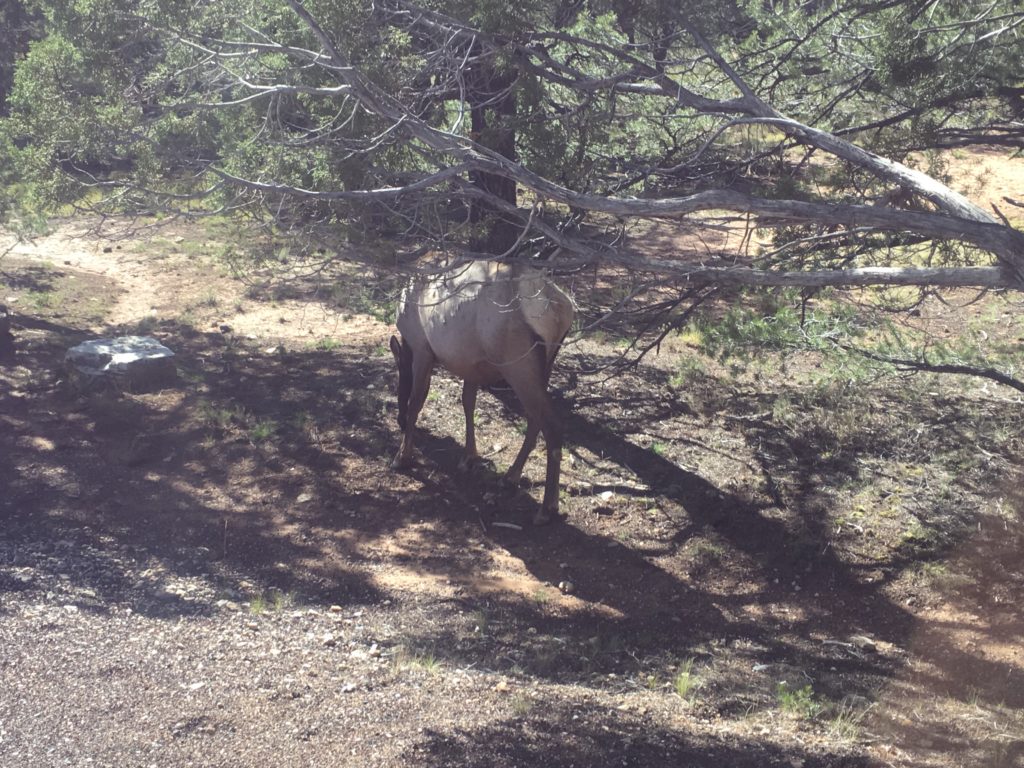
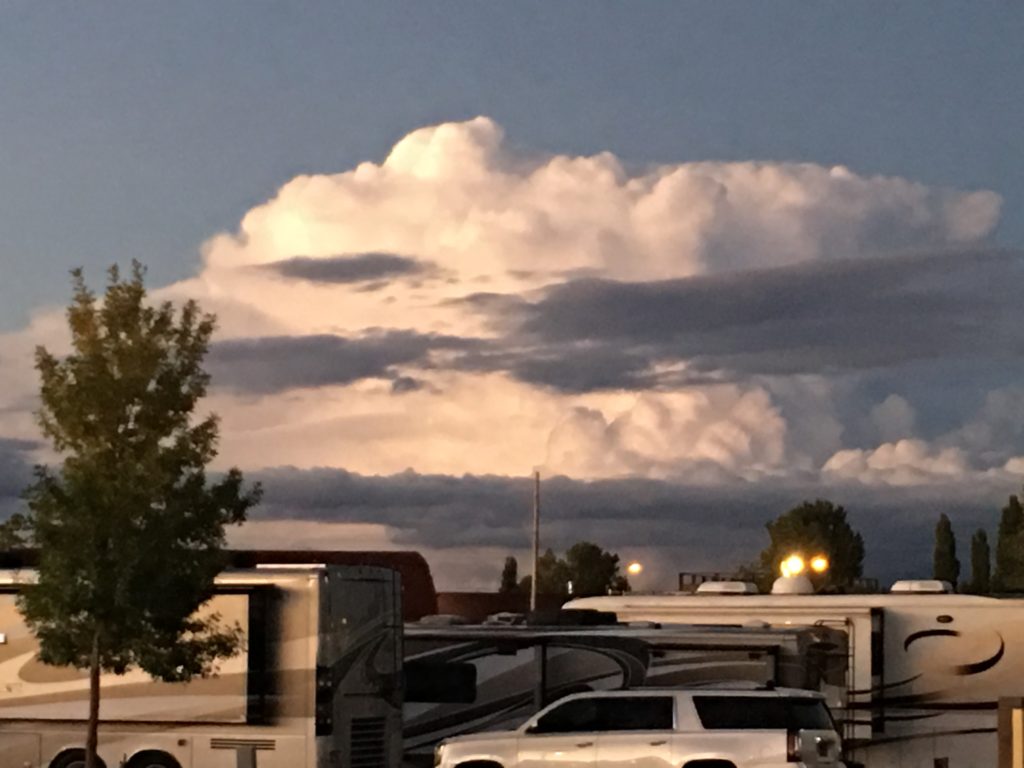
On the train ride back to Williams, train robbers on horses ‘stop’ the train, board it, and visit all the cars ‘taking’ valuables (tips). Kids have a blast with the experience.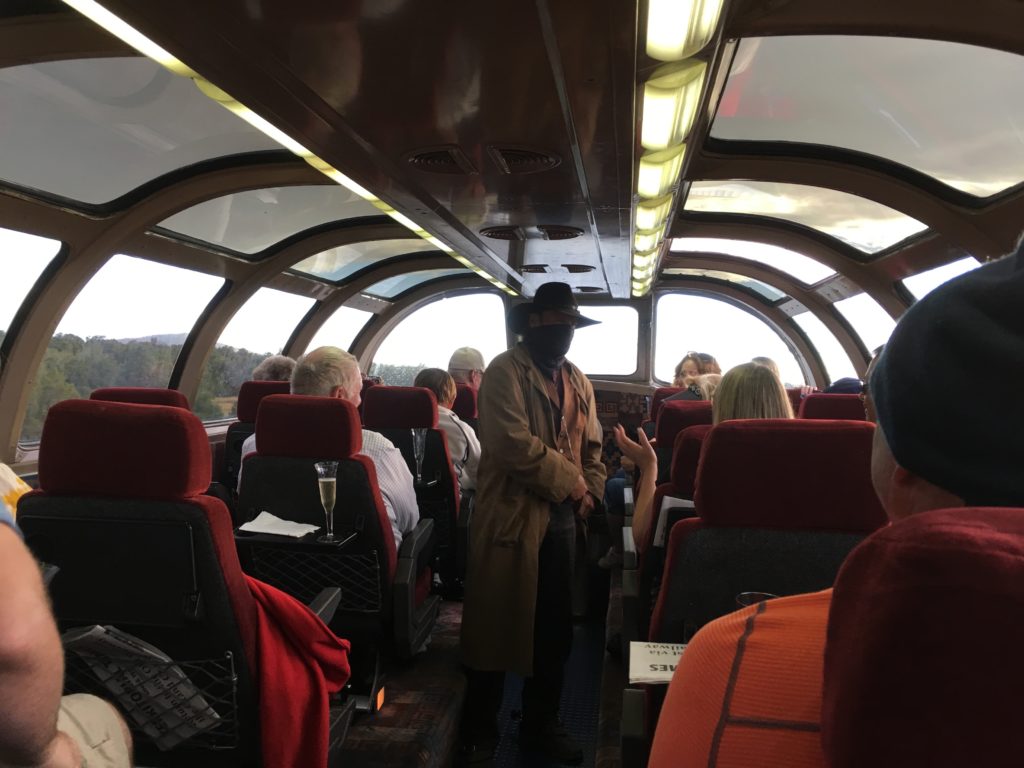
Going West from Williams are several more historic Route 66 towns, starting with Ash Fork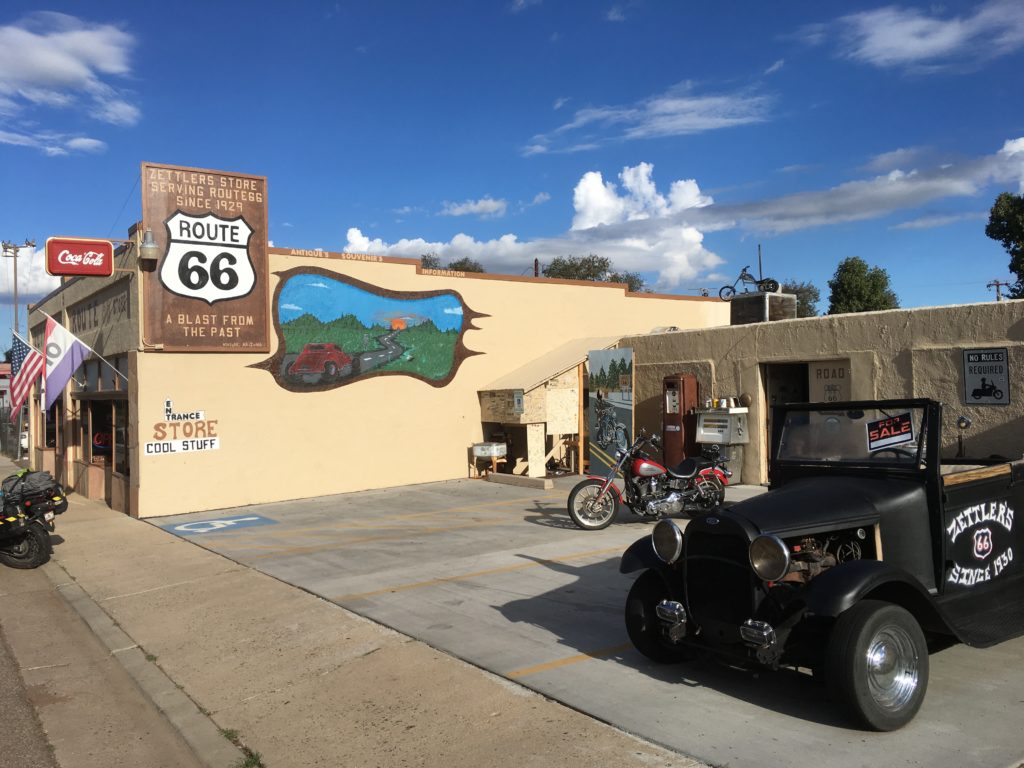
In each town there are multiple ‘retro’ shops displaying and selling memorabilia of all sorts, including old cars and trucks (which are probably not for sale, but who knows).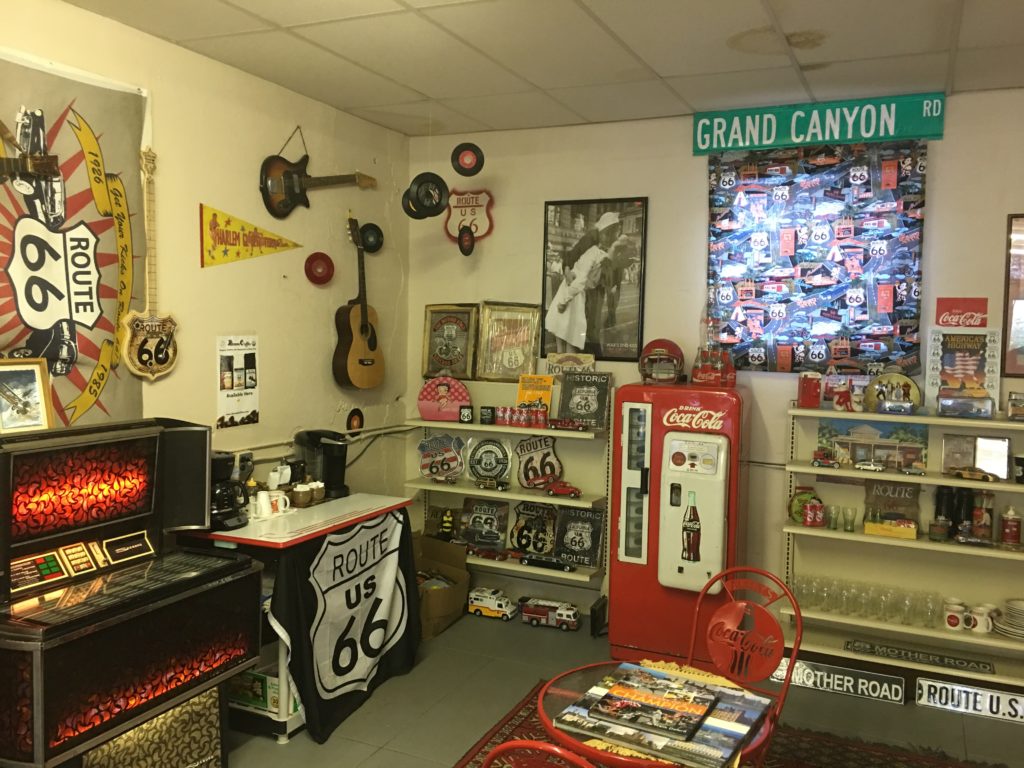
I wonder how many times the Everly Brothers played out of this box.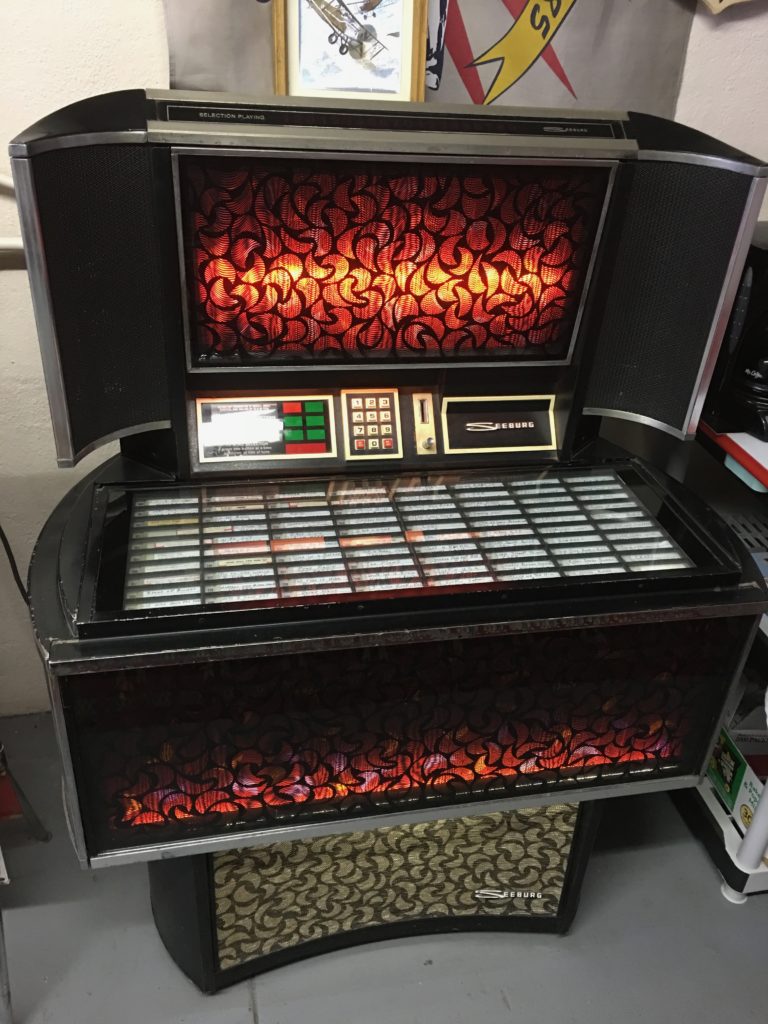
Seligman AZX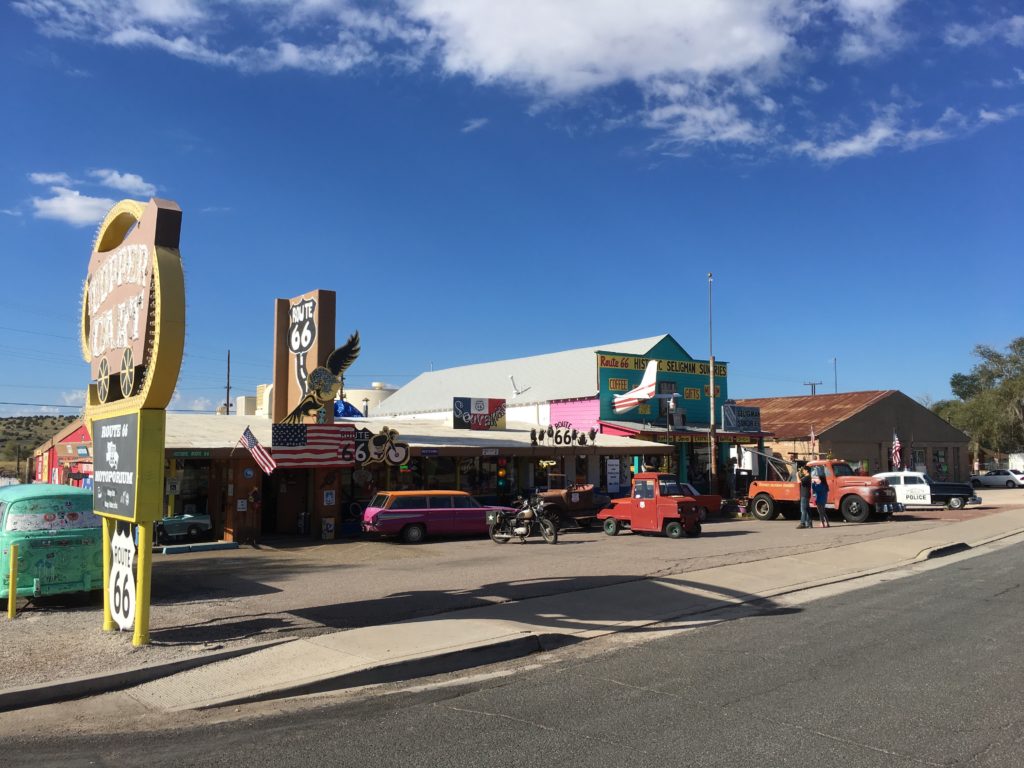
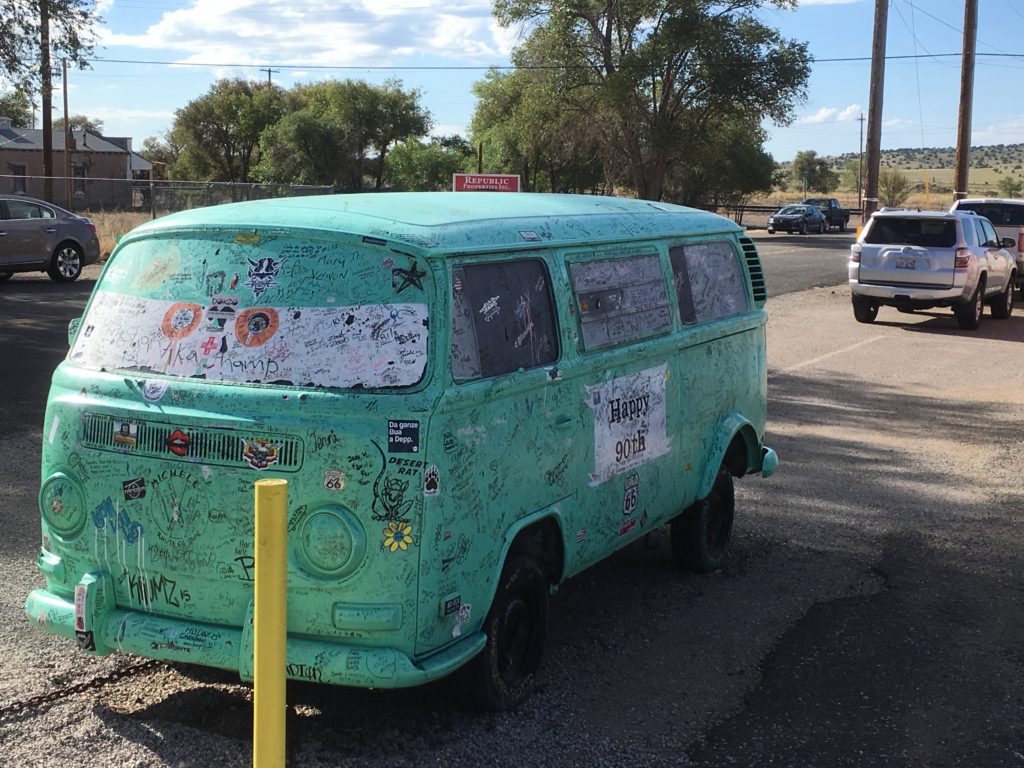
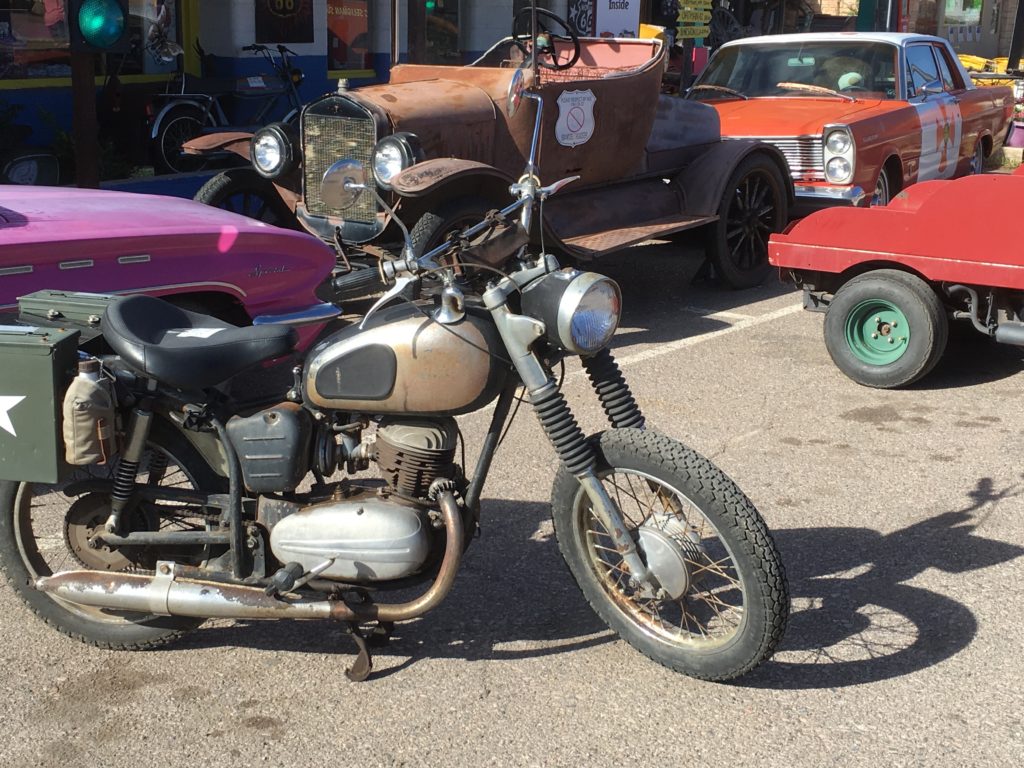
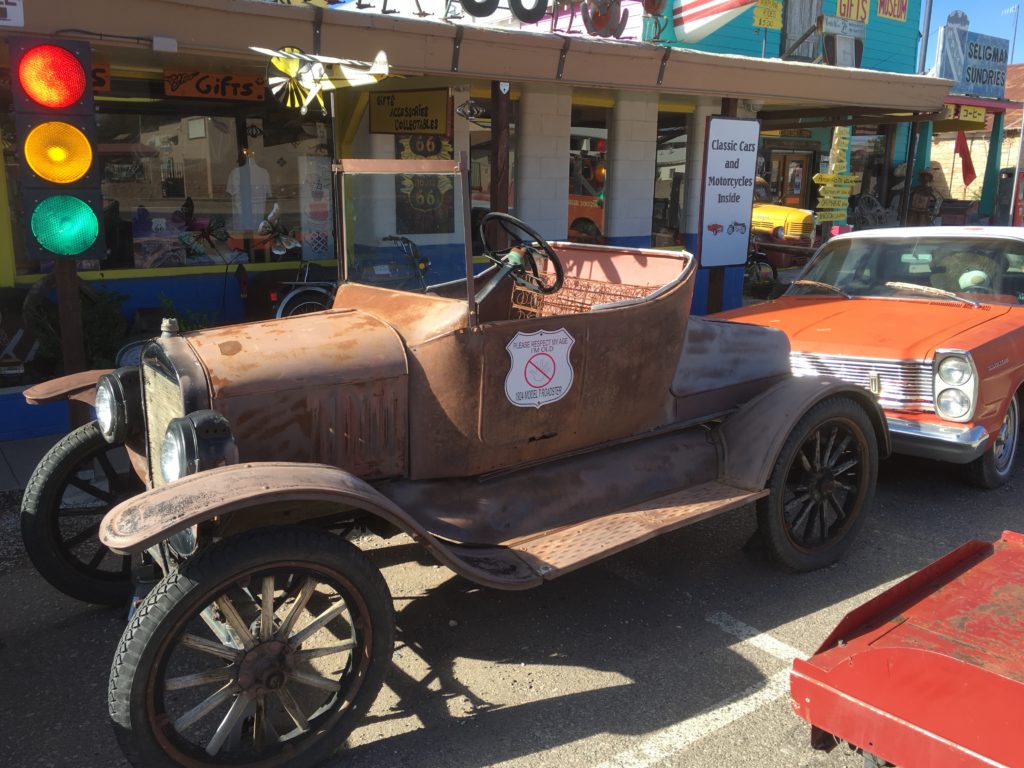
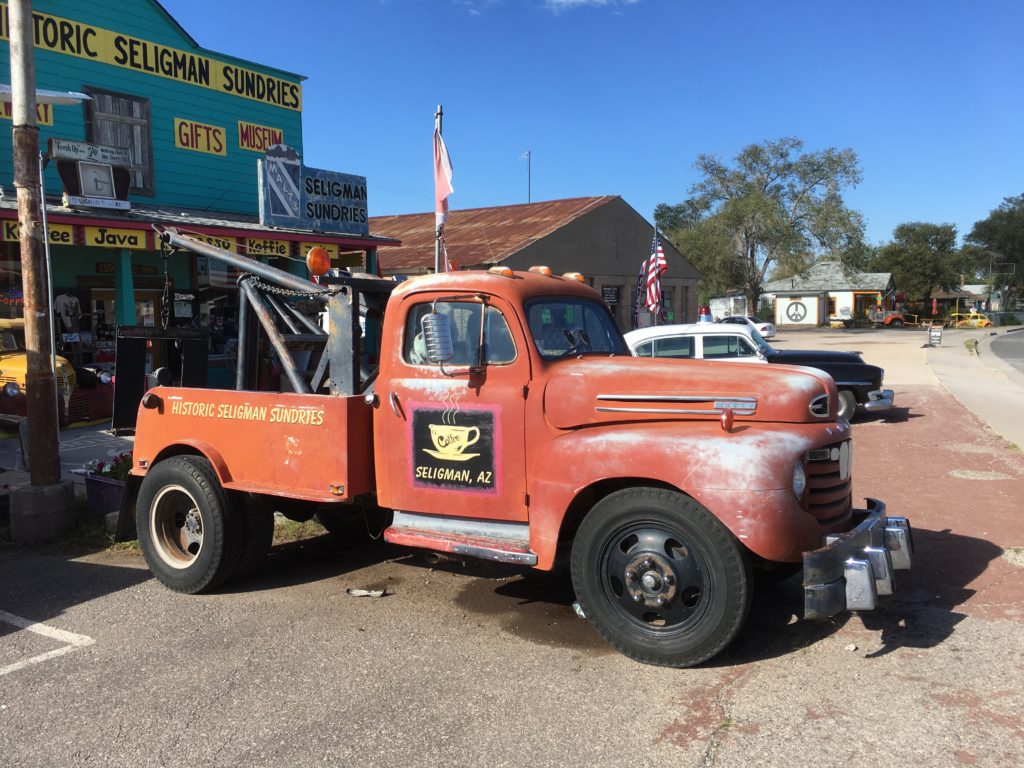
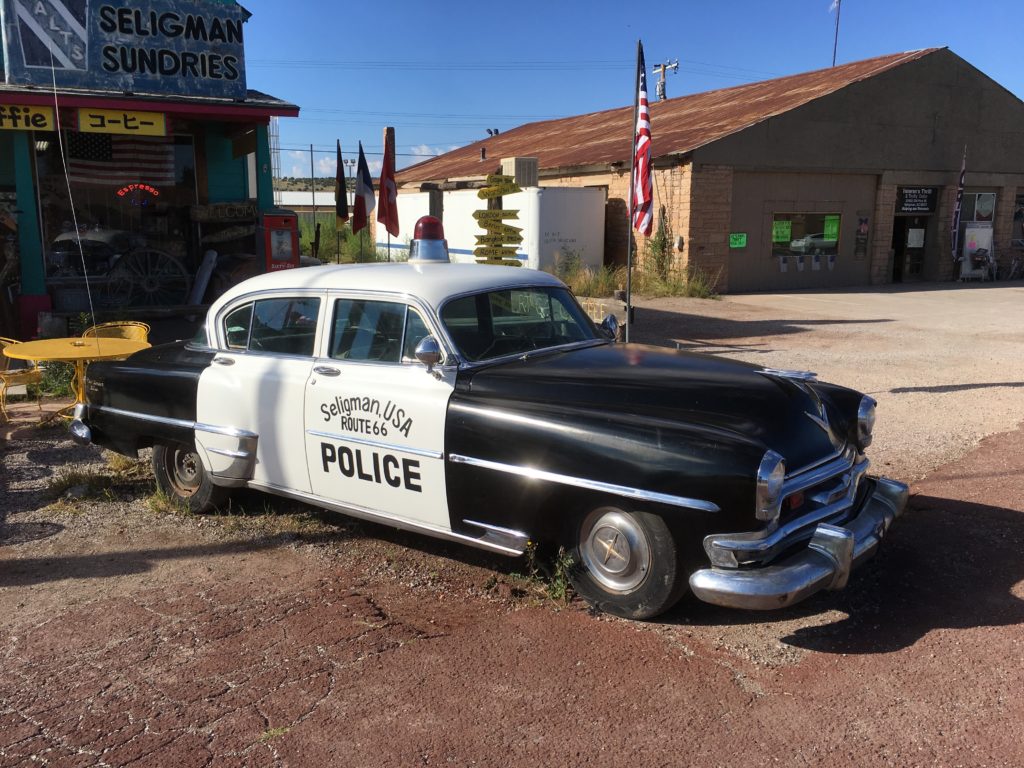
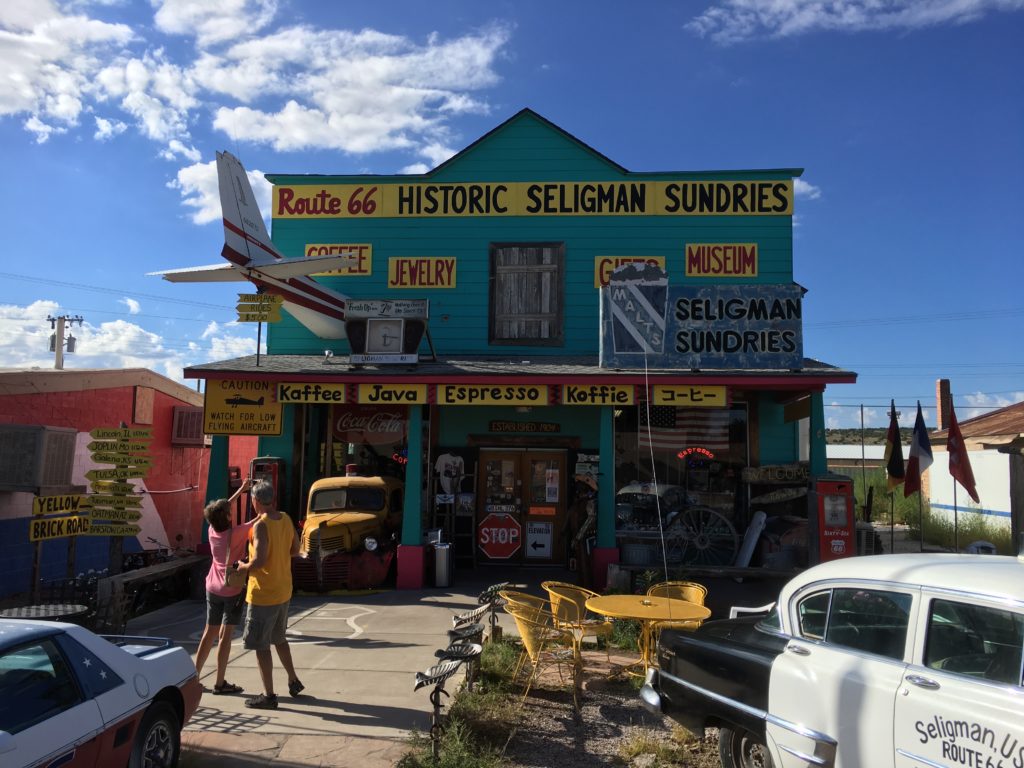
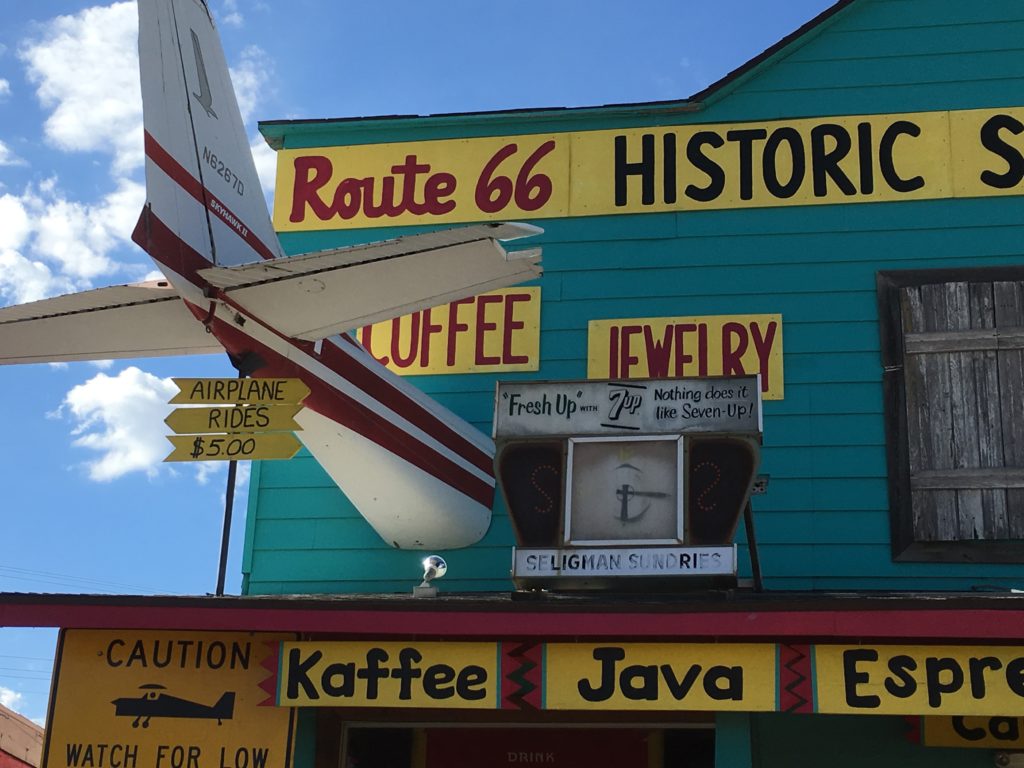
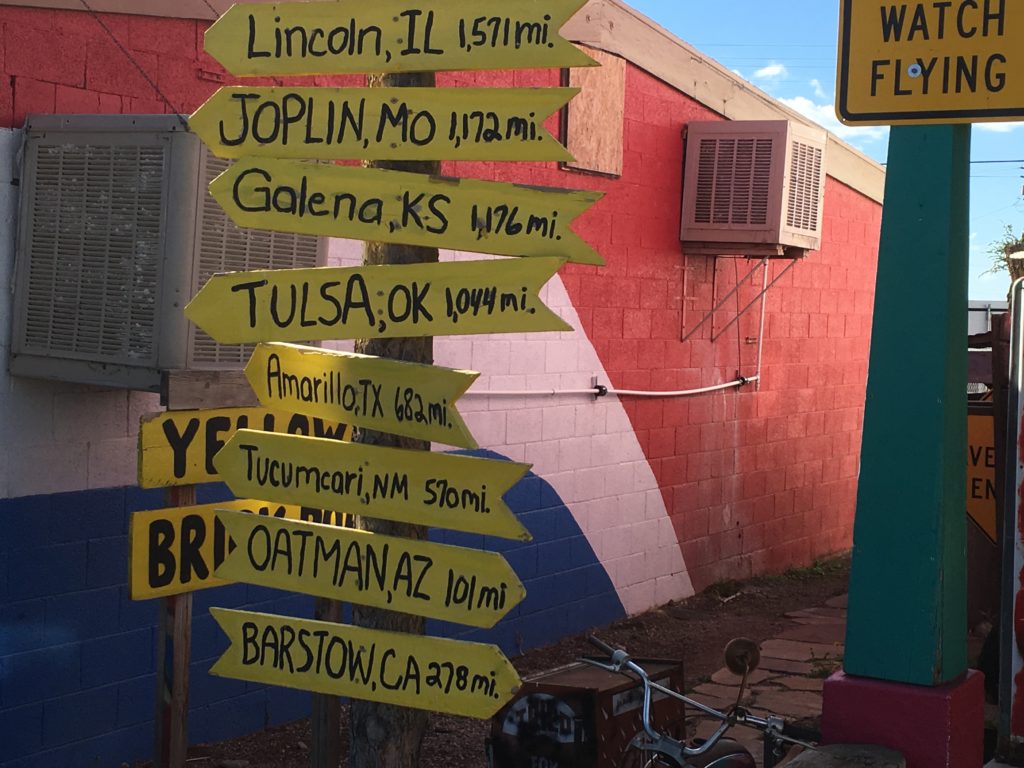
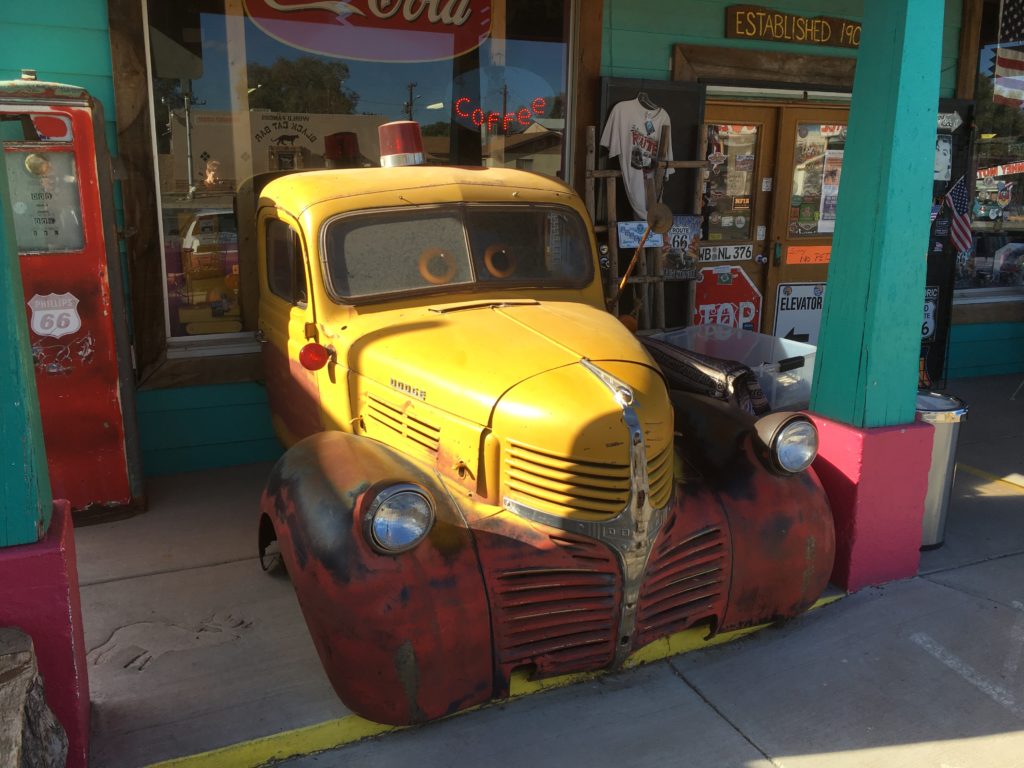
The 65 Irish guys were here ahead of me (again). Seligman is a big deal Route 66 stop.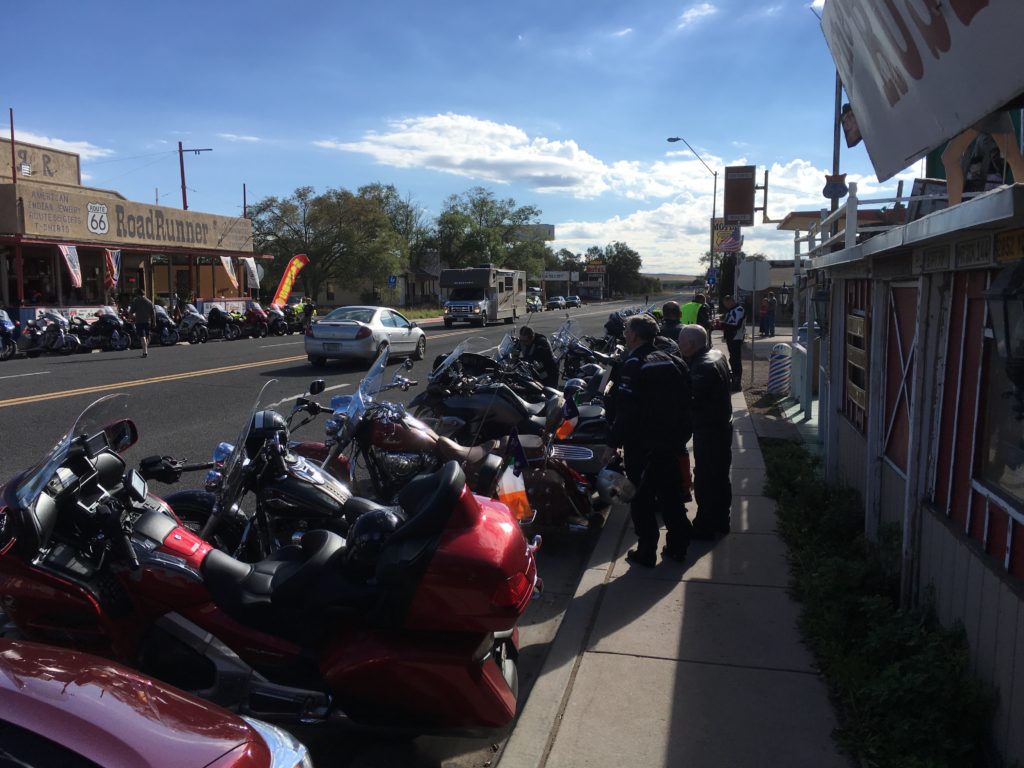
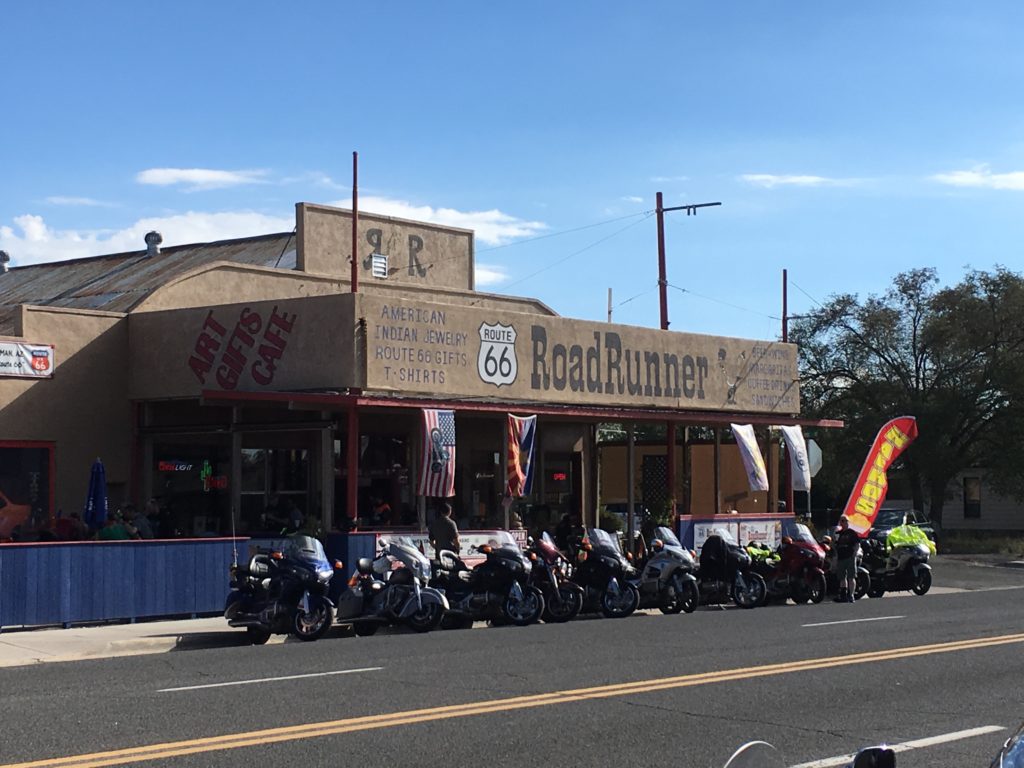
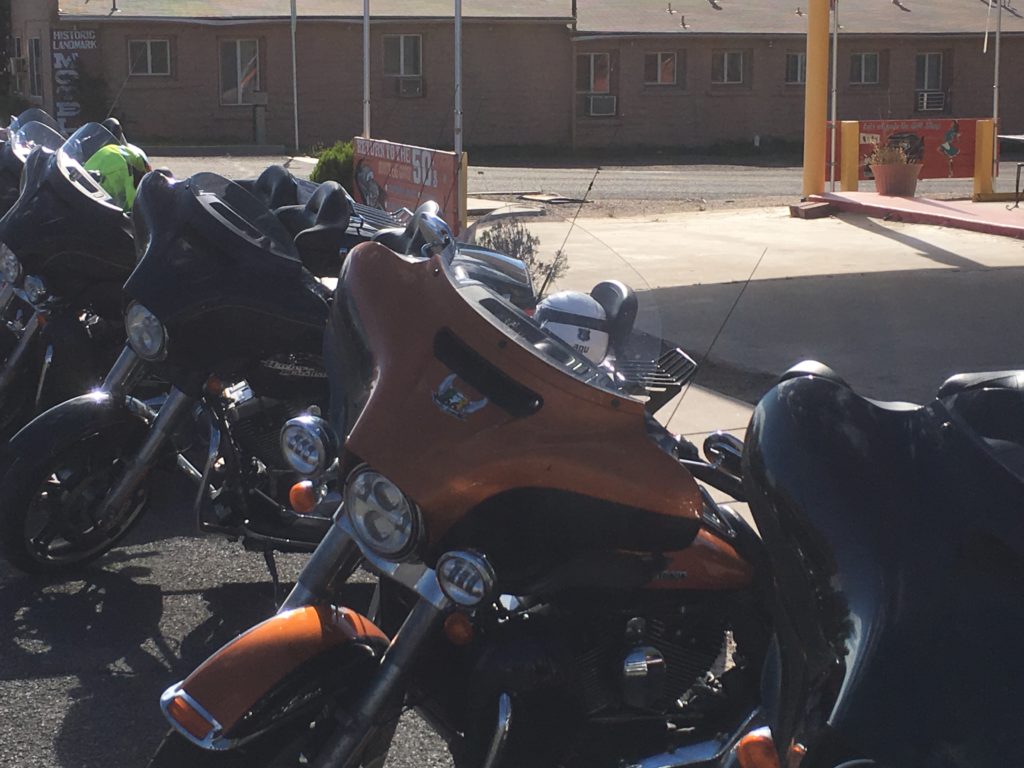
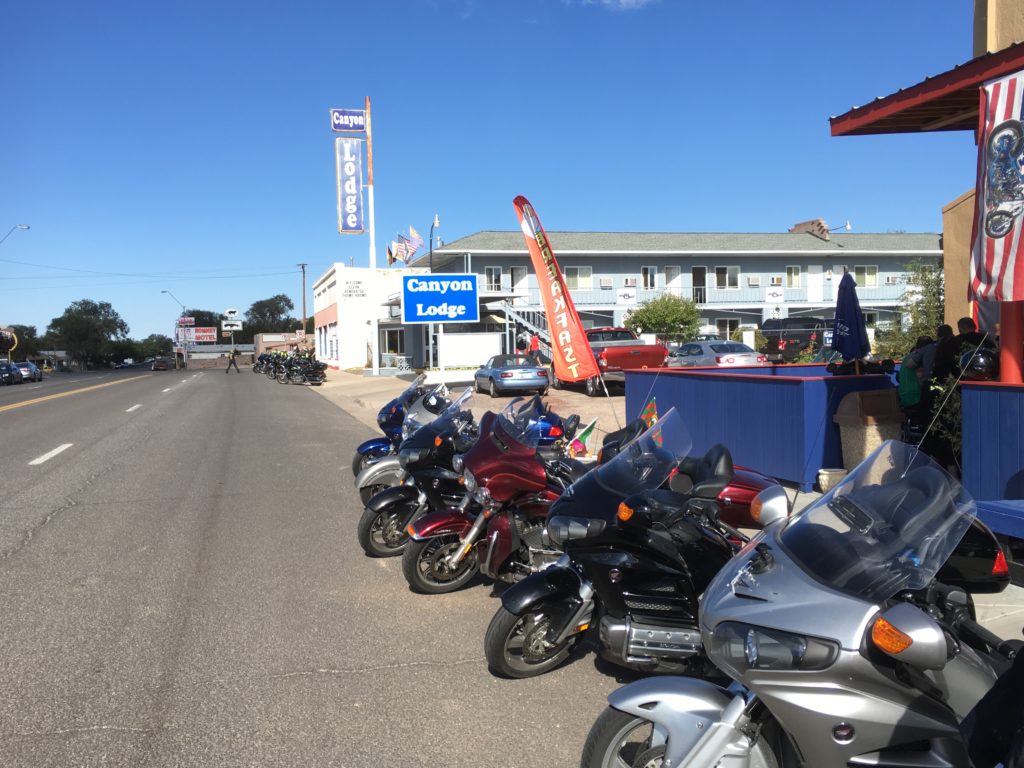
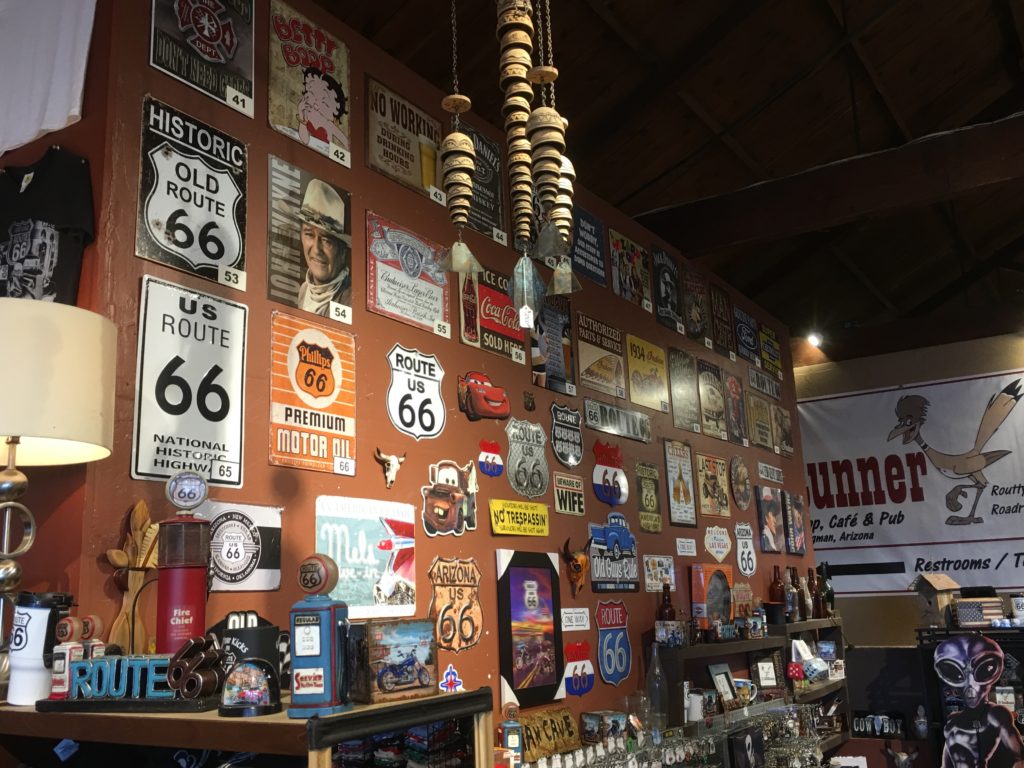
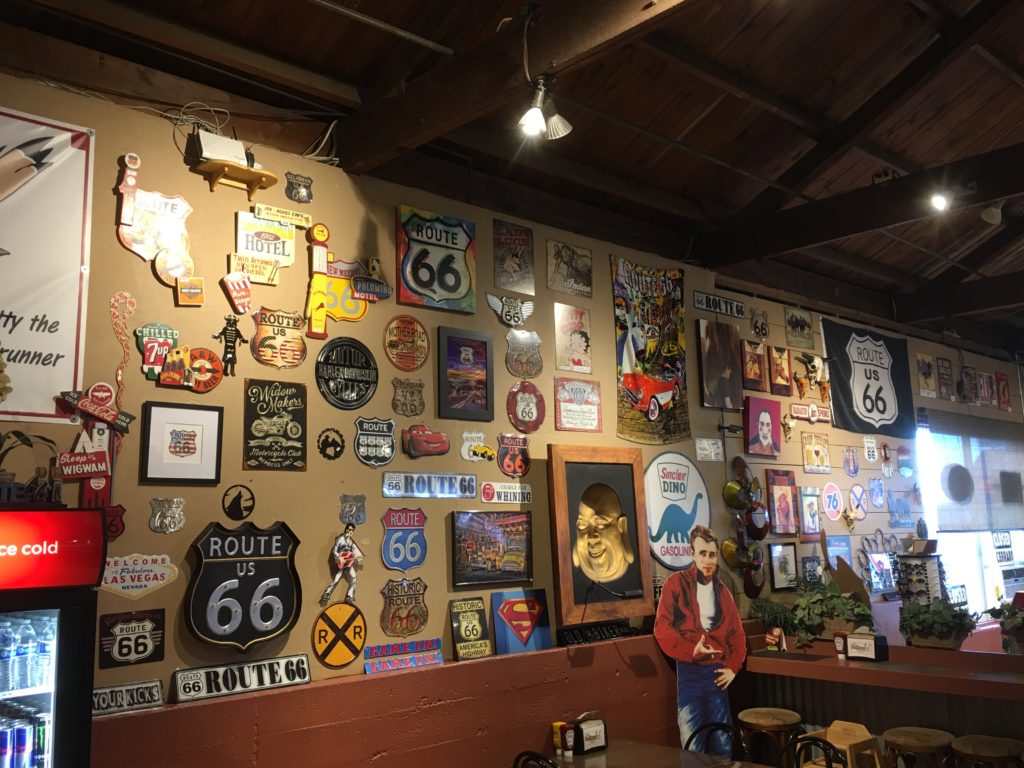
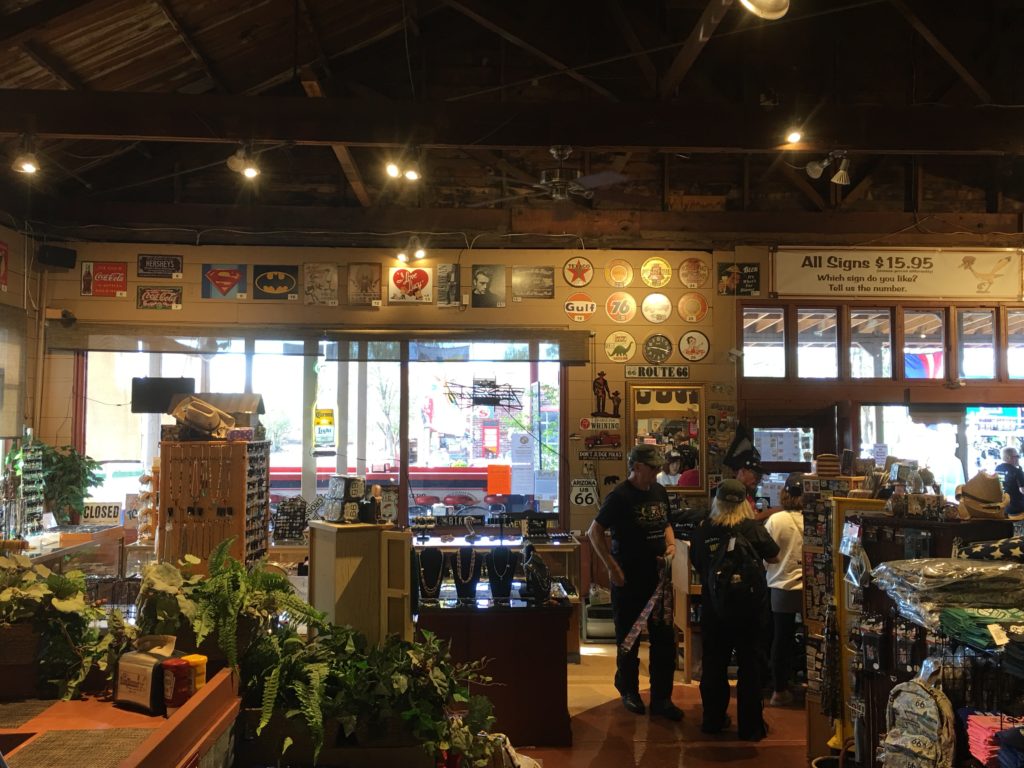
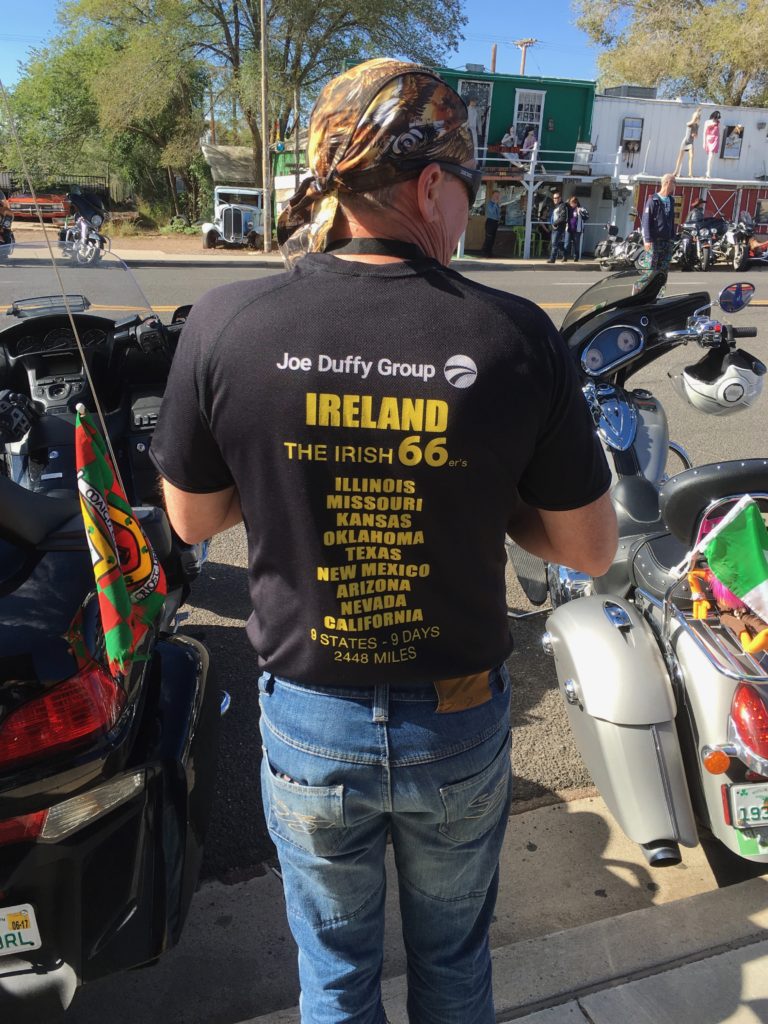
And further West is Hackberry AZ.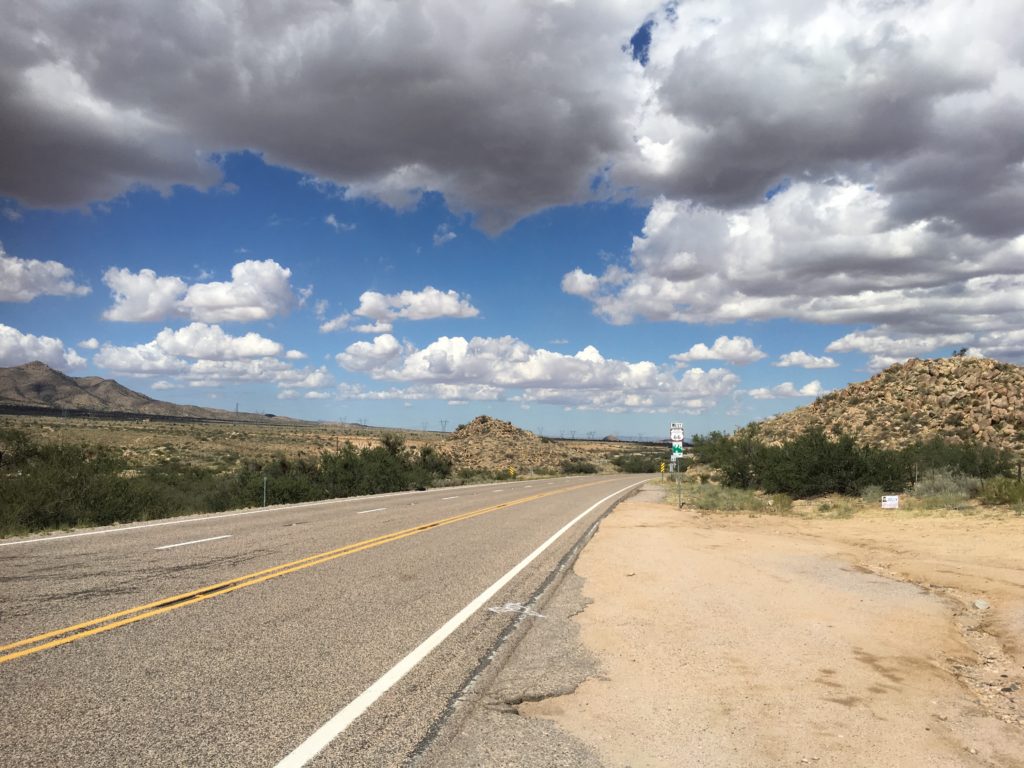
The “general store,” which is about the only thing in Hackberry is an old Route 66 stopping point on the edge of a long stretch of no services. A 30ish female bought the place not long ago from the original owner from way back when and has really improved it, taken it over, and is preserving it for another generation of memories. A very cool place that makes you feel like you’ve time-machined back into the 50s, and “I Like Ike” is President, mom and dad are keeping house and home together and are worried about you traveling so far from home without any form of communication. Life is good.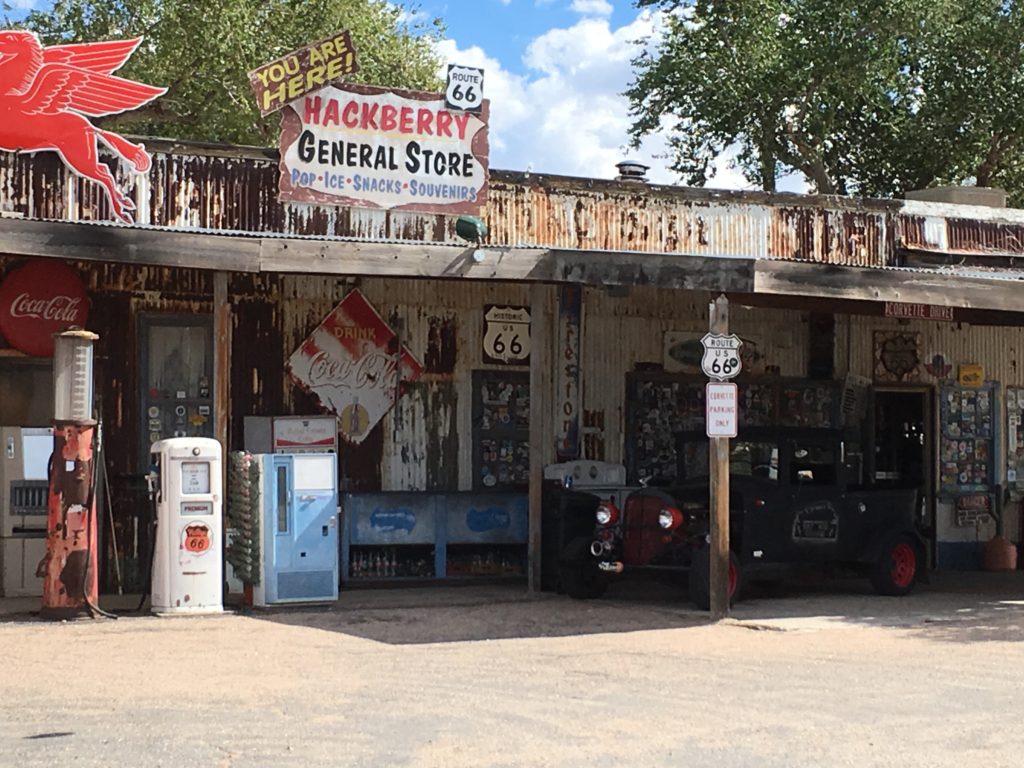
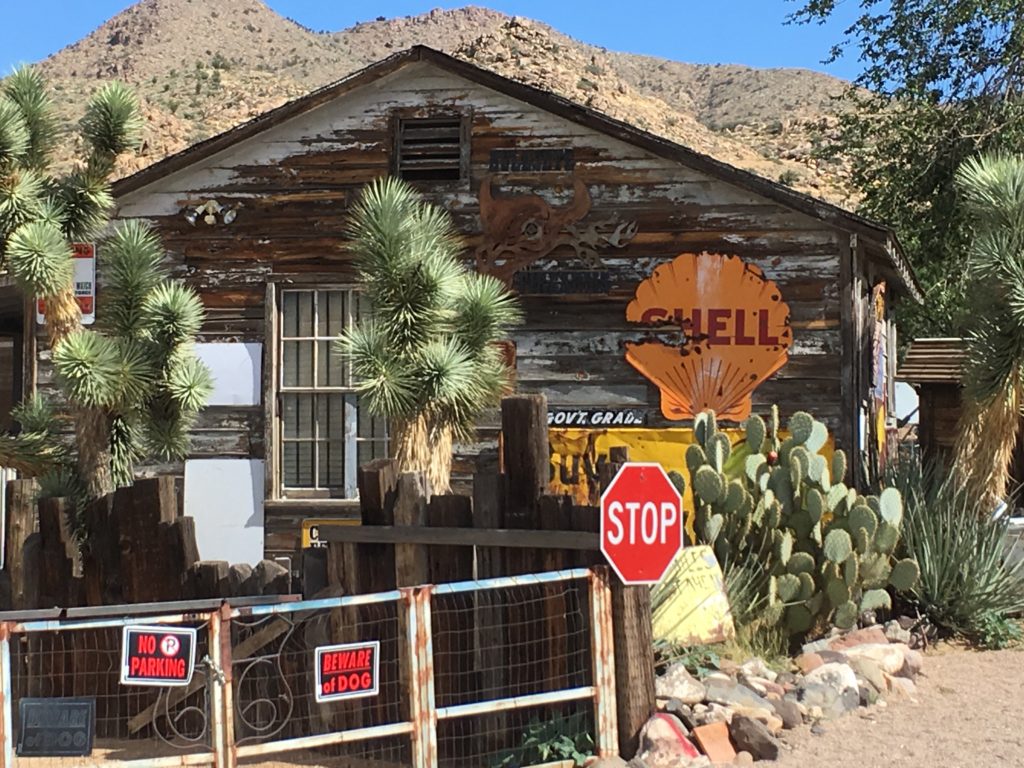
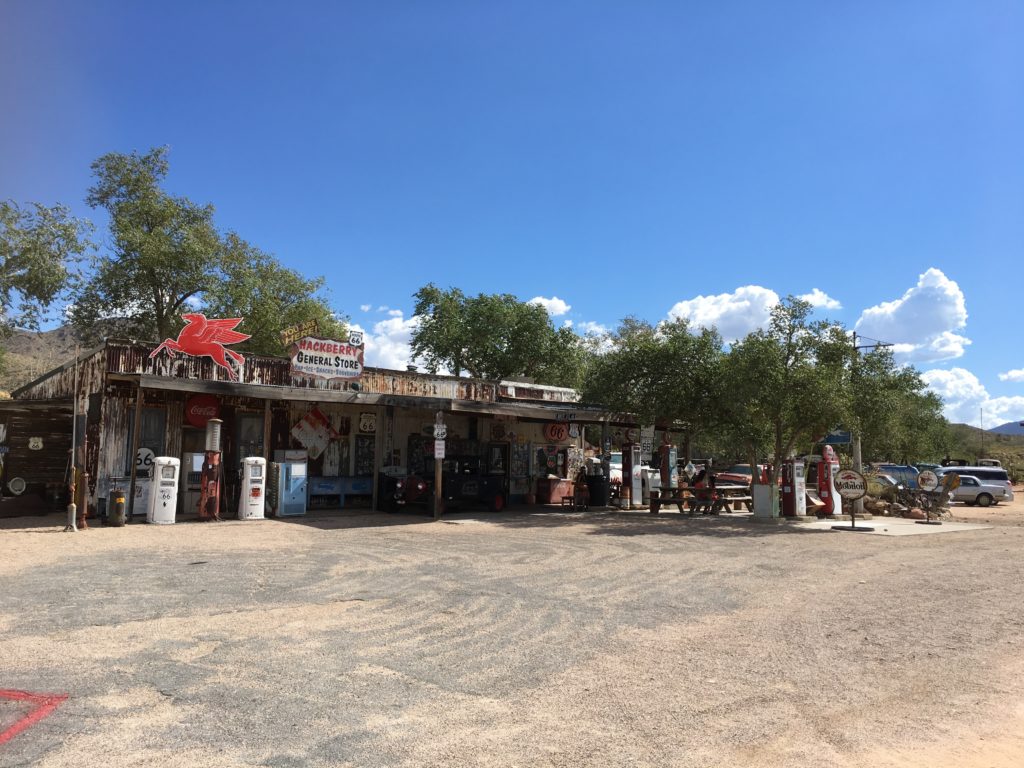
Note the caution about desert miles (which today is not without a few places to get fuel and food).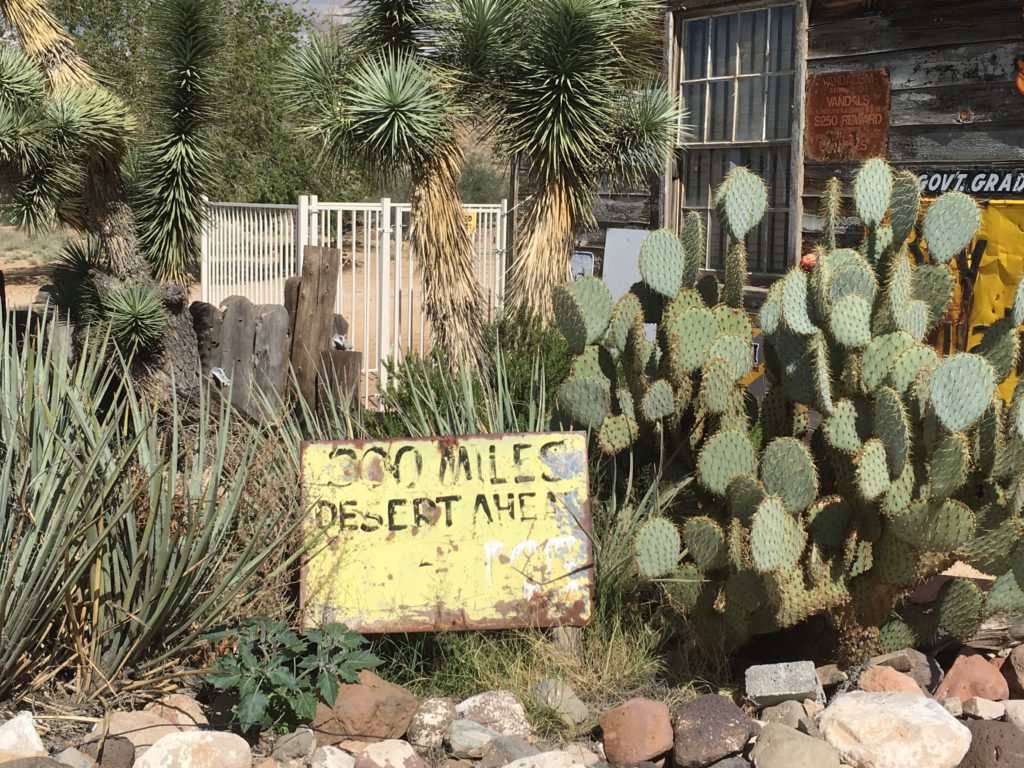
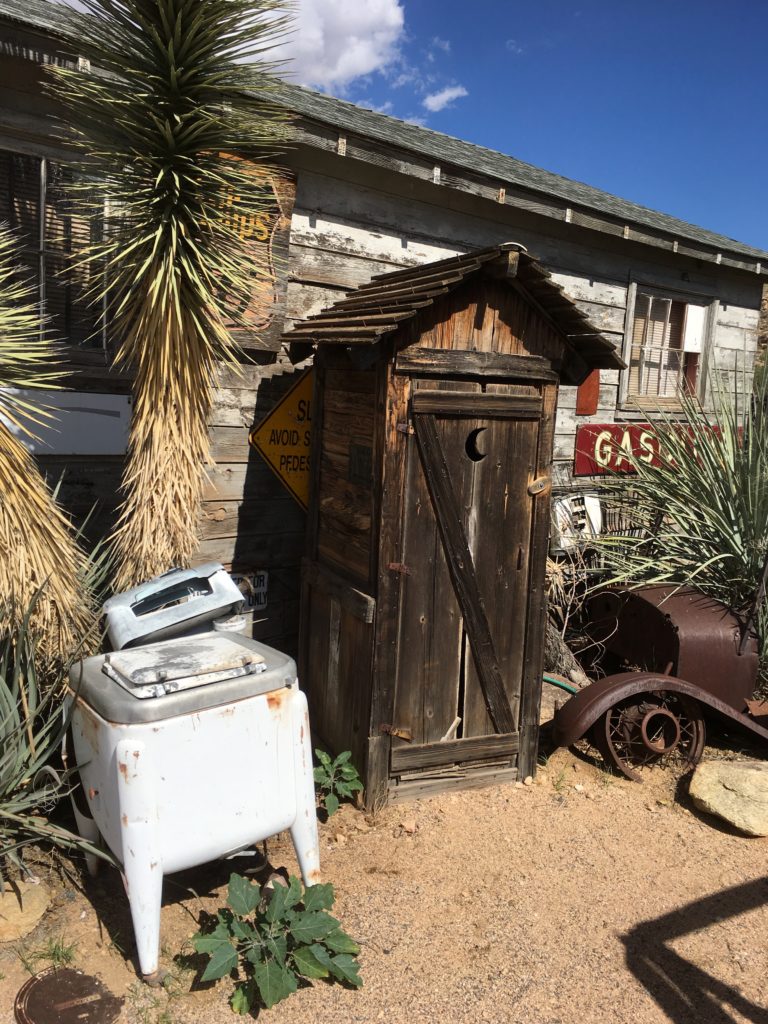
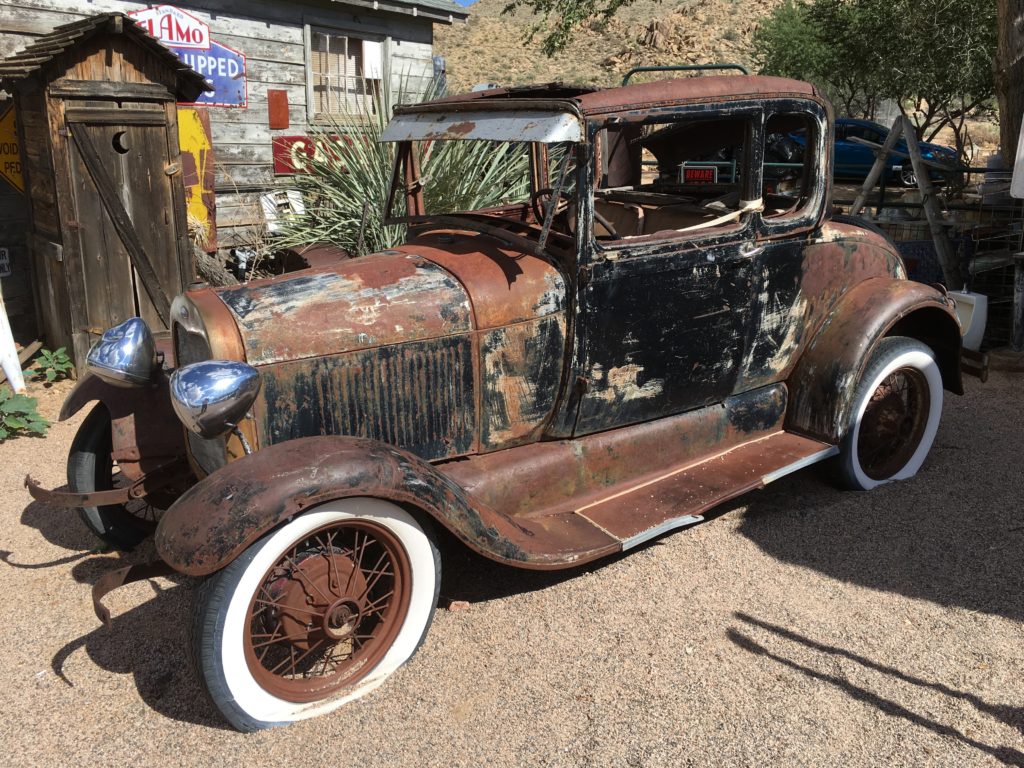
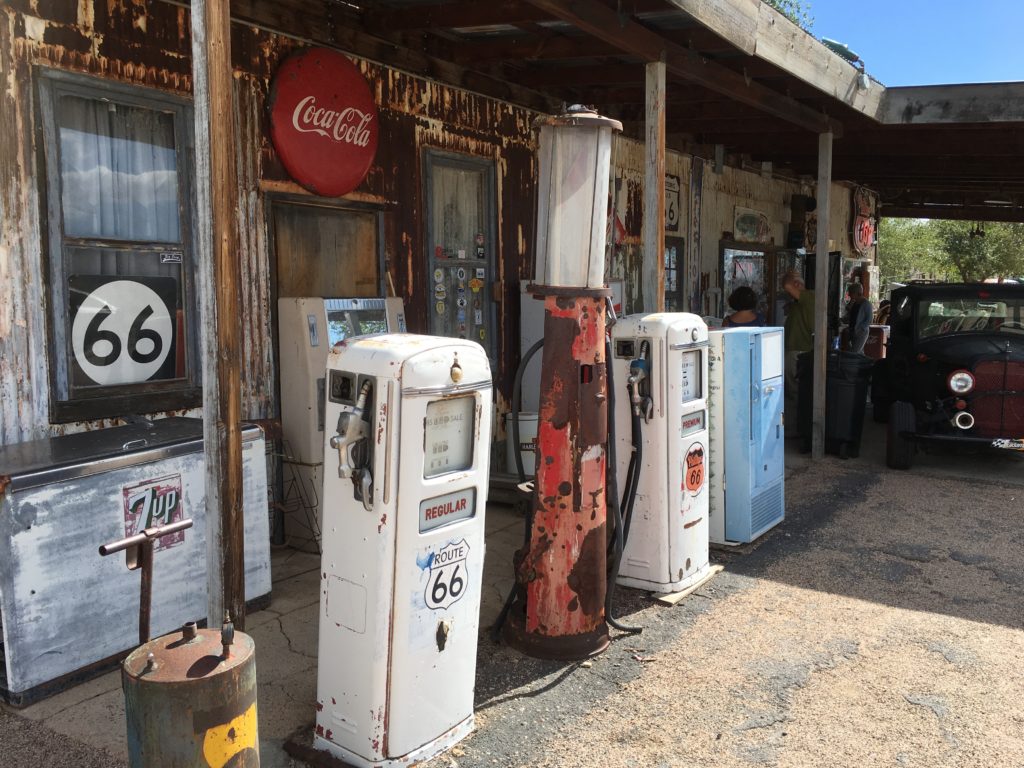
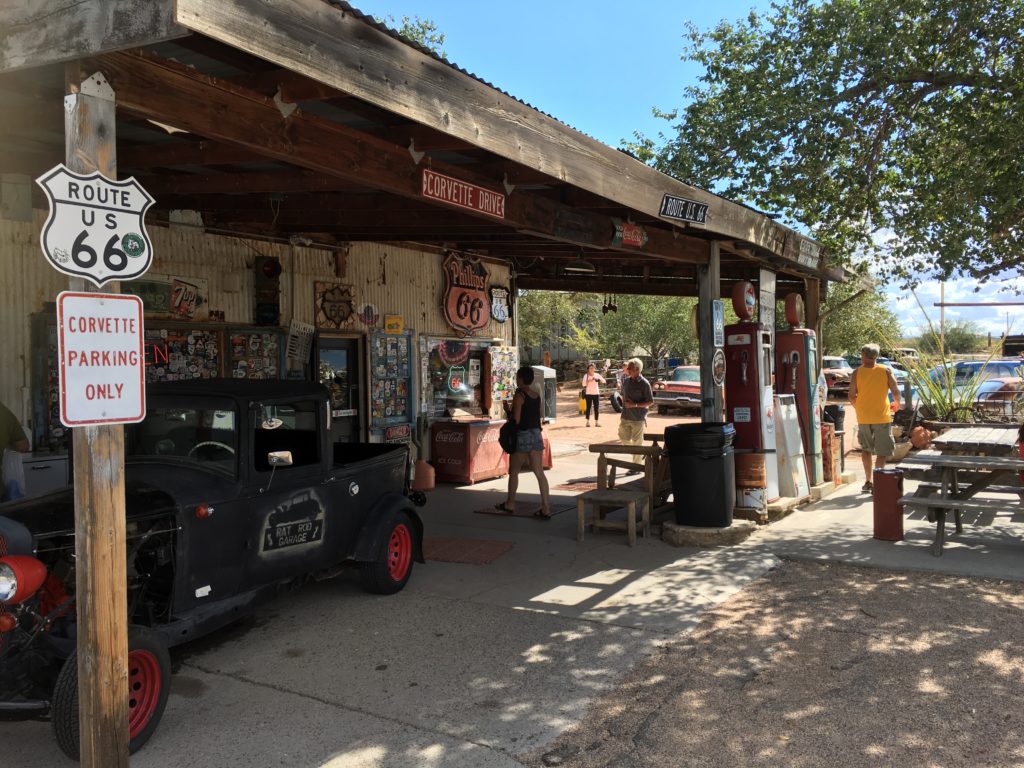
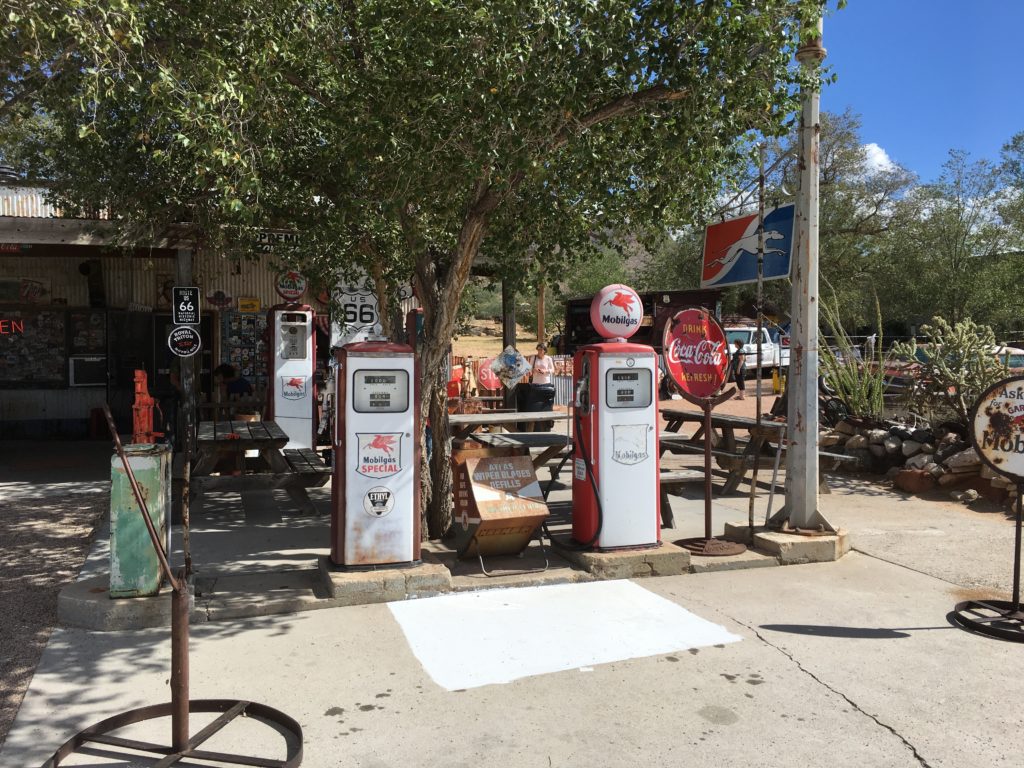
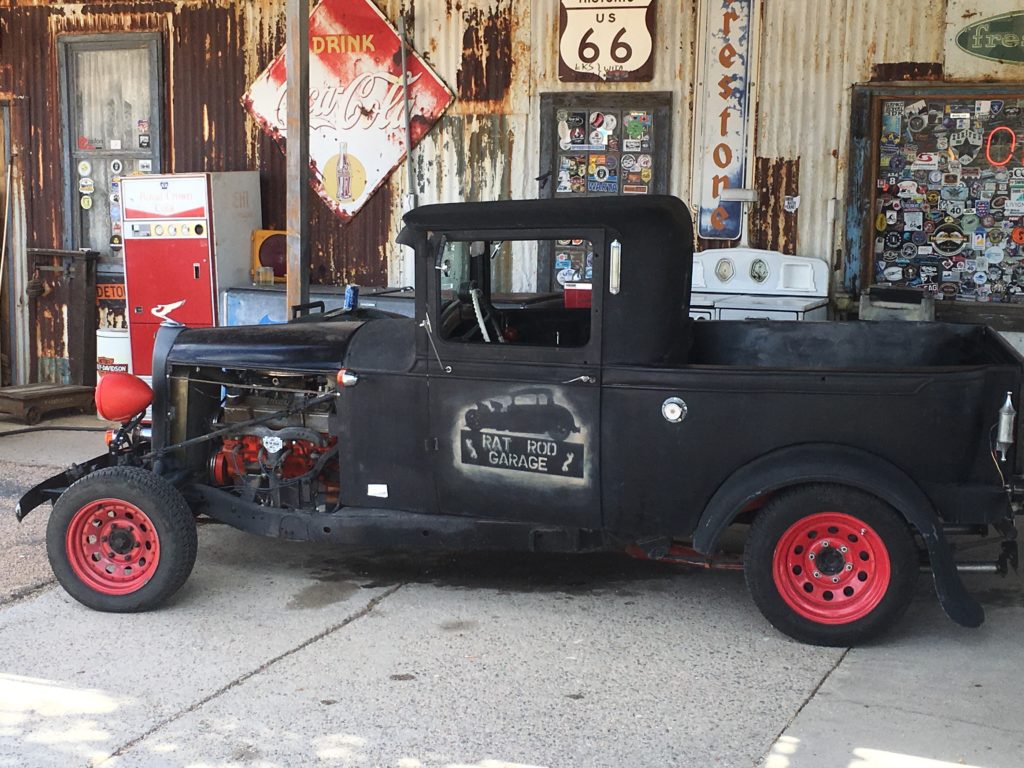
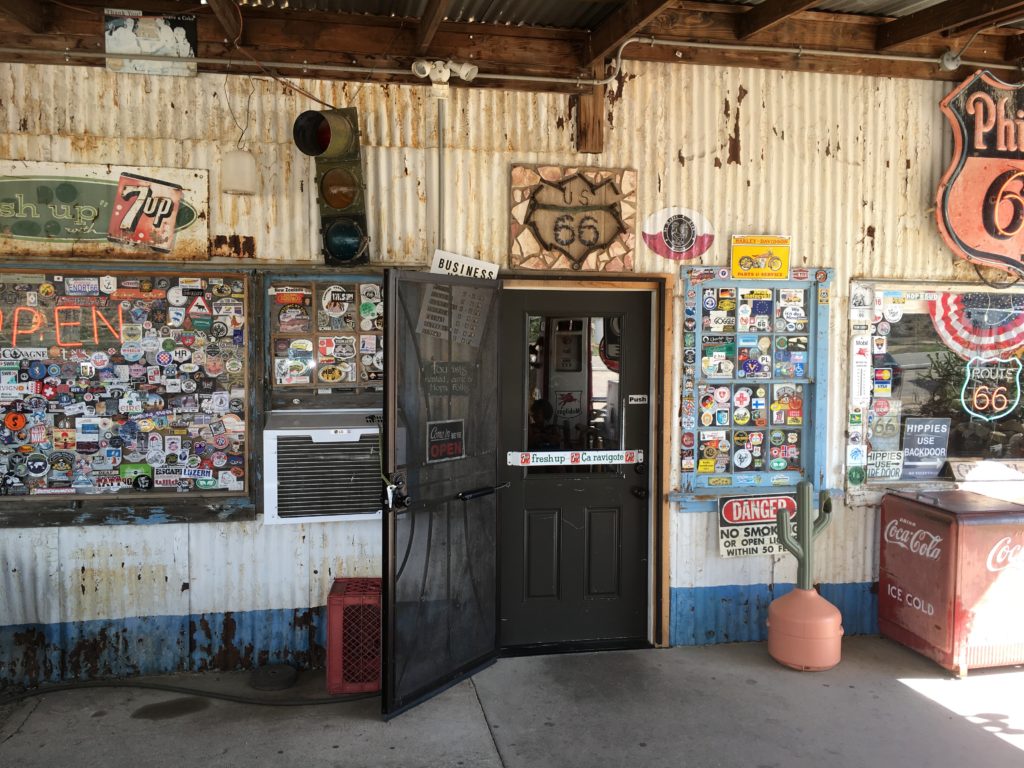
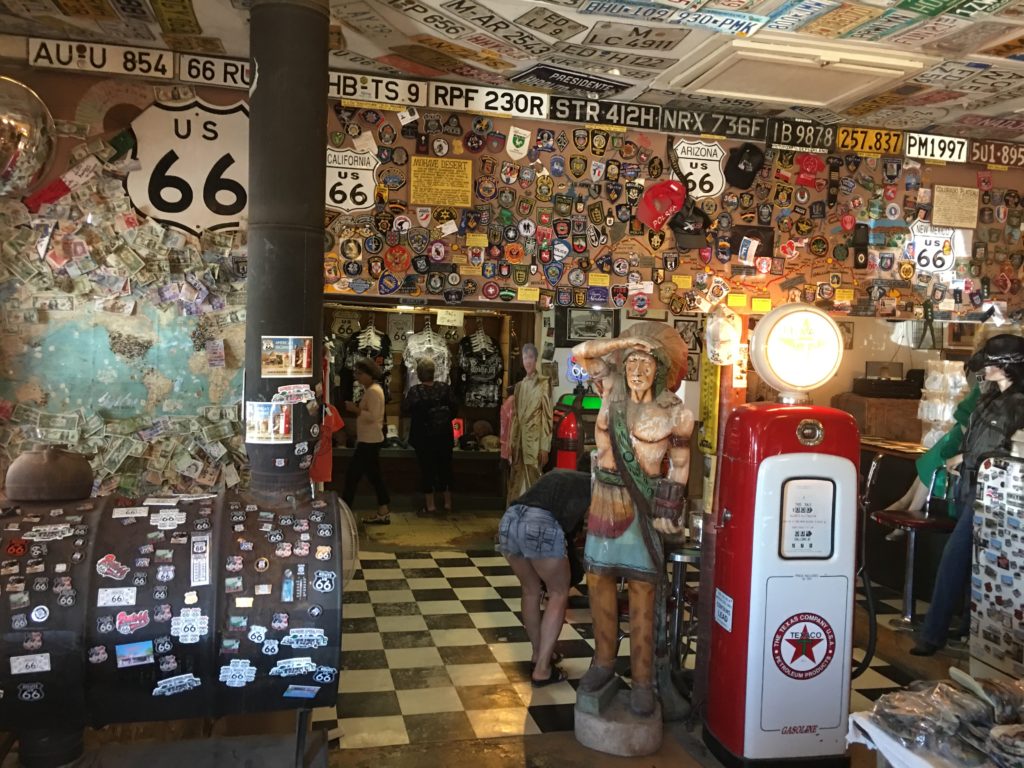
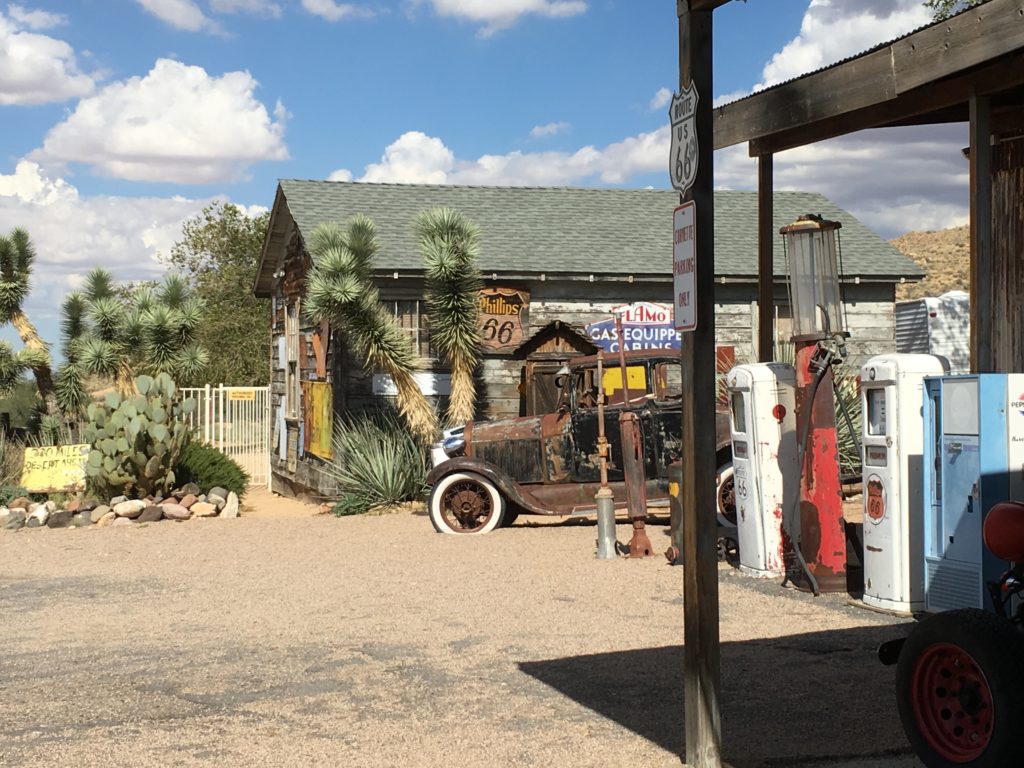
Wadsworth is fueled for another 200+ miles, so we’re good to go.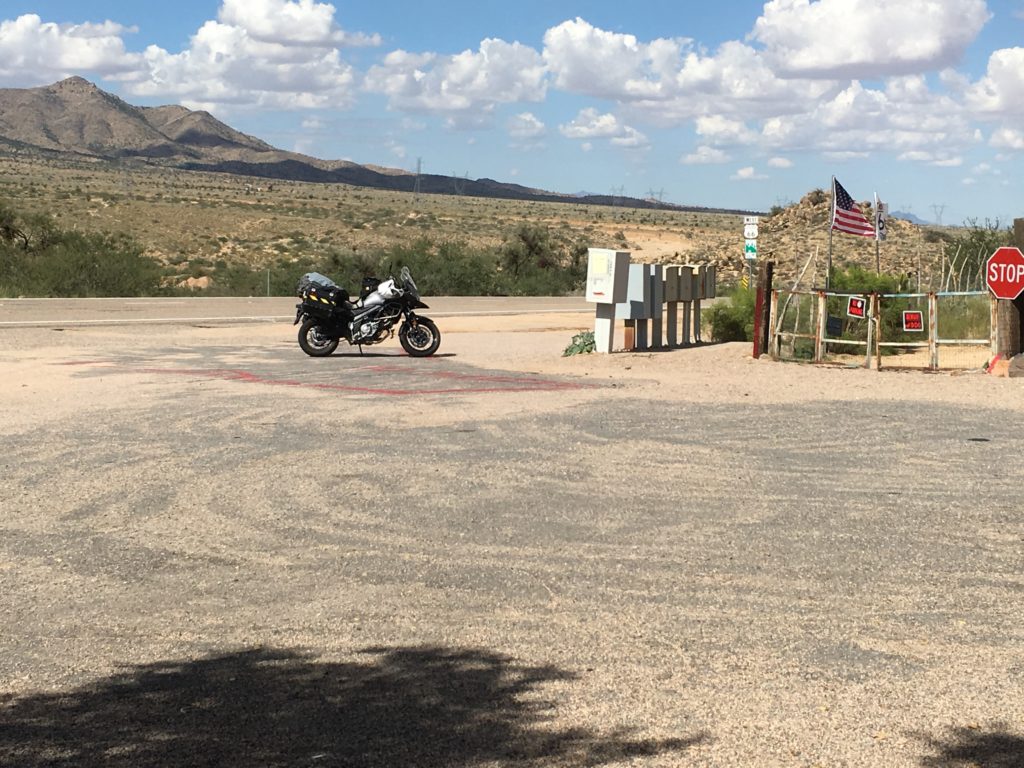
Further West is Sitgreaves Pass and the town of Oatman AZ on a beautiful section of old Route 66.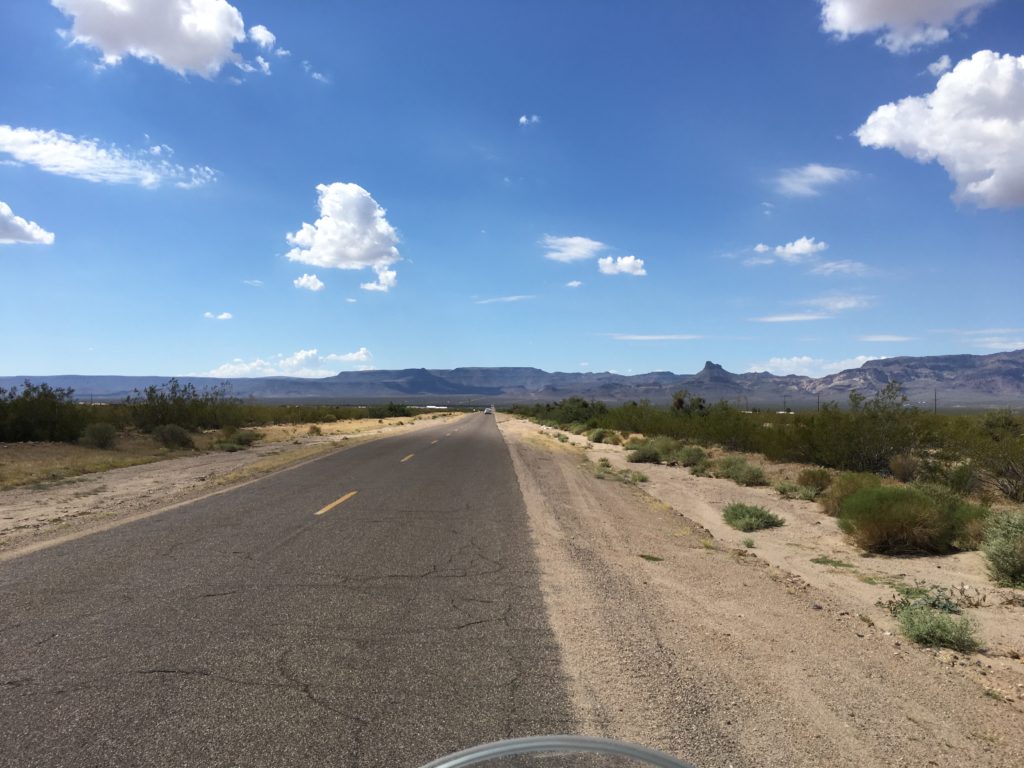
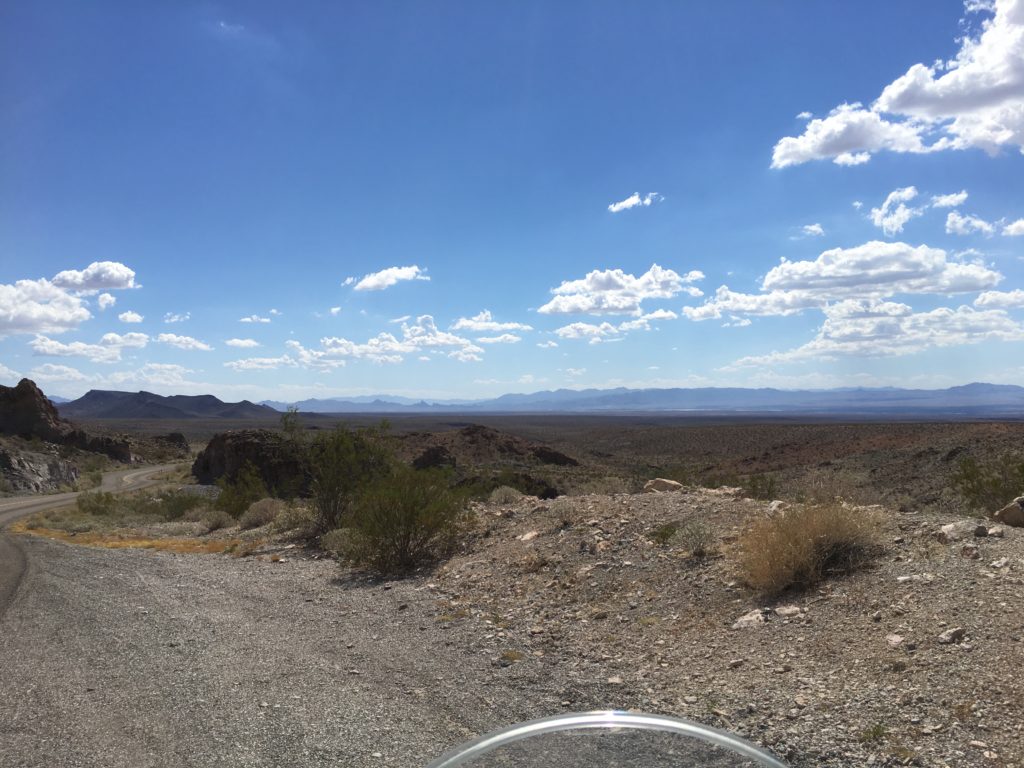
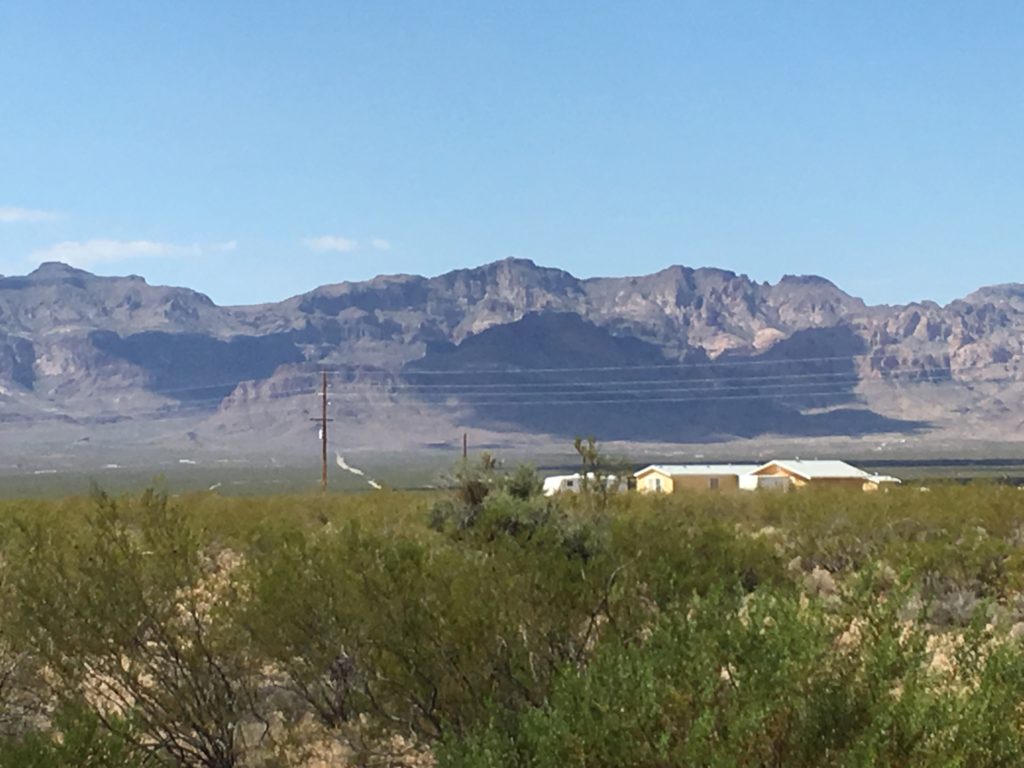
Old Route 66 becomes a winding narrow road crossing a small mountain range at Sitgreaves Pass. 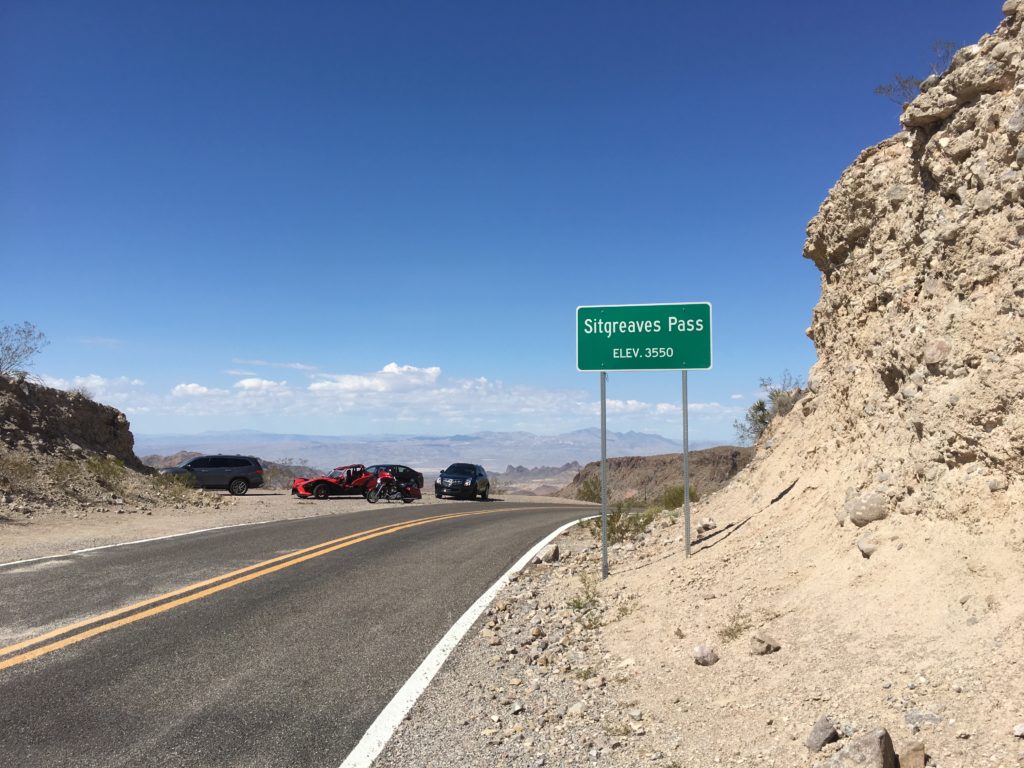
The vehicles parked on the west side, and elsewhere, were participating in a private ceremony that I did not want to violate by photography.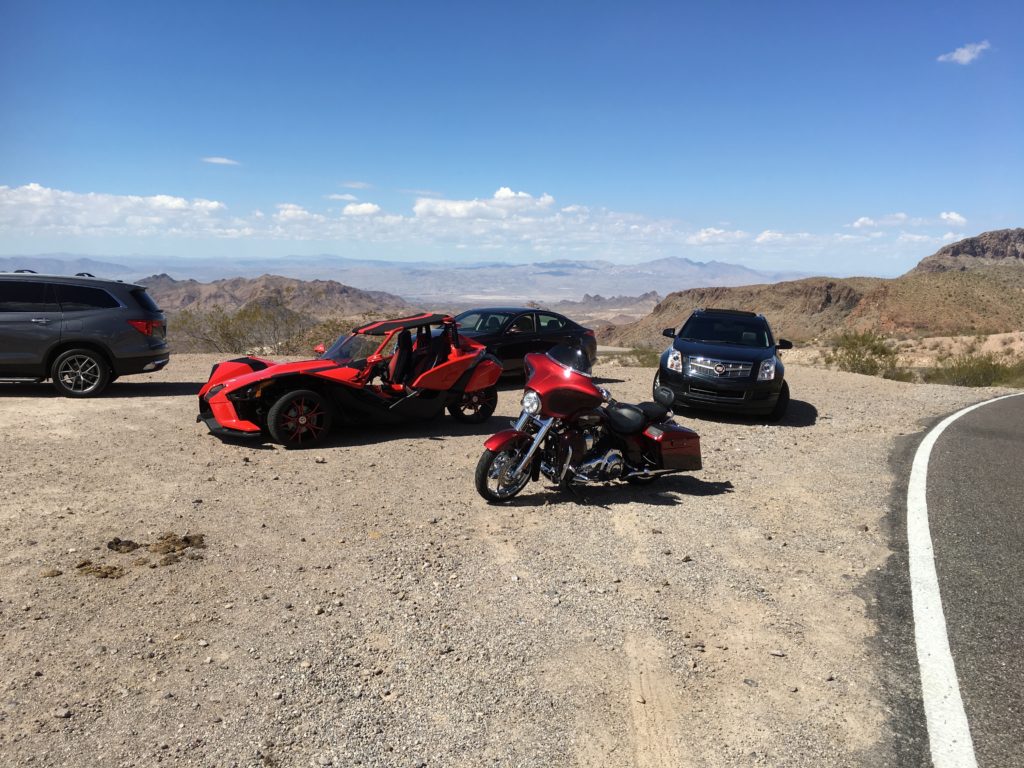
Looking back East: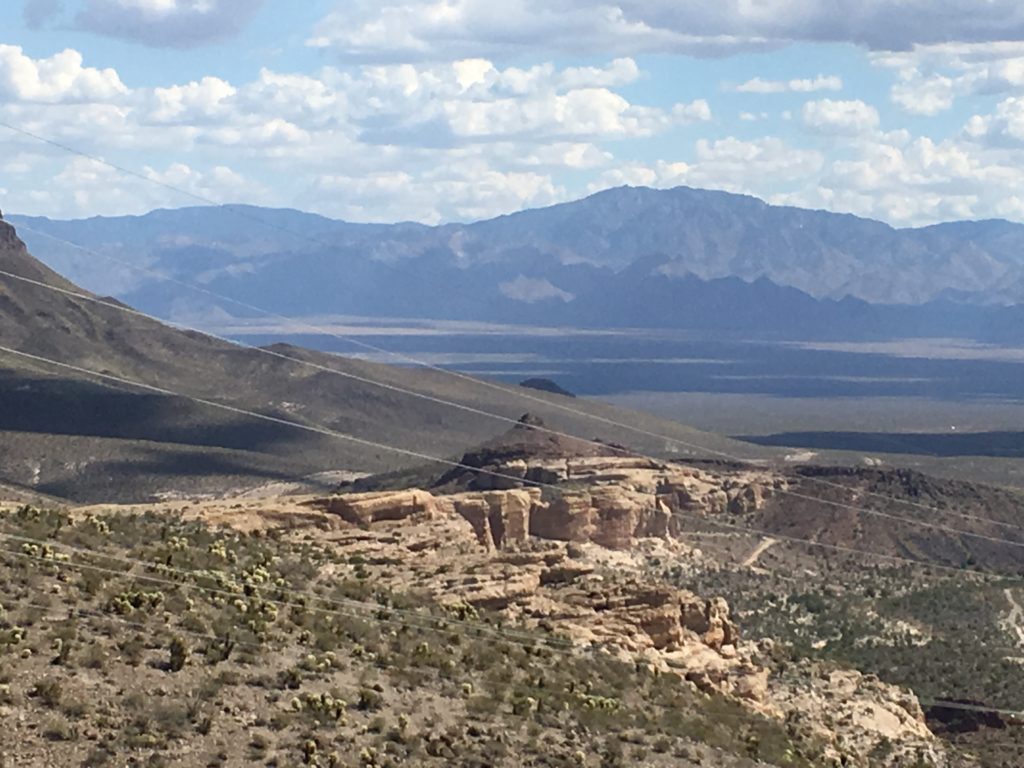
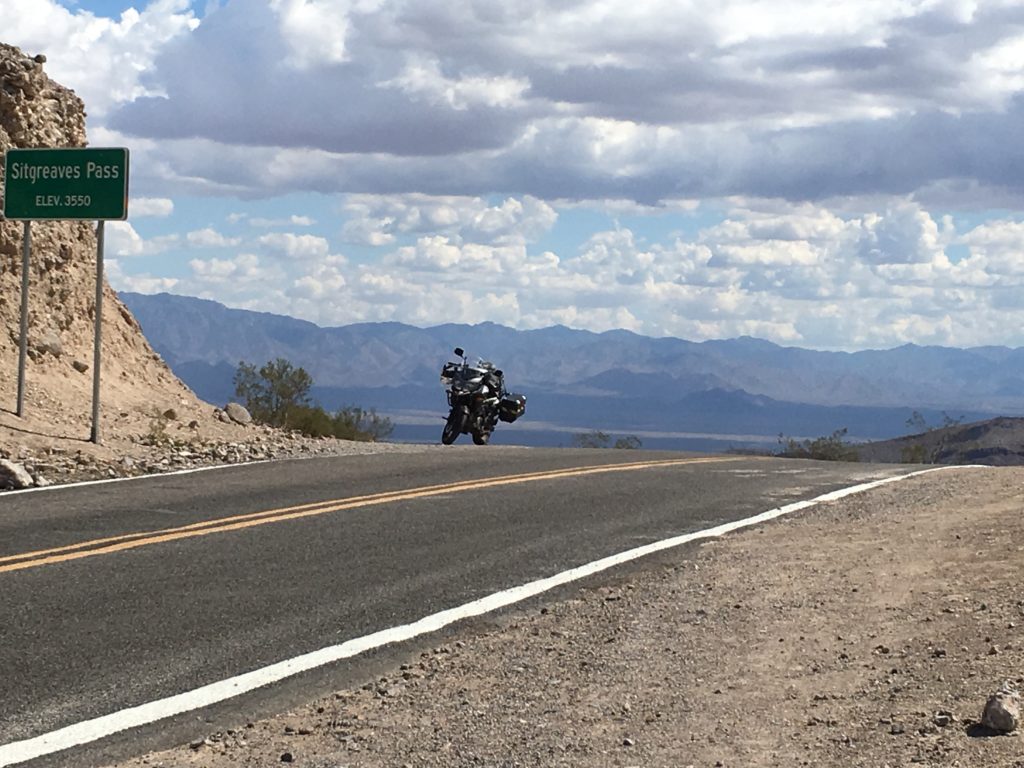
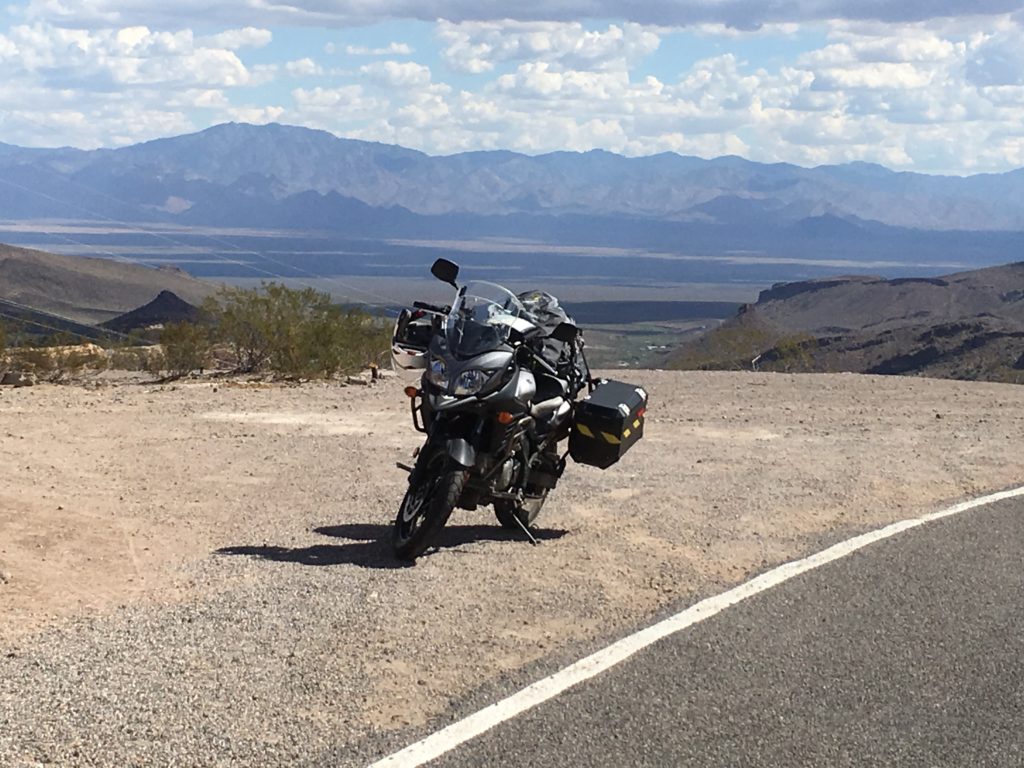
Looking ahead West: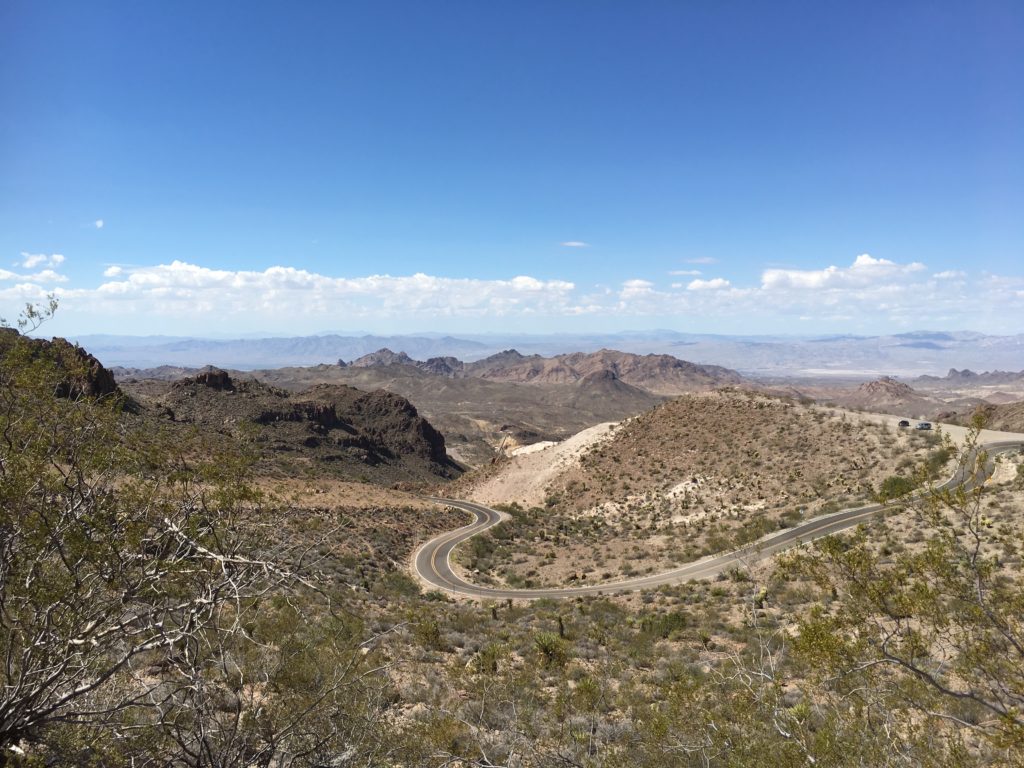
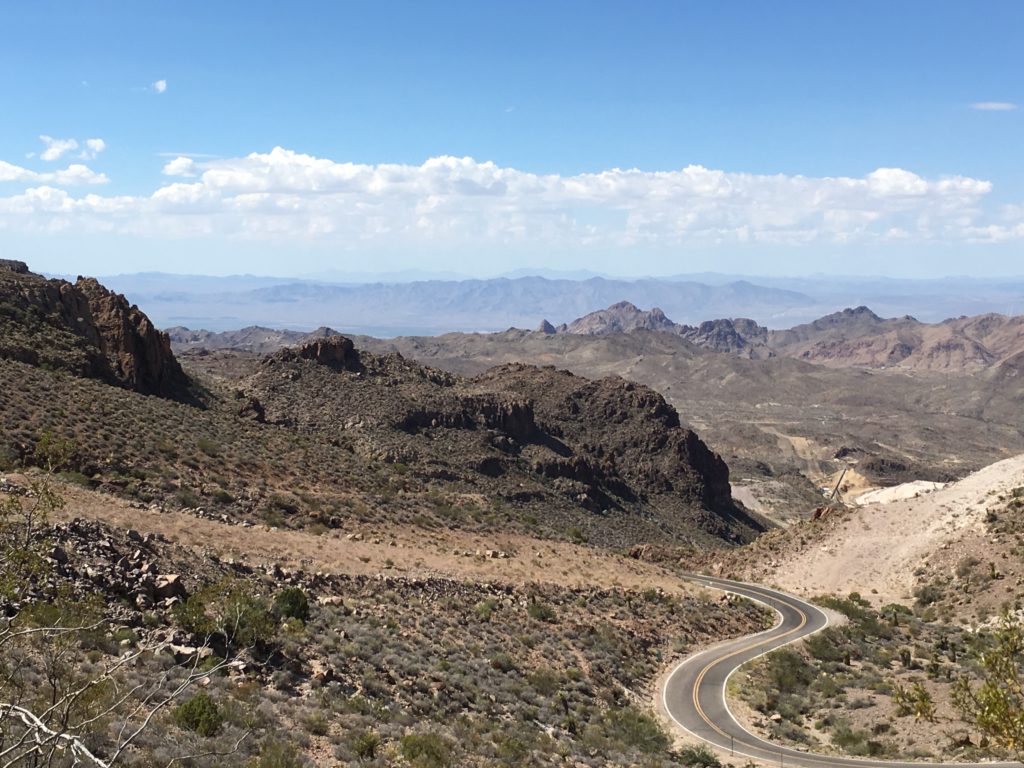
At the western side of the Pass is a small flat area that I later learn is an informal but widely used memorial ground. Placed here during private ceremonies are the cremated remains of beloved family and even pets, either in a discrete spot with a small marker or, as I will show later, by spreading the ashes right across old Route 66. (I returned this way going back to Denver; on that page I’ll explain what that ceremony was about).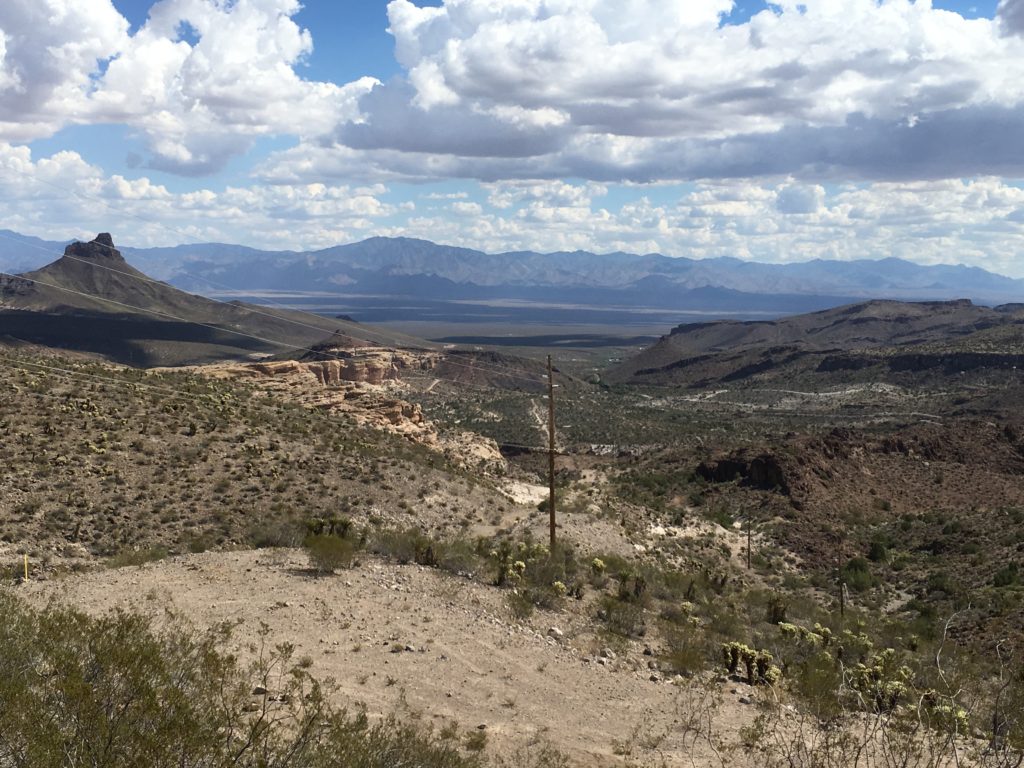
Going West from Sitgreaves Pass one descends to the desert floor and in time reach another interesting town in the middle of nowhere: Oatman AZ, famous for its bars and memorabilia, and a town full of uncorralled burros who are quite skilled food moochers.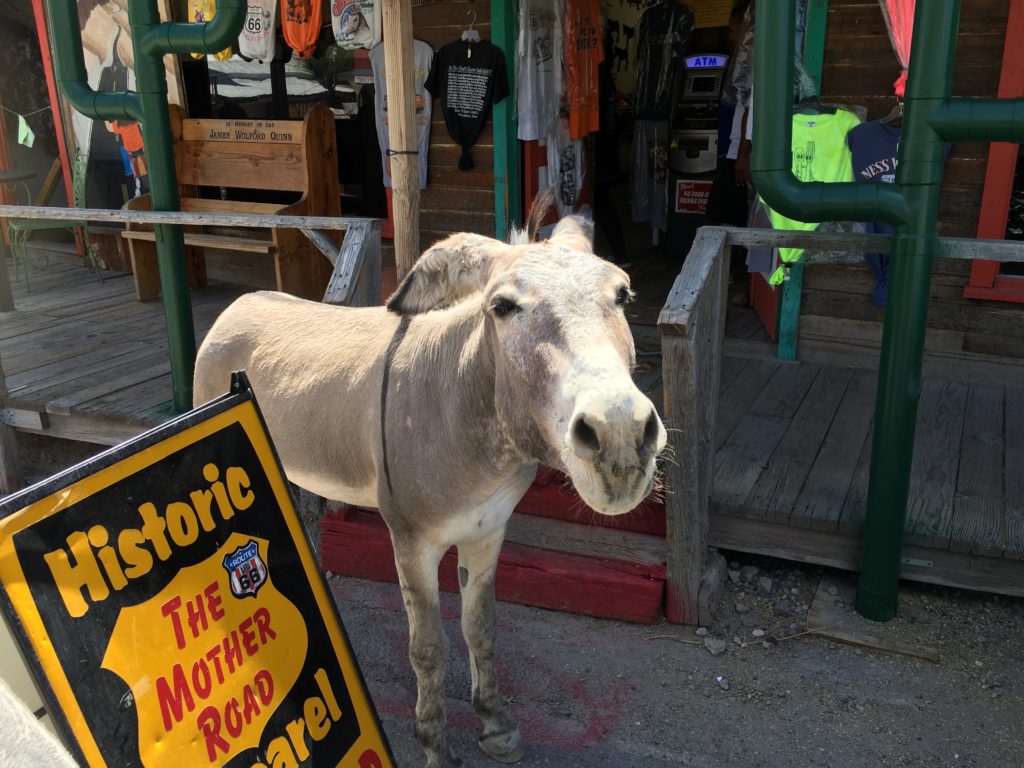
I only carry a few snacks so my offerings were limited. But I discovered that the burros do like almonds, roasted and salted. (Yes they eat out of your hand, your pocket, your backpack; these guys are fearless and shameless, sweet and cute).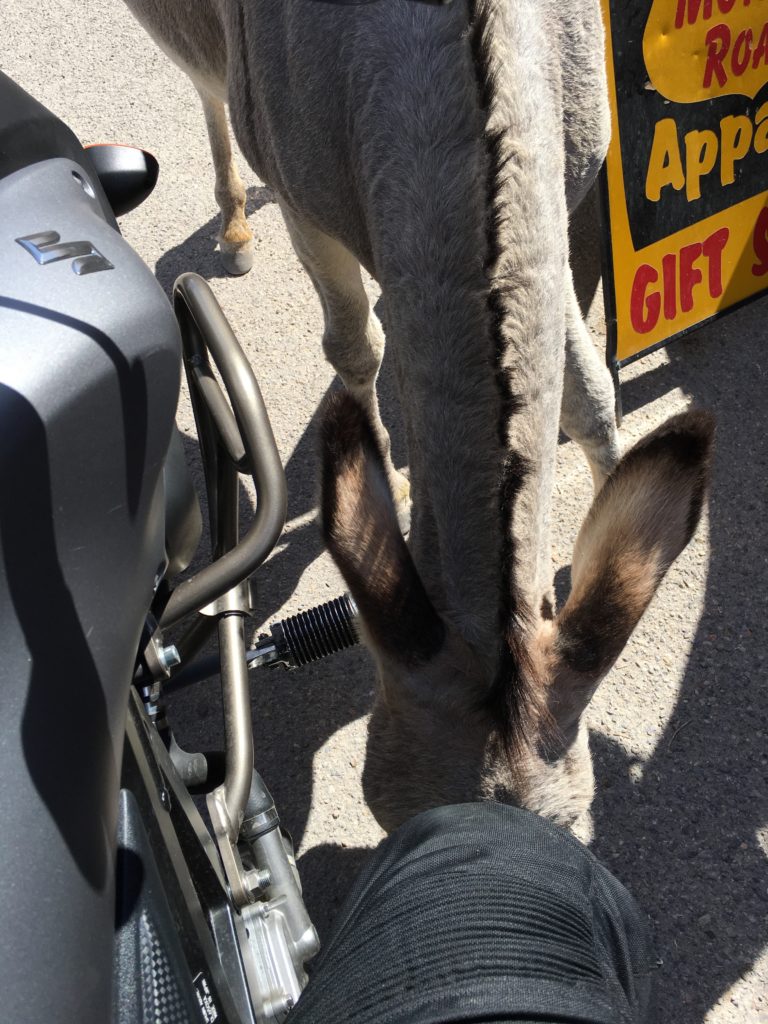
And they are always on the lookout for new prey arriving.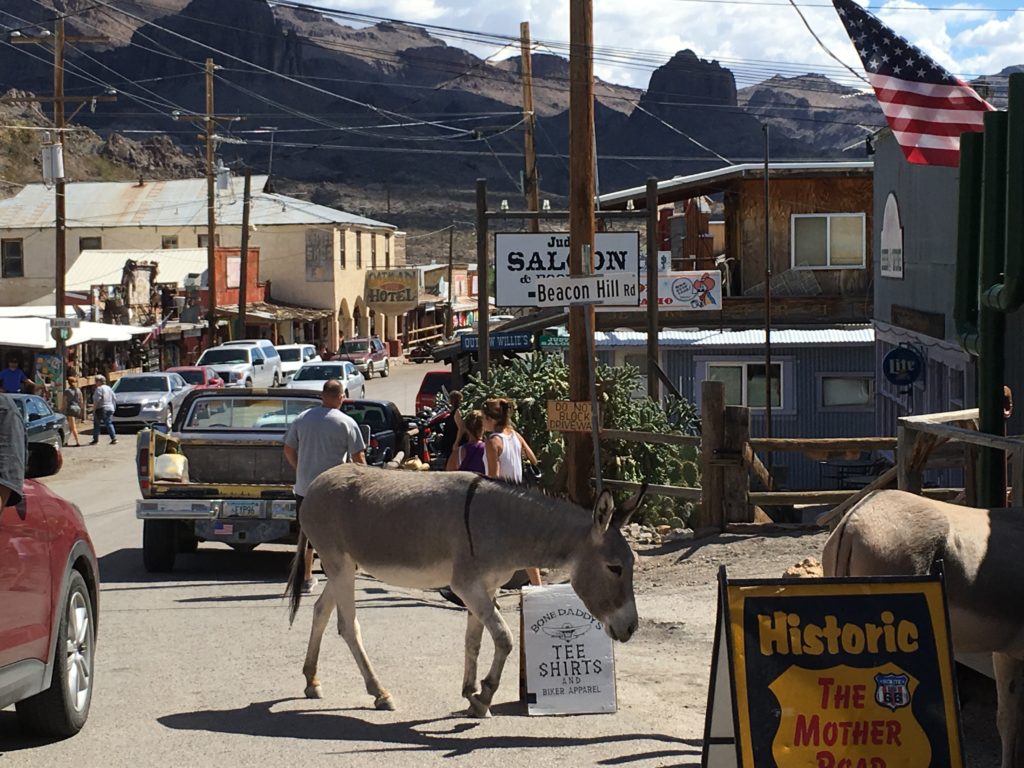
They will stand on their hind feet in the road with their front feet on the board walk so their neck and head block the door in and out of the store, to be sure that you don’t miss them.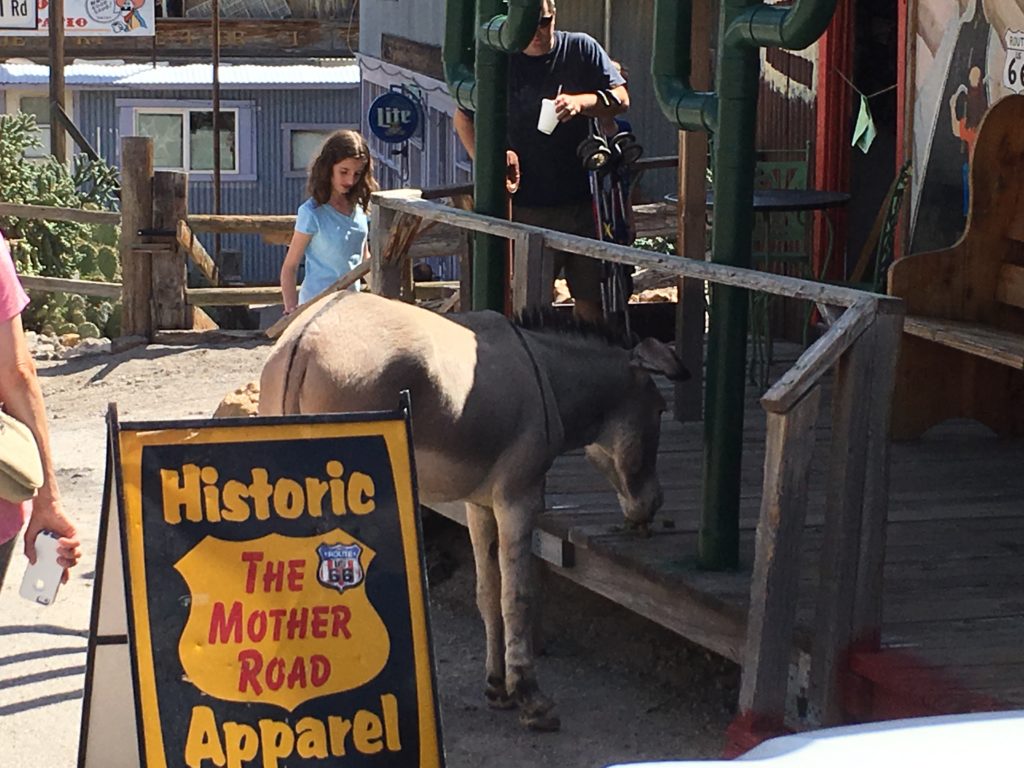
Every imaginable sweatshirt / t-shirt and other momento is available, particularly for cyclists.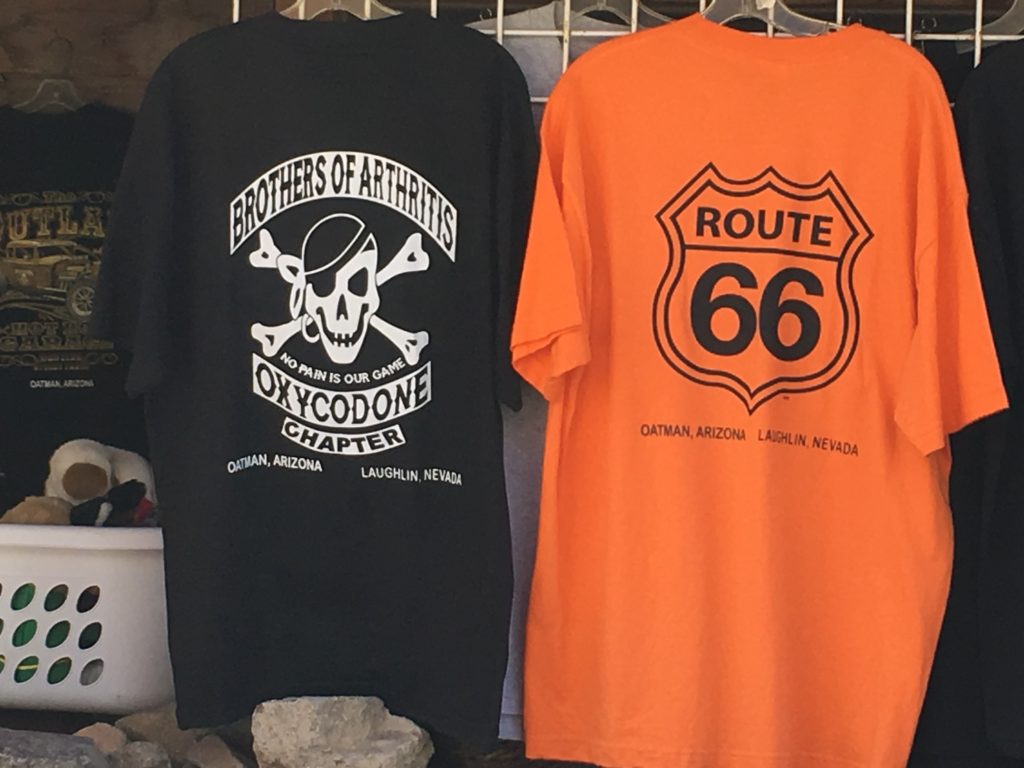
California, at last, is here.